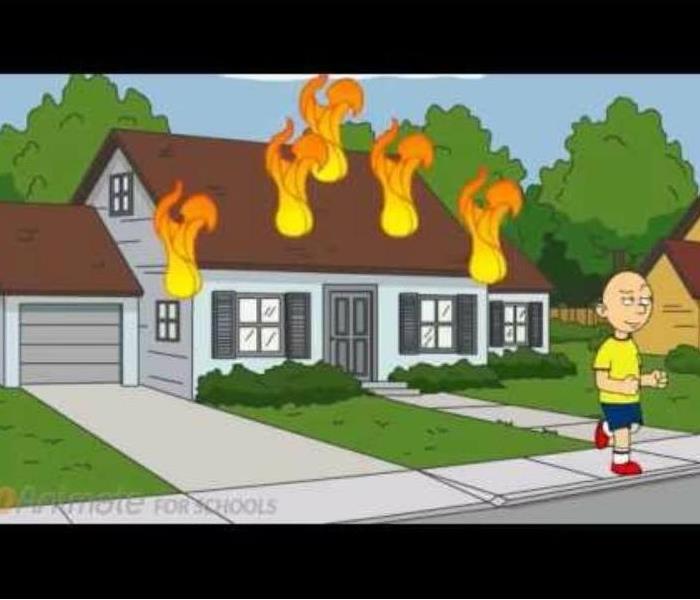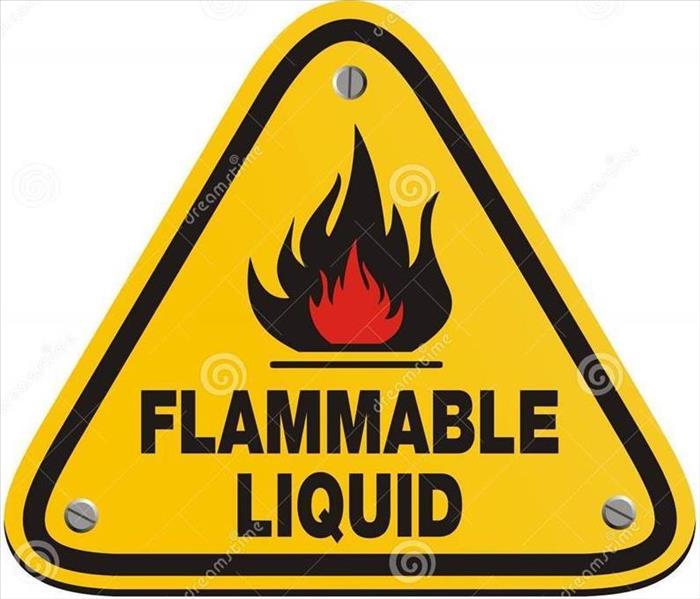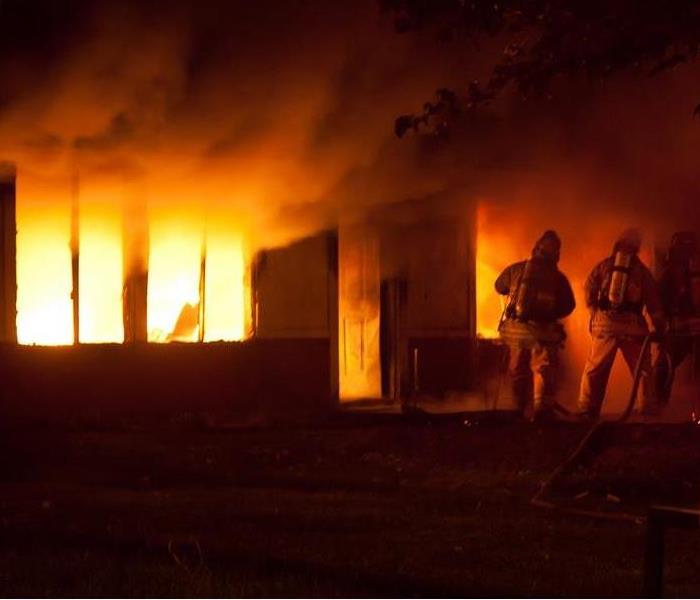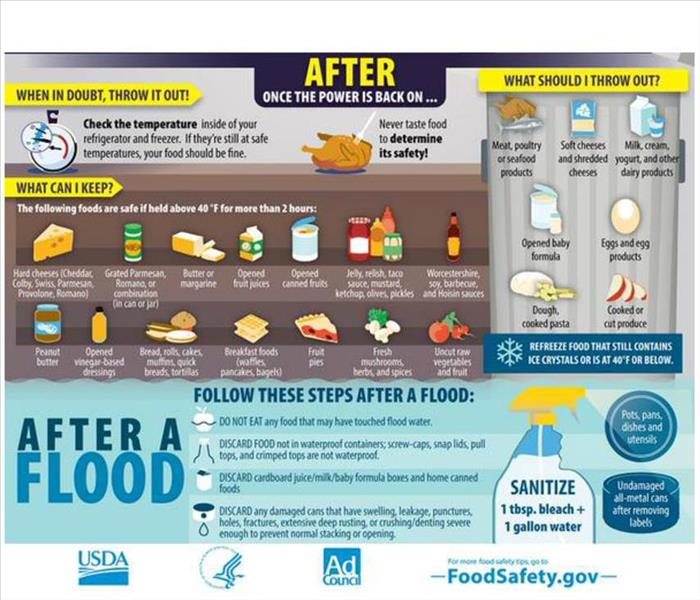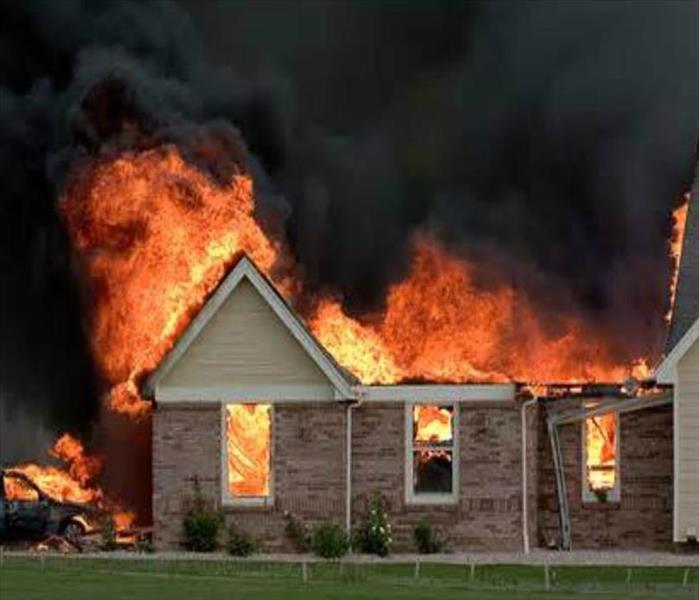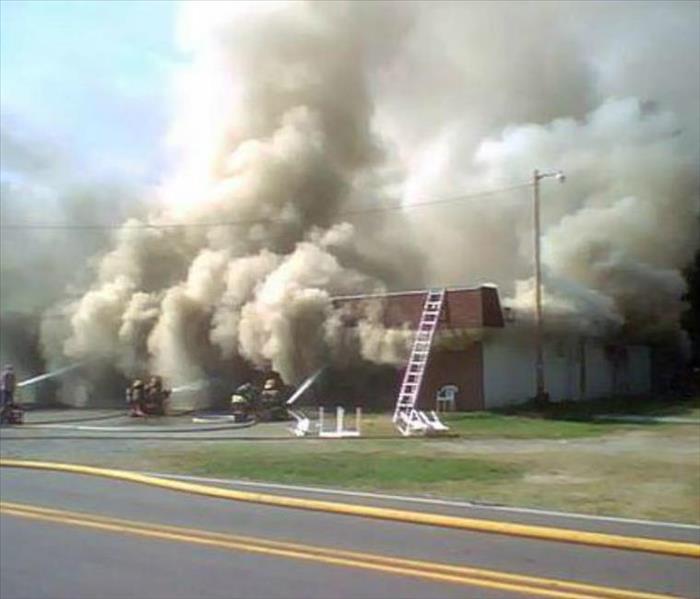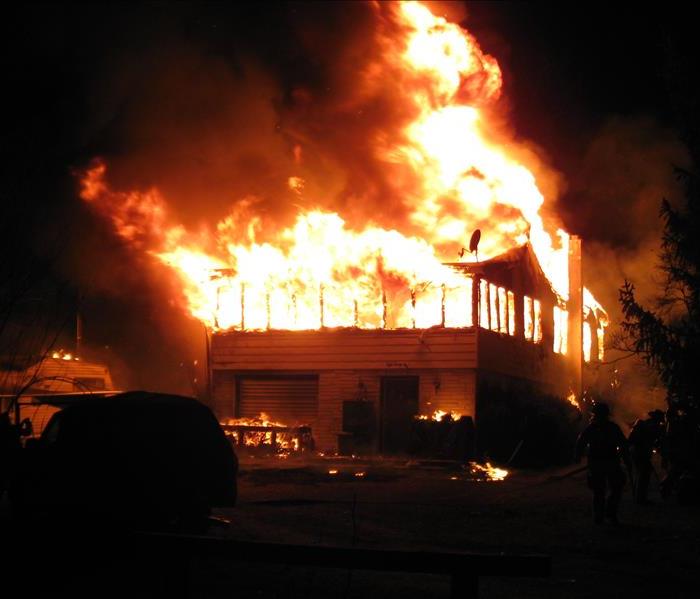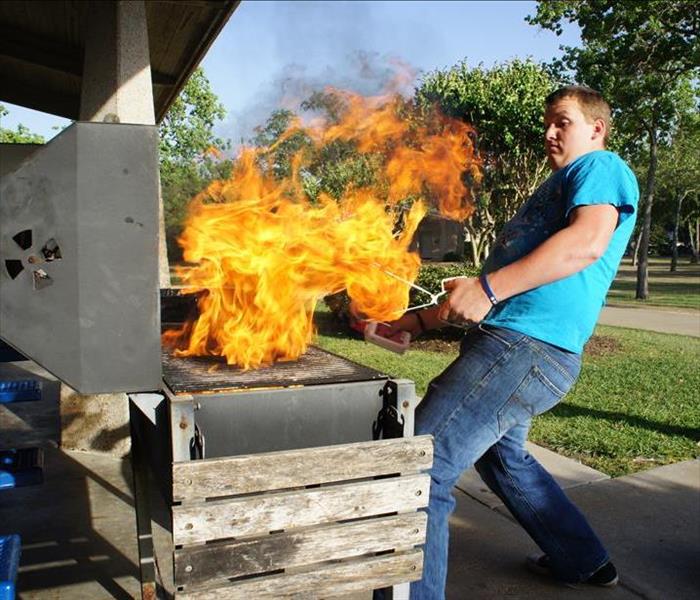Recent Fire Damage Posts
What Are Some Causes of Winter Fire Damage in Roseville, Michigan, Homes?
2/4/2025 (Permalink)
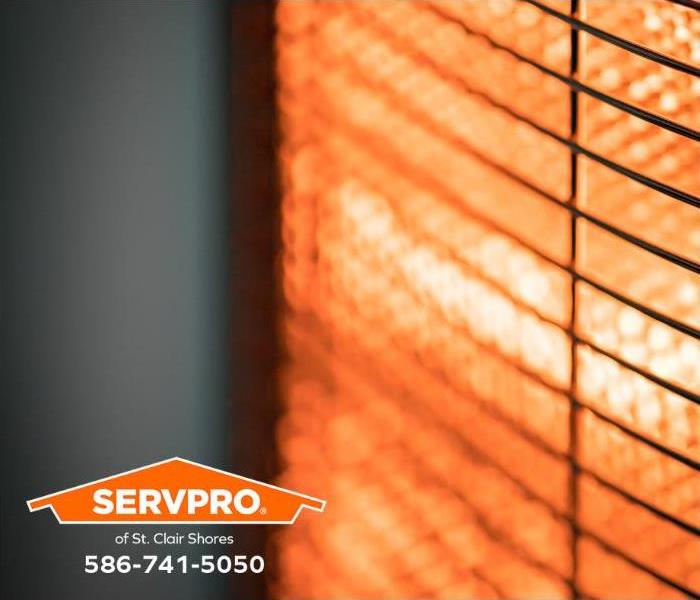 We restore fire damage 24/7 in Macomb County.
We restore fire damage 24/7 in Macomb County.
Our local St. Clair Shores team restores fire damage in Roseville every winter. Winter is a peak season for home fires as residents rely on heating sources to stay warm during freezing temperatures. Common causes include malfunctioning space heaters, overloaded electrical systems, and chimney fires. These hazards can quickly escalate into devastating events if precautions are not taken.
Space heaters are a leading cause of winter fires. Placing them too close to flammable materials like curtains or furniture can ignite a fire within seconds. Residents should ensure that heaters have automatic shut-off features and are kept at least three feet away from combustible items.
Another frequent cause is chimney fires, which occur when creosote buildup ignites. Regular chimney inspections and cleanings are essential to prevent these types of fires. In Roseville, residents using wood-burning stoves or fireplaces should burn seasoned wood to reduce creosote accumulation.
Electrical fires also rise during winter as people plug in extra lights, heating devices, and holiday decorations. Overloaded circuits and damaged cords can lead to sparks and flames. Homeowners can significantly reduce the risk of winter fires by following safety guidelines, such as inspecting cords and avoiding overloading outlets.
Call Us Today!
When your home or commercial business has a fire damage emergency, our local St. Clair Shores team is Here to Help. ® Call us today at 586-741-5050.
SERVPRO® franchises are independently owned and operated.
Holiday Candle Safety Tips: Creating a Cozy and Safe Ambiance in St. Clair Shores?
12/17/2024 (Permalink)
 We perform all phases of fire damage restoration services in Macomb County.
We perform all phases of fire damage restoration services in Macomb County.
Our local St. Clair Shores team wishes everyone in St. Clair Shores Happy Holidays!
Candles bring warmth and charm to holiday festivities but can also be a fire risk if not used carefully. Always place candles on sturdy, heat-resistant surfaces away from flammable materials like curtains, decorations, or paper.
Keep them out of reach of pets and children, and avoid placing candles in high-traffic areas where they can be easily knocked over. Never leave candles unattended, and extinguish them before leaving the room or going to bed. For added safety, use candle holders that shield the flame or flameless LED candles.
If you’re using traditional candles, opt for those with self-extinguishing wicks, which are designed to reduce fire risks. In homes with a high volume of holiday decorations, the extra precaution of flameless candles can keep everyone safe.
Finally, keep a fire extinguisher nearby, particularly during holiday gatherings, and remind guests of safe candle practices. These simple candle safety steps protect your home from potential fires and ensure that your holiday gatherings remain warm, cozy, and safe for everyone.
Call Us Today!
When your home or commercial business is damaged by fire, our local St. Clair Shores team is Here to Help. ® Call us today at 586-741-5050.
SERVPRO® franchises are independently owned and operated.
Why Furnace Puff Back Cleaning is So Challenging in Eastpointe?
12/3/2024 (Permalink)
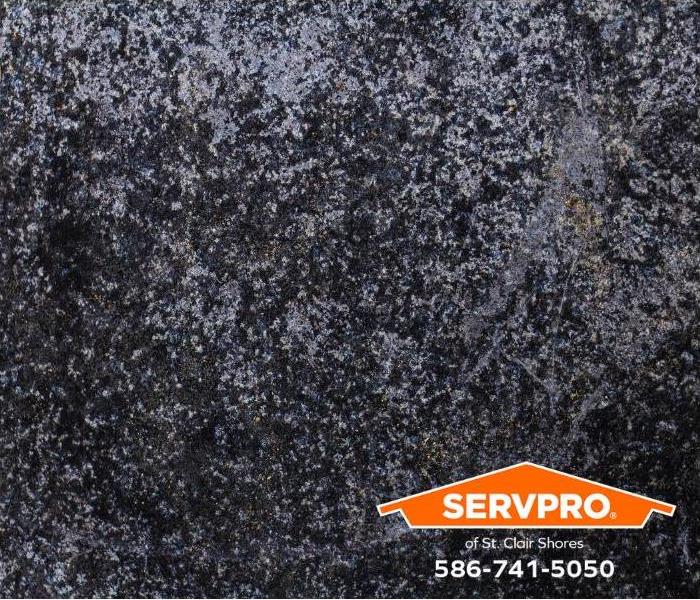 We professionally clean and restore furnace puff damage in Macomb County.
We professionally clean and restore furnace puff damage in Macomb County.
Our local St. Clair Shores team is leader in furnace puff back cleaning services in Eastpointe. Cleaning up after a furnace puff back can be daunting due to soot's oily and widespread nature. A puffback occurs when a furnace misfires, sending soot and smoke throughout the home, often through the HVAC system. The soot is typically sticky and greasy, clinging to surfaces like walls, ceilings, furniture, and fabrics, making ordinary cleaning methods ineffective. Special cleaning agents must dissolve this oily residue without spreading it further.
What makes puff back cleaning even more difficult is that the soot can travel through air ducts, reaching every room in the house. This requires thoroughly cleaning the HVAC system and replacing filters to prevent recontamination. Additionally, puff backs leave a strong, unpleasant odor that can linger in fabrics, carpets, and other porous materials, necessitating professional deodorization techniques.
Sensitive materials, such as electronics and fabrics, are particularly vulnerable to soot damage, requiring careful handling and specialized equipment. Without proper cleaning, soot can cause permanent stains and damage. Due to the extensive, labor-intensive process, professional cleaning services are often needed to effectively remove puff back soot and restore the home to its pre-damage condition.
Call Us Today!
When your home or commercial business in Eastpointe has puff back damage, our local St. Clair Shores team is Here to Help. ® Call us today at 586-741-5050.
SERVPRO® franchises are independently owned and operated.
Cooking Grease Fire Erupts in Roseville Kitchen?
11/19/2024 (Permalink)
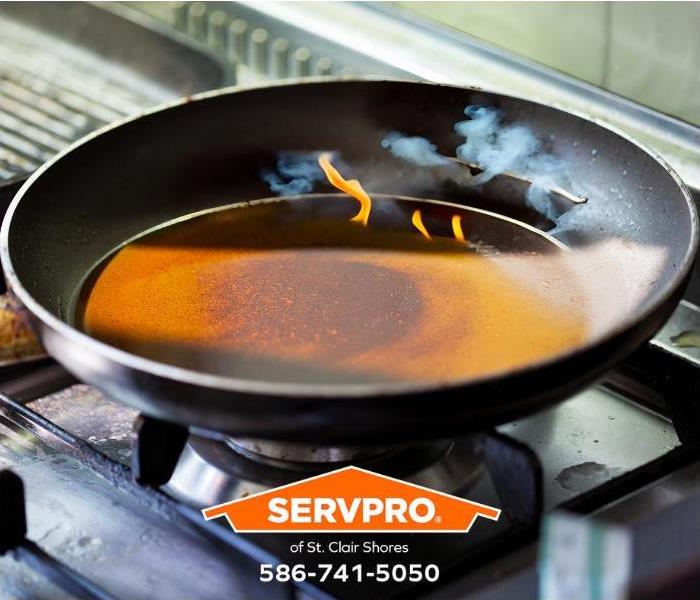 We are fire damage restoration leaders in Macomb County.
We are fire damage restoration leaders in Macomb County.
Our local team in St. Clair Shores restores fire damage in Roseville every year. According to the National Fire Protection Association (NFPA), cooking fires are a top cause of residential fire damage in the United States. Grease fires are a common occurrence, typically igniting when unattended cooking oil overheats and catches fire. Once a grease fire begins, it can quickly spread, leading to substantial damage in the kitchen, including lingering smoke, soot, and intense odors.
When a grease fire erupts and causes fire damage, our highly trained technicians will inspect and evaluate the extent of the damage and ensure that all dangerous fire residues are safely removed, helping restore the affected area. Soot and smoke can spread throughout your home, settling on walls, ceilings, and furniture.
Our technicians use advanced techniques and technology to thoroughly clean and deodorize affected surfaces after a grease fire. Since such fires can harm countertops, cabinets, and appliances, we will restore the damage and remove any materials that cannot be salvaged.
No matter how extensive the damage may be, you can rely on us to restore the damage "Like it never even happened."
Call Us Today!
When your Roseville home or commercial business sustains fire damage, our local St. Clair Shores team is Here to Help. ® Call us today at 586-741-5050.
SERVPRO® franchises are independently owned and operated.
Professional Furnace Puff-Back Cleaning Services in St. Clair Shores?
11/5/2024 (Permalink)
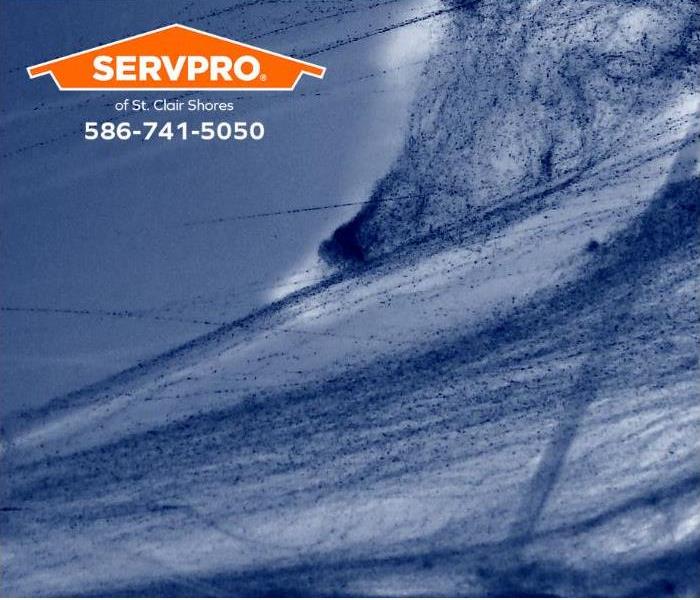 We are trained and certified to restore furnace puff-back damage in Macomb County.
We are trained and certified to restore furnace puff-back damage in Macomb County.
Our local St. Clair Shores team is a leader in soot damage restoration services. A furnace puff-back is an unfortunate and messy event that occurs when a malfunction in your heating system causes an explosion of soot and smoke throughout your home. This problem typically happens in oil-burning furnaces or boilers when unburned fuel accumulates in the combustion chamber and ignites simultaneously. A "puff" of soot, smoke, and residue spreads through the ductwork and into every room.
The soot from a puff-back can be extremely difficult to clean, as it is sticky and oily and can stain walls, furniture, carpets, and fabrics. Depending on the severity of the puff-back, the soot can settle into hard-to-reach areas, making it challenging to remove without specialized equipment. Sometimes, even the HVAC system can become contaminated, requiring thorough cleaning.
Because of soot's complex nature, trying to clean up after a puff-back on your own can often lead to further damage. It's best to hire our team of professionals who have years of experience in restoring soot damage. Our team knows how to properly clean soot residue, preventing long-term damage caused by the oily residue left behind by the puff-back.
Call Us Today!
When your St. Clair Shores home or commercial business needs furnace puff-back cleanup services, our local St. Clair Shores team is Here to Help. ® Call us today at 586-741-5050.
SERVPRO® franchises are independently owned and operated.
Common Causes of Soot Damage and How to Prevent It in Your Home in Eastpointe?
10/29/2024 (Permalink)
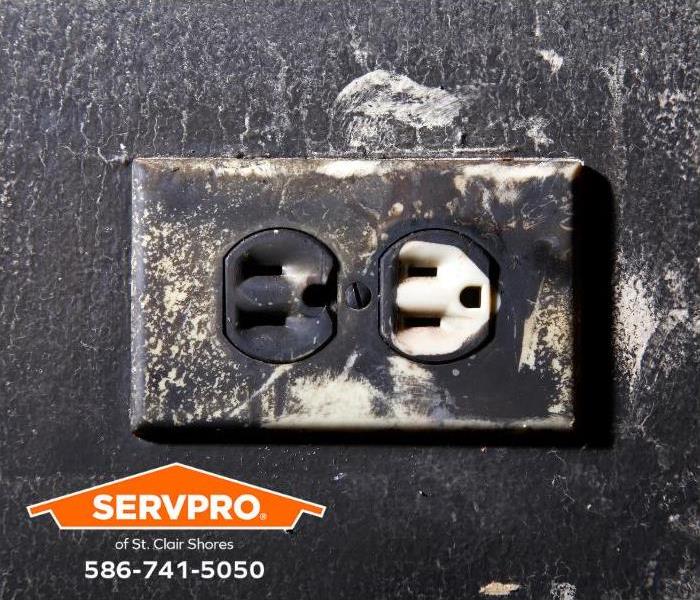 We are trained and certified to restore soot and fire damage in Macomb County.
We are trained and certified to restore soot and fire damage in Macomb County.
Our local St. Clair Shores team has years of experience cleaning and removing soot from homes and commercial businesses in Eastpointe. Here are a few common causes of soot damage in homes:
- Fire Damage: A house fire is the most obvious cause of soot damage. When materials like wood, plastic, or fabrics burn, they produce soot, which can spread throughout the home, even in areas unaffected by flames.
- Cooking Accidents: Grease fires or burnt food in the kitchen can release soot particles into the air, causing them to settle on surfaces like walls, ceilings, and countertops.
- Furnace Malfunction: A malfunctioning furnace, especially an older one, can emit soot into the home due to improper fuel combustion. This is sometimes called "puff-back" and can leave fine black soot on walls, furniture, and vents.
- Candle Burning: Candles, particularly scented or poorly made ones, can burn and release soot over time. This soot can accumulate near vents, on walls, or in the corners of rooms.
- Fireplaces and Wood Stoves: Improperly ventilated fireplaces or wood stoves can release soot and smoke into the home, leaving residue on walls and ceilings.
Regular maintenance of heating systems, proper ventilation, and careful use of open flames can help prevent soot buildup in homes.
Call Us Today!
When your home or commercial business in Eastpointe needs soot cleanup services, our local St. Clair Shores team is Here to Help. ® Call us today at 586-741-5050.
SERVPRO® franchises are independently owned and operated.
Why Every Home Needs Working Smoke Alarms in Roseville?
10/15/2024 (Permalink)
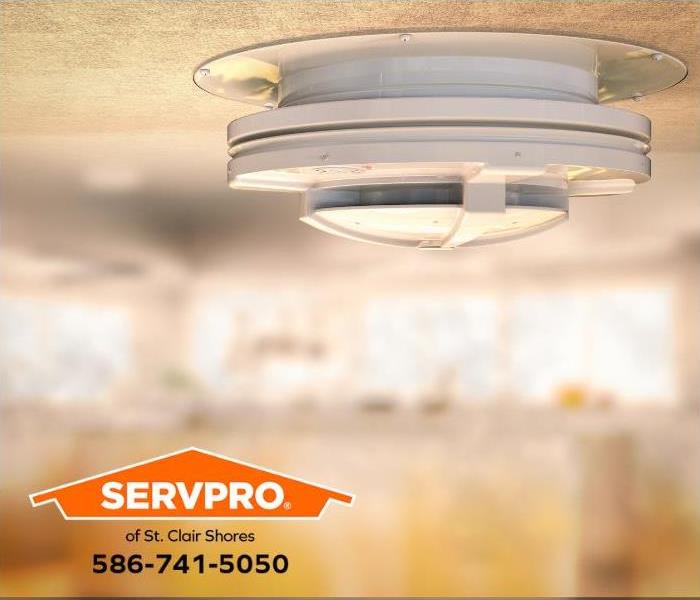 We are fire damage restoration leaders in Macomb County.
We are fire damage restoration leaders in Macomb County.
Our local St. Clair Shores team restores fire damage in Roseville every year and wants everyone to know about smoke alarm safety. The National Fire Protection Association (NFPA) has declared “Smoke alarms: Make them work for you!” as the theme for Fire Prevention Week 2024, which will take place from October 6 to 12. This theme underscores the importance of having functional smoke alarms in every home, as they significantly reduce the risk of fire-related fatalities.
Smoke alarms are a proven, life-saving tool. They can cut the risk of dying in a home fire by more than half, yet many homes either lack these alarms or have units that don’t work. The NFPA’s campaign is focused on ensuring that all homes are equipped with properly installed and maintained smoke alarms. This includes placing alarms in every bedroom, outside sleeping areas, and on every level of the home.
Regular testing and timely replacement of smoke alarms are key to maintaining their effectiveness. Fire Prevention Week is an annual reminder to check your smoke alarms and ensure they are working correctly. This small effort can make a huge difference in the safety of your home and family.
Call Us Today!
When your Roseville home or commercial business has fire damage, our local St. Clair Shores team is Here to Help. ® Call us today at 586-741-5050.
SERVPRO® franchises are independently owned and operated.
Halloween Party Electrical Fires: Avoiding Hazards with Cords and Outlets in St. Clair Shores?
9/30/2024 (Permalink)
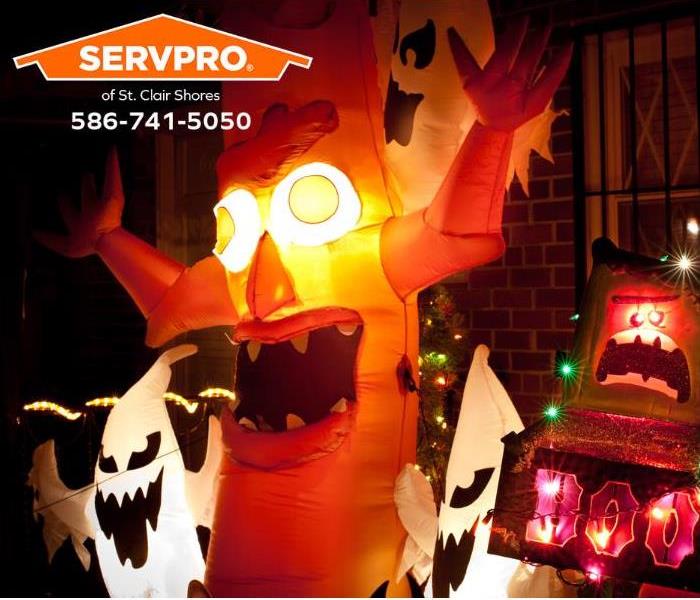 We are fire damage restoration leaders in Macomb County.
We are fire damage restoration leaders in Macomb County.
Our local St. Clair Shores team wants everyone to have a safe and fun Halloween celebration. Halloween parties often feature elaborate displays that require a lot of electrical power, but overloading outlets and extension cords can lead to dangerous fires.
When too many lights, fog machines, or other decorations are plugged into a single outlet or extension cord, the electrical load can cause overheating, which may ignite a fire. This risk is heightened if the electrical cords are damaged or worn.
Always use heavy-duty extension cords rated for the electrical load to prevent such hazards and avoid daisy-chaining multiple cords together. Spread your electrical devices across different outlets to prevent overloading a single circuit.
It’s also essential to inspect all cords for damage before plugging them in and replace any that show signs of wear, such as fraying or exposed wires. Keep cords out of high-traffic areas to prevent tripping and accidental disconnection, which can also cause sparks and lead to a fire.
By following these safety tips, you can ensure that your Halloween party is not only spooky but also safe from the dangers of electrical fires.
Call Us Today!
When your home or commercial business in St. Clair Shores has a fire damage emergency, our local St. Clair Shores team is Here to Help. ® Call us today at 586-741-5050.
SERVPRO® franchises are independently owned and operated.
Dry Lightning Dangers: Protecting Your Home from Fire Damage in St. Clair Shores?
9/17/2024 (Permalink)
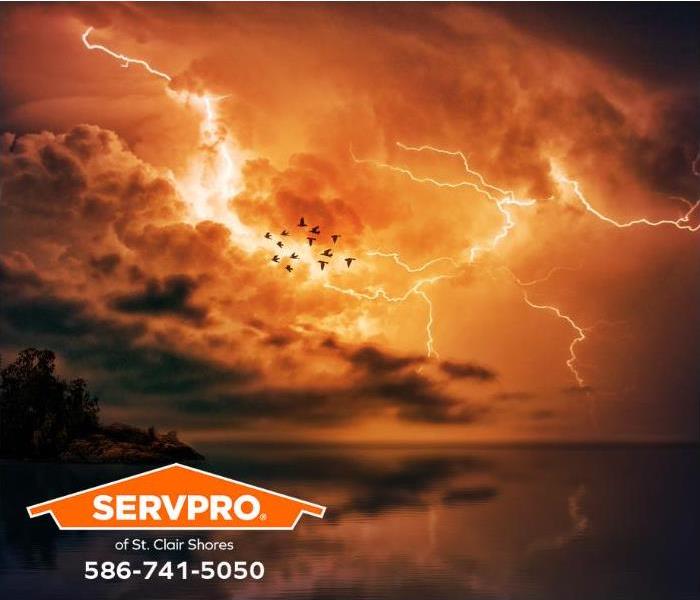 We are a top choice for fire damage restoration services in Macomb County.
We are a top choice for fire damage restoration services in Macomb County.
Dry lightning, a phenomenon where lightning occurs with little to no accompanying rainfall, poses a significant risk for residential fires. This natural event often strikes during dry conditions, igniting flammable vegetation and spreading rapidly to nearby homes. The intense heat from the lightning bolt can quickly spark wildfires, especially in areas with abundant dry brush and trees. Homeowners in such regions must be particularly vigilant during dry lightning storms.
Preventive measures can significantly reduce the risk of fire damage. Essential steps include:
- Maintaining a defensible space around the property by clearing dead vegetation
- Using fire-resistant landscaping materials
- Keeping roofs and gutters free of debris
Installing surge protectors can also safeguard electrical appliances from lightning-induced power surges, which can lead to fires. Immediate evacuation and calling emergency services are crucial in the event of a fire. Homeowners should also have an emergency plan, including fire extinguishers, evacuation routes, and an accessible communication strategy.
After a fire, professional restoration services are vital to assess and repair the damage. Our local St. Clair Shores team specializes in restoring homes affected by fire, ensuring they are restored to pre-fire conditions. Understanding the risks and being prepared can make all the difference when dealing with the threat of dry lightning-induced fires.
Call Us Today!
When your home or business in St. Clair Shores sustains fire damage, our local St. Clair Shores team is Here to Help. ® Call us today at 586-741-5050.
Warren Home Sustains Fire Damage from a Damaged Electric Cord?
6/4/2024 (Permalink)
 We are trained and certified to restore fire damage in Macomb County.
We are trained and certified to restore fire damage in Macomb County.
Our local St. Clair Shores team is highly trained and certified to restore fire damage in Warren. Understanding the primary causes of home fires is crucial for prevention and safety. Here are some leading causes:
Cooking Equipment: Whether a stove is left unattended while frying food or the oven is forgotten, cooking-related fires can ignite quickly and spread rapidly, especially in kitchens with flammable materials nearby.
Heating Systems: Malfunctioning heating systems, including furnaces, space heaters, and wood stoves, pose a significant fire risk, particularly during colder months. Improper installation, lack of maintenance, and failure to follow safety precautions can lead to fires.
Electrical Fires: Faulty wiring, overloaded circuits, and disrepair of electrical appliances can spark electrical fires in homes. Old or damaged electrical cords, extension cords, and faulty outlets are common culprits.
Smoking Materials: Careless smoking habits, such as improperly extinguishing cigarettes or cigars, can ignite furniture, bedding, or clothing, leading to fatal fires.
Candles: While candles create ambiance, they pose a fire hazard if left unattended or placed near flammable materials. Knocked-over candles or forgotten flames can ignite curtains, upholstery, or decorations, leading to devastating fires.
Call Us Today!
When your home or commercial business in Warren needs fire damage restoration services, our local team in St. Clair Shores is Here to Help. ® Call us today at 586-741-5050.
SERVPRO® franchises are independently owned and operated.
Dirty Barbeque Grill Causes Home Fire in St. Clair Shores?
5/21/2024 (Permalink)
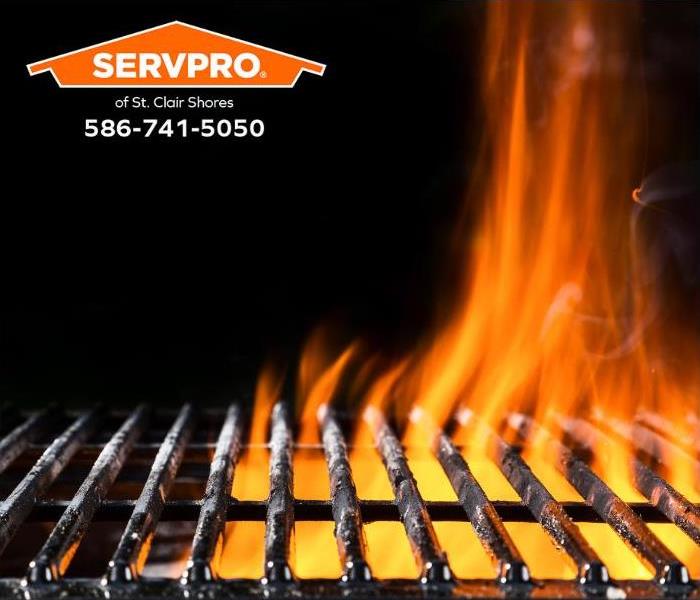 We are trained and certified to restore fire, smoke, and soot damage in Macomb County.
We are trained and certified to restore fire, smoke, and soot damage in Macomb County.
Our local St. Clair Shores team is a leader in fire damage restoration services. One of the top causes of fire damage in homes in the United States in May is related to outdoor activities and grilling. As the weather warms up, many people use outdoor grills, fire pits, or cooking appliances for barbecues, picnics, and gatherings. However, improper use or maintenance of these outdoor cooking sources can lead to fires, especially if safety precautions are not followed.
To prevent fire damage related to outdoor activities, residents need to follow these safety guidelines:
- Maintain a safe distance between grills, fire pits, and flammable materials such as vegetation, patio furniture, and structures
- Clean grills regularly to remove grease buildup and debris
- Keep a fire extinguisher nearby when cooking outdoors, and know how to use it
- Never leave outdoor fires unattended; always fully extinguish flames before leaving the area
- Check local regulations and fire restrictions before lighting fires, especially in areas prone to wildfires
- Educate family members and guests about fire safety practices when enjoying outdoor activities
By taking these precautions, homeowners can reduce the risk of fire damage associated with outdoor activities and ensure a safe and enjoyable experience for everyone involved.
Call Us Today!
When your home or commercial business in St. Clair Shores sustains fire damage, our local St. Clair Shores team is Here to Help. ® Call us today at 586-741-5050.
SERVPRO® franchises are independently owned and operated.
Why is Soot from Furnace Puff Backs So Difficult to Clean in St. Clair Shores?
12/5/2023 (Permalink)
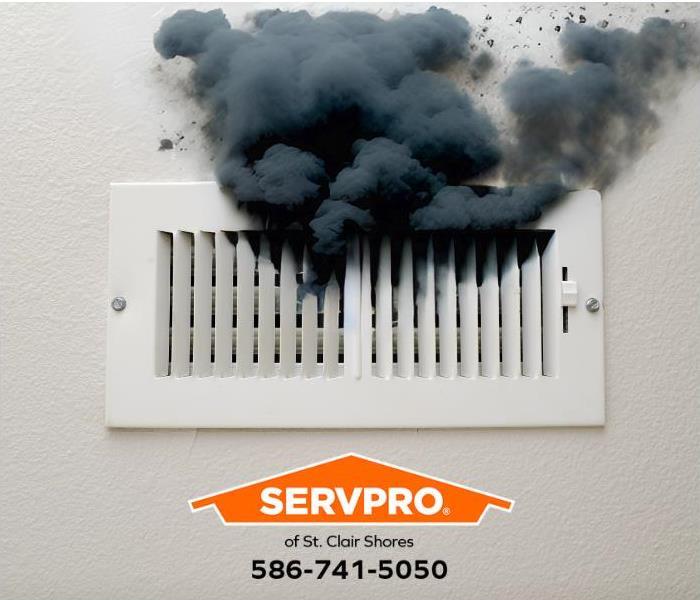 We clean and restore furnace puff back damage in Macomb County.
We clean and restore furnace puff back damage in Macomb County.
Our local St. Clair Shores team is trained and certified to clean and restore oily furnace puff back residue by the Institute of Inspection Cleaning and Restoration Certification. Soot from furnace puff backs is difficult to clean for several reasons:
Fine Particle Size: Soot particles produced during a puff back are extremely small and fine. These particles can easily become airborne and settle into every nook and cranny of a home. Their small size makes them challenging to capture and remove effectively.
Sticky and Oily Texture: Soot particles are often oily and sticky due to the incomplete combustion of fuel. This adhesive quality allows soot to adhere firmly to surfaces, making it harder to wipe or dust away.
Electrostatic Attraction: Soot particles can carry an electrostatic charge, which can cause them to adhere even more strongly to surfaces. This attraction can make it difficult to dislodge and remove soot through conventional cleaning methods.
Damage to Surfaces: Soot can be abrasive and abrasive, potentially scratching or damaging surfaces like walls, ceilings, and furnishings during the cleaning process.
Residue Penetration: Soot can penetrate porous materials, such as fabrics, upholstery, and carpets, making it challenging to fully remove. The particles can become trapped deep within the fibers, requiring specialized cleaning techniques.
Multiple Surfaces: Puff backs often distribute soot throughout an entire home, affecting multiple surfaces and areas. Cleaning all affected areas thoroughly can be a time-consuming and labor-intensive process.
Odor Retention: Soot particles can trap odors, and even after cleaning, lingering odors from the puff back may persist. Specialized deodorization methods may be needed to eliminate these odors completely.
Call Us Today!
When your St. Clair Shores home or commercial business has puff back damage, our local team in St. Clair Shores is Here to Help®. We’ll clean and restore your puff back damage “Like it never even happened.” Call us today at 586-741-5050.
SERVPRO of St. Clair Shores is independently owned and operated.
Warren Community Benefits from Our Soot Cleaning Services?
11/20/2023 (Permalink)
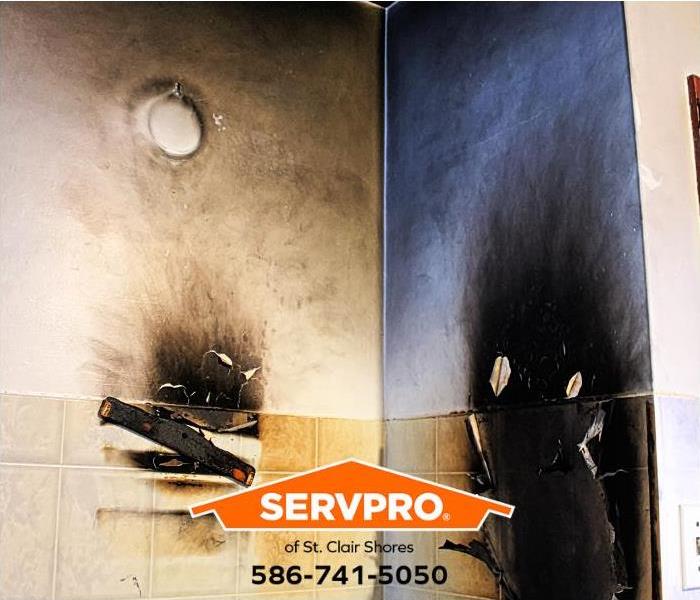 We are certified to clean and restore soot, smoke, and fire damage in Macomb County.
We are certified to clean and restore soot, smoke, and fire damage in Macomb County.
Our local St. Clair Shores team is trained and certified to clean, restore, and rebuild fire-damaged properties in Warren. Soot is a byproduct of fire damage that requires professional cleaning. Every fire leaves behind a unique “signature” based on what fueled the fire, so our technicians pretest every surface prior to cleaning to ensure we are using the most effective cleaning method.
Here are some examples of the cleaning methods we use:
- Dry Cleaning - used for cleaning light residues or to pre-clean prior to wet cleaning.
- Wet Cleaning - an effective cleaning method for removing moderate to heavy residues.
- Spray and Wipe - effective for items that can’t withstand wet cleaning.
- Foam Cleaning - used for upholstery fabrics that might shrink or bleed if wet cleaned.
- Abrasive Cleaning - involves agitation of the surface being cleaned.
- Immersion Cleaning - contents are dipped into a bath of the cleaning product.
Call Us Today!
When your home or commercial business in Warren has soot damage and requires soot cleanup and restoration services, our local team in St. Clair Shores is Here to Help. ® Our technicians have the advanced training, equipment, and experience to safely clean and restore your home and precious keepsakes and belongings to pre-fire condition in most cases. Call us today at 586-741-5050.
SERVPRO of St. Clair Shores is independently owned and operated.
Comprehensive Fire Damage Restoration Services in Grosse Pointe Shores?
11/7/2023 (Permalink)
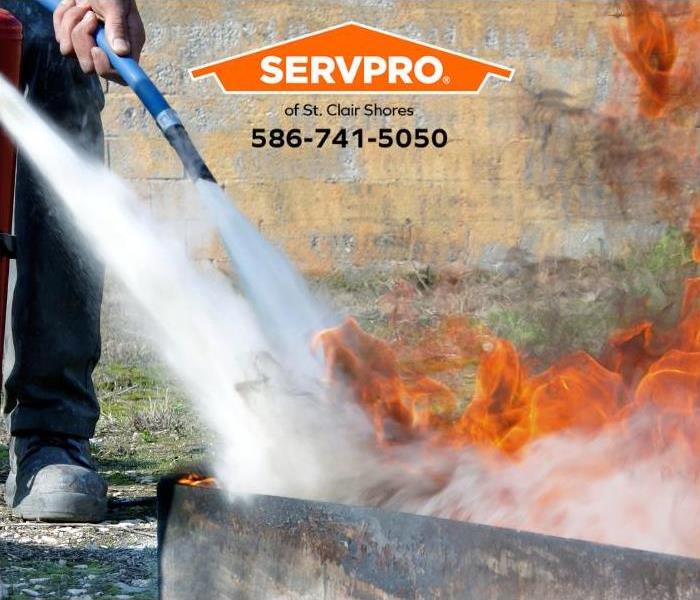 We respond to fire damage emergencies 24 hours a day in Macomb County.
We respond to fire damage emergencies 24 hours a day in Macomb County.
Our local St. Clair Shores team is a trusted leader in fire damage restoration services. For many years, Grosse Pointe Shores residents and businesses have relied on us to completely restore their fire damage from the initial cleanup phase to the final rebuilding phase of the restoration. This gives our customers peace of mind, knowing they have one qualified company performing the entire restoration from start to finish. Here is a recent Google review from one of our fire damage customers:
“Missy, Nicole, and their team were very professional. They handled the cleanup of my parent's fire damage with great efficiency. Missy, Nicole, and Megan were especially compassionate to my mom in her time of need. I would definitely recommend this company.” Julie Garofalo
Positive: Professionalism, Quality, Responsiveness
Why are we a top choice for fire damage restoration services?
- 24-Hour Emergency Service
- Faster to Any-Sized Disaster
- Highly Trained Technicians
- A Trusted Leader in the Restoration Industry
- Locally Owned and Operated
- Advanced Restoration and Cleaning Equipment
Call Us Today!
When your home or commercial business in Grosse Pointe Shores has fire damage and requires fire damage cleanup and restoration services, our local team in St. Clair Shores is Here to Help. ® We’ll restore your damage “Like it never even happened.” Call us today at 586-741-5050.
SERVPRO of St. Clair Shores is independently owned and operated.
Elderly Couple Escapes Fire Safely in St. Clair Shores?
8/1/2023 (Permalink)
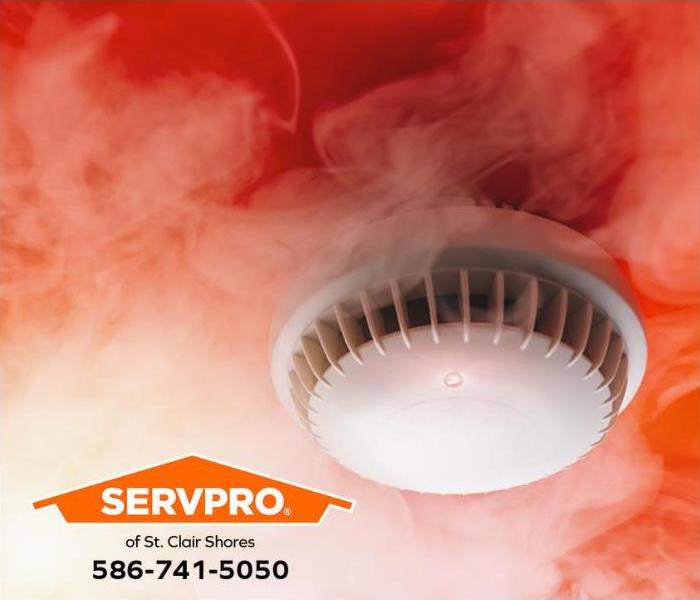 We are trusted leaders in fire damage restoration services in Macomb County.
We are trusted leaders in fire damage restoration services in Macomb County.
Our local team in St. Clair Shores knows that smoke alarms save lives. However, those who are deaf or hard of hearing cannot depend on the sound of the regular alarm to alert them of a fire threat. Here are some safety tips from the National Fire Protection Association for alerting deaf or hard of hearing people of a fire danger:
Safety Tips
- Smoke alarms are available for people who are deaf (those with profound hearing loss). These alarms use strobe lights to wake the person. Vibration notification appliances, such as pillows or bed shakers, are required and should become activated by a smoke alarm to alert the individual of smoke or fire dangers.
- Older adults or people who are hard of hearing (those with mild to severe hearing loss) can use a device that emits a mixed, low-pitched sound. In its current form, this device activates by the sound of a traditional smoke alarm.
- Always choose equipment that has the label of a recognized testing laboratory
- Make sure everyone in your home understands and reacts to the signal (light, vibration, or sound) used in their situation
- Test smoke alarms monthly. Replace smoke alarms and equipment for people who are deaf or hard of hearing according to the manufacturer’s recommendations
Call Us Today!
When your home or commercial business in St. Clair Shores has fire damage, our local team in St. Clair Shores is Here to Help. ® We’ll restore your damage “Like it never even happened.” Call us today at 586-741-5050.
Franchises are independently owned and operated.
Fire Safety Planning Tips for Pets in Warren?
6/20/2023 (Permalink)
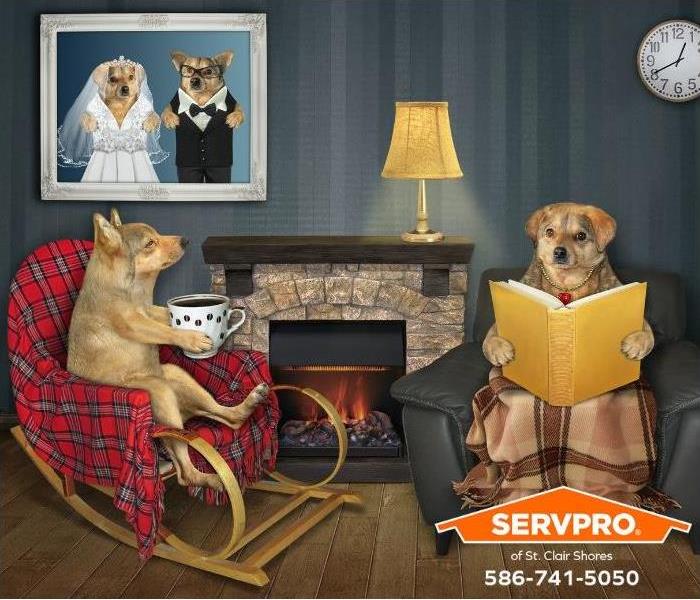 We respond to fire damage emergencies 24 hours a day in Macomb County.
We respond to fire damage emergencies 24 hours a day in Macomb County.
Are your pets included in your fire safety plan? Our local in St. Clair Shores team responds to fire damage emergencies every year in Warren and we want you and your furry friends to be safe in the event of a fire. The National Fire Protection Association (NFPA) offers these pet fire safety tips to keep your pets safe around fire:
- Keep pets away from stoves and countertops
- Keep pets away from candles, lamps, and space heaters
- Always use a metal or heat-tempered glass screen on a fireplace and keep it in place
- Keep pets away from a chimney’s outside vents.
- Have a “pet-free zone” of at least three feet away from the fireplace. Glass doors and screens can stay dangerously hot for several hours after the fire goes out.
- Some pets are chewers. Watch pets to make sure they don’t chew through electrical cords. Have any problems checked by a professional.
Call Us Today!
The NFPA reports that each year 750 home fires are attributed to pets. When your home or commercial business in Warren has fire damage, our local team in St. Clair Shores is Here to Help. ® We’ll restore your fire damage “Like it never even happened.” Call us today at 586-741-5050.
Franchises are independently owned and operated.
Fire Safety For St. Clair Shores Babysitters?
11/21/2022 (Permalink)
 We respond to fire damage emergencies 24-hours a day in Macomb County.
We respond to fire damage emergencies 24-hours a day in Macomb County.
During the holiday season, there are many social activities and parties to attend, which means babysitters are busy! Our local team in St. Clair Shores offers these babysitting tips from the National Fire Protection Association:
Show the babysitter your home escape plan and make sure the babysitter understands:
- There are two ways out of every room
- Where the outdoor meeting place is located
- The fire department or emergency phone number
- The address of the home
- How to unlock all doors and windows
- Keeps your child at least three feet away from the stove
- Keeps your child at least three feet away from the microwave oven
- Never leave the room while cooking
- Keeps anything that can catch fire away from the stovetop
- Keeps pets off surfaces and countertops
- Get out of the home quickly with your child to safety when the smoke alarm sounds
- Use the second way out if smoke is in the way
- Get low and go under the smoke to the exit if an escape must be made through smoke
- Store matches and lighters out of your child’s reach
- Your babysitter should not use candles
- Make sure your babysitter keeps a three-foot “kid-free zone” around space heaters
Call Us Today!
When you have a fire damage emergency in your home or business in St. Clair Shores, our local team in St. Clair Shores is Here to Help. ® Call us today at 586-741-5050.
Franchises are independently owned and operated.
How Often Should I Have My Chimney Cleaned in Warren?
11/8/2022 (Permalink)
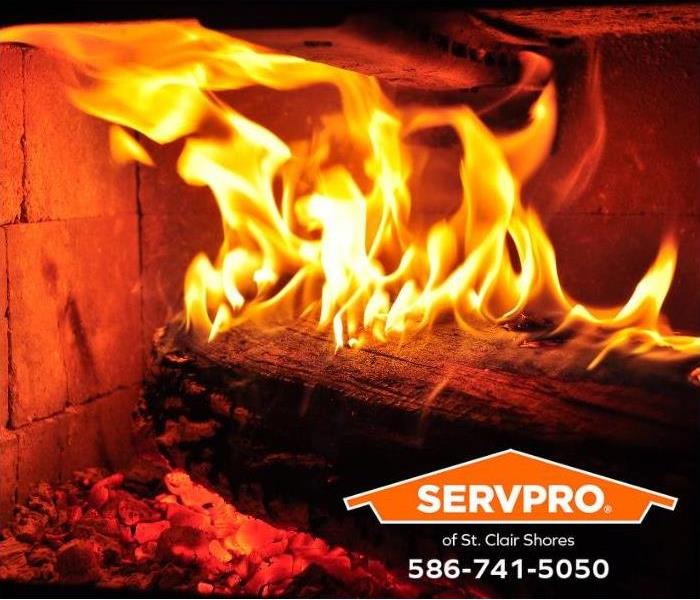 We are trusted leaders in fire damage restoration services in Macomb County.
We are trusted leaders in fire damage restoration services in Macomb County.
It’s that time of year when many residents in Warren are lighting fires in their fireplaces. The National Fire Protection Association recommends getting your chimney cleaned and inspected annually by a trained and qualified professional.
Some indications that your chimney is not operating at peak performance are:
- Oily spots on the walls of your fireplace
- Poorly drawing or burning fires
- Odors are emanating from your fireplace
- Animals are living inside your chimney
- Fires are difficult to ignite
- Chimney soot is falling from the chimney
- The chimney damper has black creosote buildup
- The chimney is not drawing air
What happens during a chimney inspection and professional cleaning? According to the home improvement website Angi, three levels of chimney inspections exist. Here is what you can inspect during a Level One inspection:
Level One
This inspection is conducted on a chimney that is in good condition, has had no problems operating, and has not been modified. The inspector will examine and check the accessible components of the chimney to ensure the structure is intact and each part is functioning correctly.
The readily accessible chimney parts usually include the fireplace, firebox, damper, flue opening, and exterior parts sticking out from the roof. In addition, the inspector will confirm there are no obstructions or combustion deposits.
Call Us Today!
When you have a fire damage emergency in your home or business in Warren, our local team in St. Clair Shores is Here to Help. ® Call us today at 586-741-5050.
Franchises are independently owned and operated.
Fire Safety for Elderly Populations in Eastpointe?
11/1/2022 (Permalink)
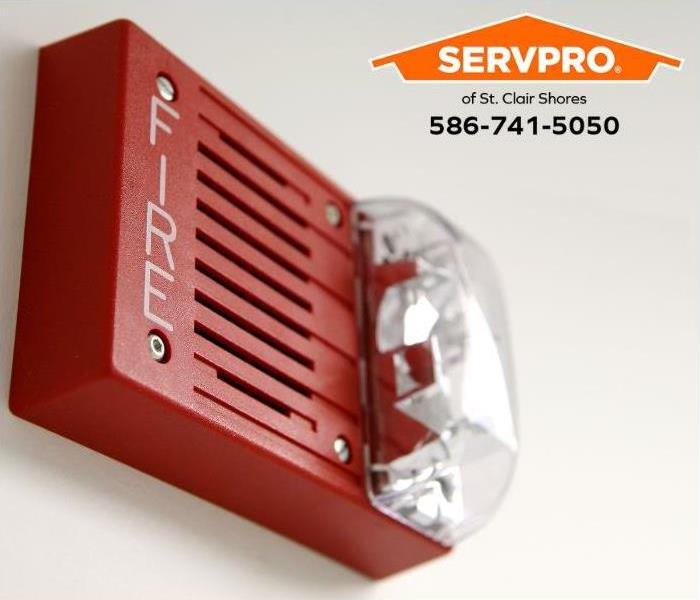 We restore fire damage 24-hours a day in Macomb County.
We restore fire damage 24-hours a day in Macomb County.
Do you have a fire safety plan for older adults in your Eastpointe household? Our team in St. Clair Shores offers these safety tips from the National Fire Protection Association:
- Sound the alarm
If anyone in your household is deaf or if your hearing is diminished, consider installing a smoke alarm that uses a flashing light or vibration to alert you to a fire emergency. View a list of product manufacturers. - Do the drill
Conduct your own, or participate in, regular fire drills to make sure you know what to do in the event of a home fire. If you or someone you live with cannot escape alone, designate a household member to assist and decide on backups in case the designee isn't home. - Open up
Make sure you can open all doors and windows in your home. Locks and pins should open easily from the inside. Check to be sure that windows haven't been sealed shut with paint or nailed shut; if they have, arrange for someone to break the seals all around your home or remove the nails. - Stay connected
Keep a telephone nearby and emergency phone numbers so that you can communicate with emergency personnel if you're trapped in your room by fire or smoke.
Call Us Today!
When your home or business in Eastpointe has fire damage, our local team in St. Clair Shores is Here to Help. ® Call us today at 586-741-5050.
Franchises are independently owned and operated.
Comprehensive Fire Damage Restoration Process Used in Grosse Pointe Shores Homes?
9/9/2022 (Permalink)
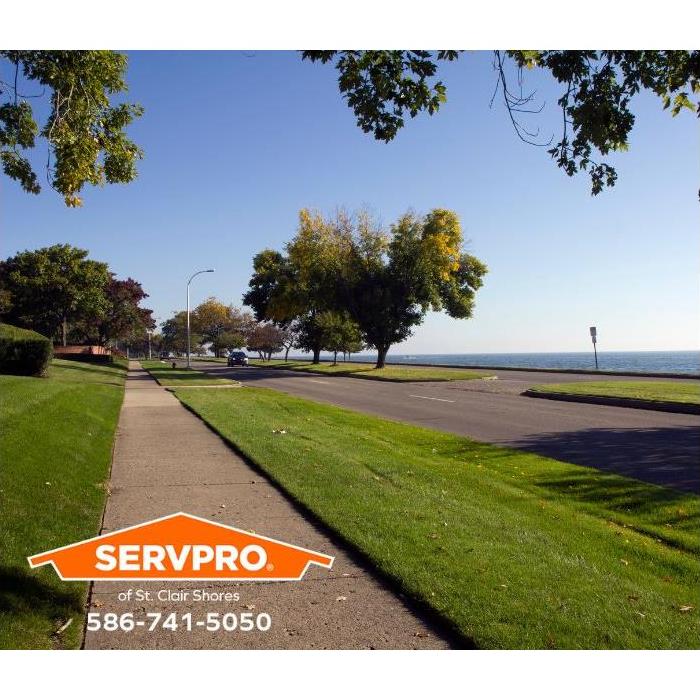 We are trusted fire damage restoration leaders in Macomb and Wayne Counties.
We are trusted fire damage restoration leaders in Macomb and Wayne Counties.
Our local team in St. Clair Shores are leaders in fire damage restoration services. Grosse Pointe Shores residents can trust us to restore fire damage quickly and efficiently. Here is the process we follow for every fire restoration:
Step 1: Emergency Contact
Our representative will ask questions regarding the fire damage event to help us respond immediately with the appropriate equipment and resources.
Step 2: Inspection and Assessment
Step 3: Immediate Board-Up and Roof-Tarp Service
We will board up missing windows and walls and place tarps on damaged roofs.
Step 4: Water Removal and Drying
The water removal process begins almost immediately and removes most of the water. We then use dehumidifiers and air movers to remove the remaining water and complete the drying process.
Step 5: Removal of Smoke and Soot
We use specialized equipment and techniques to remove smoke and soot from ceilings, walls, and other surfaces.
Step 6: Cleaning and Sanitizing
We clean, sanitize, and disinfect all of the restorable items. We’re also trained to remove odors using industrial air scrubbers and fogging equipment.
Step 7: Restoration
Restoration may involve minor or major repairs, like the reconstruction of various areas or rooms in a home or business.
Call Us!
When your Grosse Pointe Shores home or commercial business has a fire damage emergency, our local team in St. Clair Shores is Here to Help. ® Call us today at 586-741-5050.
Franchises are independently owned and operated.
Fire Pit Ember Fire in St. Clair Shores?
8/5/2022 (Permalink)
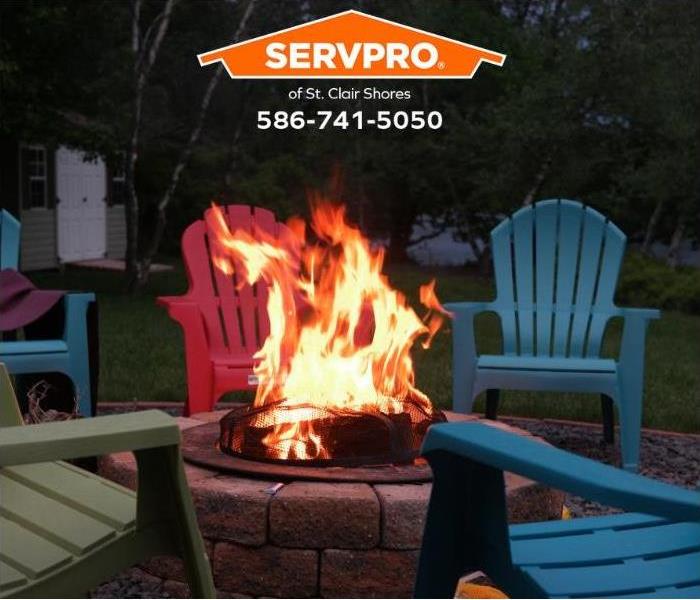 We respond to fire damage emergencies 24-hours a day in Macomb County.
We respond to fire damage emergencies 24-hours a day in Macomb County.
Fire pits are great ways to spend time together on warm summer nights. Our local team in St. Clair Shores responds to fire damage emergencies throughout the year and offers this information on fire pit safety from the National Fire Protection Association:
- Carefully consider the placement of fire pits and equipment, keeping anything that can burn well away
- Fire pits should be located at least 10 feet away from the home or structure
- In areas where campfires are permitted, they must be at least 25 feet away from any structure and anything that can burn. Also, make sure to clear away dry leaves and sticks, low overhanging branches, and shrubs.
- Keep children and pets at least three feet away from any type of fire pit or outdoor heating equipment in use
- Make sure combustible items, such as blankets and outerwear, are at least three feet away from equipment
Fire restoration process
Step 1: Emergency Contact
Step 2: Inspection and Fire Damage Assessment
Step 3: Immediate Board-Up and Roof-Tarp Service
Step 4: Water Removal and Drying (if water damage is present)
Step 5: Removal of Smoke and Soot from All Surfaces
Step 6: Cleaning and Sanitizing
Step 7: Restoration
Call Us!
Fire damage can happen at any time and for many reasons. When your St. Clair Shores home or business has a fire damage emergency, our St. Clair Shores team will restore your fire damage “Like it never even happened.” Call us today at 586-741-5050.
Franchises are independently owned and operated.
Children Start Fire in Roseville Backyard?
6/14/2022 (Permalink)
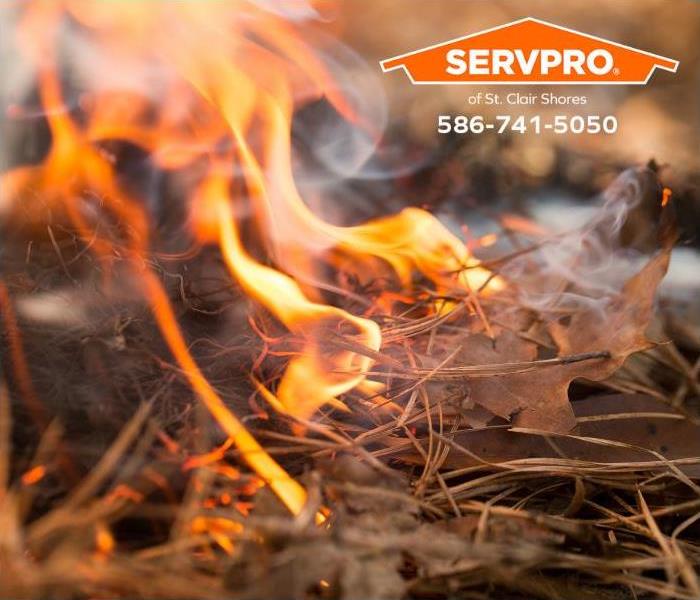 We restore fire damage 24-hours a day in Macomb County.
We restore fire damage 24-hours a day in Macomb County.
The National Fire Protection Association (NFPA) reports that fires caused by fire play cause $205 million each year in damages. Our local team in St. Clair Shores offers these tips from the NFPA for preventing kids from playing with fire in Roseville:
- Keep matches and lighters out of the reach of children, up high, preferably in a locked cabinet
- Closely supervise children, making sure that they are kept away from other fire sources, including lit candles, cigarettes, bonfires, and stoves
- Explain that fire moves very fast and can hurt as soon as it touches them. Tell them that this is why matches and lighters are tools for adults only.
- Teach young children never to touch matches or lighters. They must tell you when matches or lighters are found.
- Establish clear rules and consequences about unsupervised and unauthorized uses of fire
- Be a good example! Always use fire sources — matches, lighters, candles, fireplaces, and campfires — in a safe manner. Never treat them as toys, or children may imitate you.
- Talk with children about what their friends or other children are doing with fire. What do they see online in video games, TV, movies, and social media? Teach them specific ways to resist the peer pressure to misuse fire.
- Give praise for showing respect and age-appropriate responsible behavior toward fire
Call Us!
When your Roseville home or business has fire damage, our local team in St. Clair Shores will restore your fire damage "Like it never even happened." Call us today at 586-741-5050.
Franchises are independently owned and operated.
How Will the Fire Damage Be Restored in My St. Clair Shores Home?
5/4/2022 (Permalink)
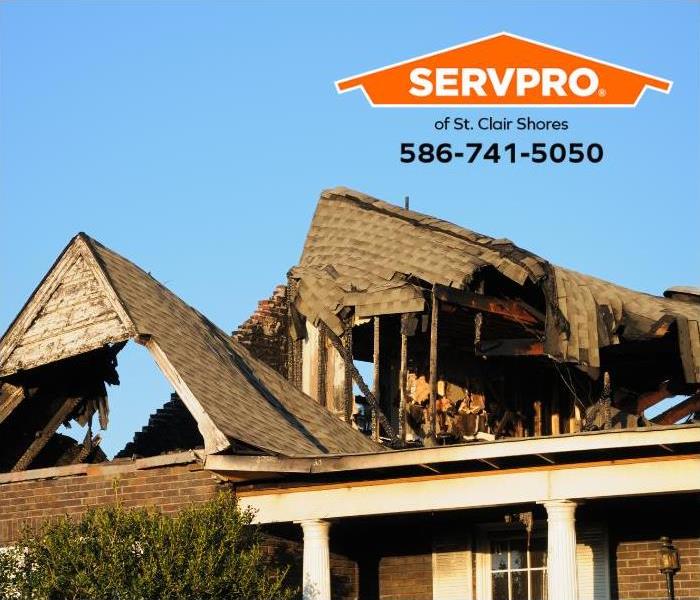 We restore fire damage 24-hours a day in Macomb County.
We restore fire damage 24-hours a day in Macomb County.
Our local team in St. Clair Shores has the training, equipment, and experience necessary to complete restorations from the initial clean-up phase to the restoration phase, including any construction services needed to return the property to pre-damage condition.
We follow a comprehensive, seven-step process:
Step 1: Emergency Contact
Our representative will ask questions regarding the fire damage event that will help us respond immediately with the appropriate equipment and resources.
Step 2: Inspection and Assessment
Step 3: Immediate Board-Up and Roof-Tarp Service
We will board up missing windows and walls and place tarps on damaged roofs.
Step 4: Water Removal and Drying
The water removal process begins almost immediately and removes most of the water. We then use dehumidifiers and air movers to remove the remaining water and complete the drying process.
Step 5: Removal of Smoke and Soot
We use specialized equipment and techniques to remove smoke and soot from ceilings, walls, and other surfaces.
Step 6: Cleaning and Sanitizing
We clean, sanitize, and disinfect all of the restorable items. We’re also trained to remove odors using industrial air scrubbers and fogging equipment.
Step 7: Restoration
Restoration may involve minor repairs, such as replacing drywall, painting, and installing new carpet, or it may entail major repairs such as the reconstruction of various areas or rooms in a home or business.
Call Us Today!
When your St. Clair Shores home or commercial business needs fire damage restoration services, our team in St. Clair Shores can help. Call us today at 586-741-5050.
Franchises are independently owned and operated.
Fire Damage Restoration Services in Warren?
3/1/2022 (Permalink)
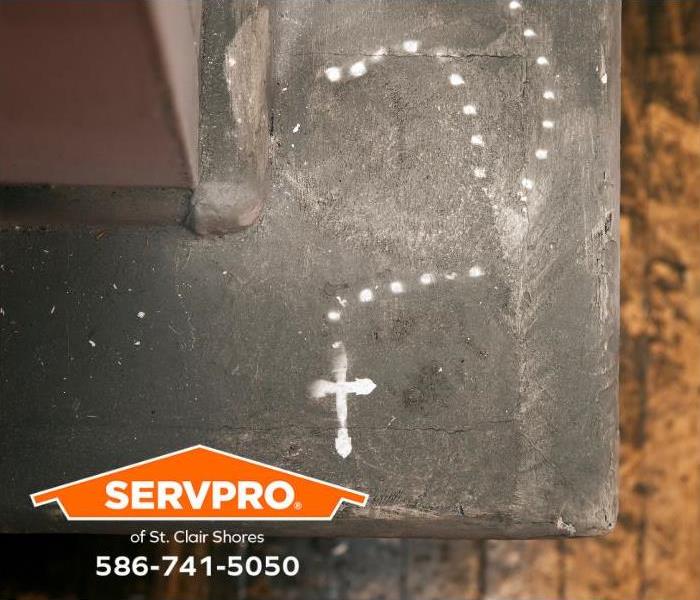 We follow a seven-step process to restore fire damage in Macomb County.
We follow a seven-step process to restore fire damage in Macomb County.
Although every fire loss is different, SERVPRO® of St. Clair Shores approaches each restoration using the same seven-step process to restore fire damage in Warren:
Step 1: Emergency Contact: Our representative will ask questions regarding the fire damage event that will help us respond immediately with the appropriate equipment and resources.
Step 2: Inspection and Assessment
Step 3: Immediate Board-Up and Roof-Tarp Service: We will board up missing windows and walls and place tarps on damaged roofs.
Step 4: Water Removal and Drying: The water removal process begins almost immediately and removes most of the water. We then use dehumidifiers and air movers to remove the remaining water and complete the drying process.
Step 5: Removal of Smoke and Soot: We use specialized equipment and techniques to remove smoke and soot from ceilings, walls, and other surfaces.
Step 6: Cleaning and Sanitizing: We clean, sanitize, and disinfect all restorable items. We’re also trained to remove odors using industrial air scrubbers and fogging equipment.
Step 7: Restoration: Restoration may involve minor repairs, such as replacing drywall, painting, and installing new carpet, or it may entail major repairs such as the reconstruction of various areas or rooms in a home or business.
Call Us Today!
When your Warren home or business has fire damage, SERVPRO® of St. Clair Shores is Here to Help. ® Our technicians have the training, equipment, and experience to restore the damage, “Like it never even happened.” Call us today at 586-741-5050.
Franchises are independently owned and operated.
Microwave Safety Tips for St. Clair Shores?
1/11/2022 (Permalink)
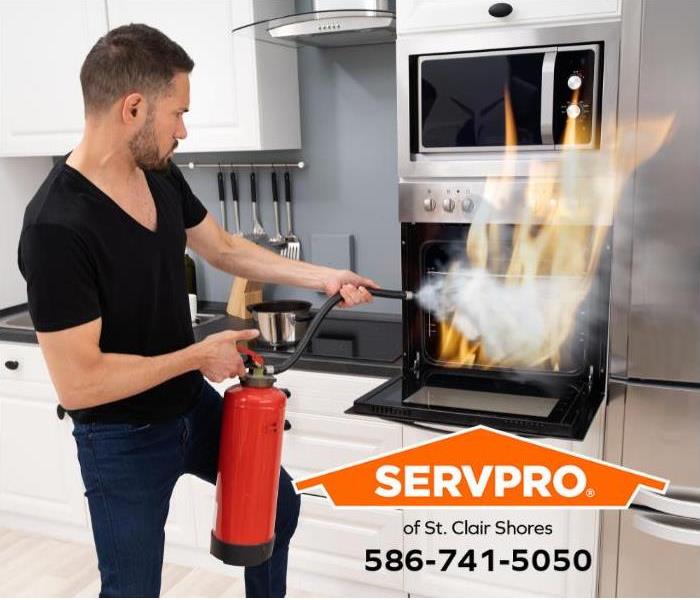 We are trusted leaders in fire damage restoration in Macomb County.
We are trusted leaders in fire damage restoration in Macomb County.
My niece put a foil-wrapped burrito in my microwave oven to reheat it. As you can guess, the aluminum foil ignited and started a fire in my microwave oven. Even though the fire was contained to the kitchen, there was smoke damage throughout the house.
SERVPRO® of St. Clair Shores restores fire damage in St. Clair Shores throughout the year. Here are some microwave safety tips from the National Fire Protection Association:
- PURCHASE a microwave oven that is listed by a qualified testing laboratory. Make sure to complete and return the product registration card. This way, the manufacturer can reach you if there is a recall on the product.
- PLUG the microwave oven directly into the wall outlet — never use an extension cord
- MAKE sure the microwave oven is at a safe height, within easy reach of all users
- OPEN food slowly, away from the face. Hot steam or the food itself can cause burns.
- FOOD heats unevenly in microwave ovens. Stir and test before eating or giving to children.
- NEVER heat a baby bottle in the microwave. Since a microwave oven heats unevenly, it can create hot pockets, leading to burns.
Call Us Today!
When your St. Clair Shores home or business needs help with fire damage restoration, SERVPRO® of St. Clair Shores’s technicians have a team of technicians on-call and ready to respond to your call. Call us today at 586-741-5050.
Franchises are independently owned and operated.
Fire Escape Planning for Warren Families?
11/10/2021 (Permalink)
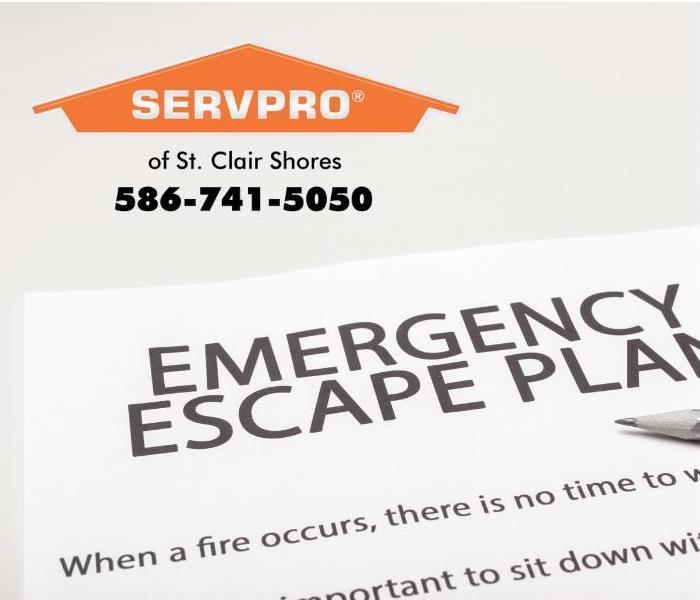 We restore fire damage 24-hours a day in Macomb County.
We restore fire damage 24-hours a day in Macomb County.
When a fire starts, it can spread quickly through the home. Once the fire alarm sounds, you may have as little as two minutes to get everyone out of the house safely. SERVPRO® of St. Clair Shores has been restoring fire damage in Warren for many years. We see the difference having a sound escape plan makes. Here are some escape planning tips from the National Fire Protection Association:
- Make a home escape plan. Draw a map of your home showing all of the doors and windows. Discuss the plan with everyone in your home.
- Know at least two ways out of every room, if possible. Make sure all doors and windows leading outside open easily.
- Have a designated place (tree, mailbox, light pole) a safe distance away from the house where everyone should meet.
- Practice your home fire drill at night and during the day with everyone in your home, twice a year
- Practice using different ways out
- Teach children how to escape on their own in case you can’t help them
- Close doors behind you as you leave
Call Us Today!
When your Warren area home or business has fire damage, SERVPRO® of St. Clair Shores has a team of technicians trained and certified to restore the fire damage, “Like it never even happened.” Call us today at 586-741-5050.
Franchises are Independently Owned and Operated.
Trick-or-Treating Safety for St. Clair Shores?
10/11/2021 (Permalink)
 We respond to fire damage emergencies 24-hours a day in Macomb County.
We respond to fire damage emergencies 24-hours a day in Macomb County.
Trick-or-Treating Hours in St. Clair Shores?
Halloween is a fun time of year for everyone. According to Patch.com, there are no set hours for trick-or-treating in St. Clair Shores, but usually, the hours run from dusk until the porch lights are turned off, around 8 pm. SERVPRO® of St. Clair Shores wants everyone to have a fun and safe Halloween this year. Here is a trick-ot-treat checklist and some helpful safety tips from the National Fire Protection Association:
Trick-or-Treat Checklist
- Flashlight
- Pre-arranged route, or map
- Cell phone, or another form of communication
- Rain gear and/or reflective clothing
For families still planning to attend Halloween parties:
- When choosing costumes, stay away from long trailing fabric that could come in contact with open flames or other heat sources
- Teach children to stay away from open flames, including jack-o-lanterns with candles in them
- Provide children with flashlights to carry for lighting or glow sticks as part of their costumes
Call Us Today!
When your home or commercial business needs fire damage restoration services, SERVPRO® of St. Clair Shores is ready to respond 24-hours a day every day of the year. Call us today at 586-741-5050. We’ll restore your fire damage in St. Clair Shores, “Like it never even happened.”
Franchises are Independently Owned and Operated.
House Fire Checklist: What to Do and What Not to Do After a House Fire
10/11/2021 (Permalink)
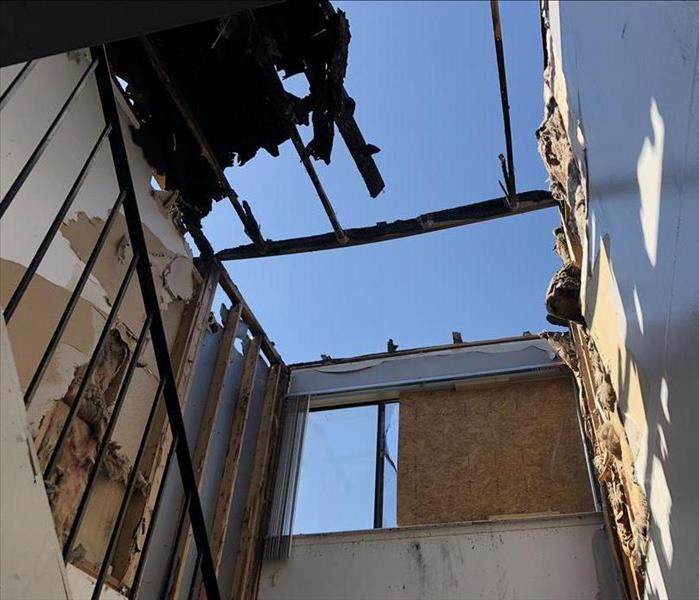 House Fire in Roseville, Michigan
House Fire in Roseville, Michigan
A house fire is a terrible event that can unsettle homeowners both physically and emotionally. It is one of the commonest disasters in the USA. There has been a lot of information on how to prevent house fires. That is because it is better not to experience it in the first place. But since house fires are rampant, there is a possibility that you may encounter one.
No matter the size of the house, fire outbreaks are possible. That is because several factors expose every home to a house fire. The common causes include:
- Electrical cables and equipment: It could occur following a malfunction from the wires deep inside the walls, an overloaded power point, faulty electrical appliances, frayed cords, inadequate wiring, and poor use of power point extension cords.
- Candles: Candles can cause fire outbreaks in the house if you use them poorly.
- Cooking equipment: Cooking equipment like pans and pots can lead to fire outbreaks if they overheat.
- Flammable liquids: Flammable liquids like methylated spirits, petrol, or kerosene can cause a house fire if they are close to heat sources.
- Heating: If you have a portable heater or furnace close to curtains, clothes, furniture, or laundry, they can lead to fire outbreaks.
- Children: Out of curiosity, children can set things on fire to see the effect.
- Smoking indoors: The butt of cigarettes can stay lit for a long time. If you do not put them off completely, they can ignite fire once they contact flammable materials.
Because of the emotional events that homeowners go through, they may tend to do things that will worsen the situation, warns Nelson PM. For that reason, this article aims to help you stay coordinated and prevent mistakes that can affect your insurance claims or expose your household to danger.
Below is a checklist of what to do and what not to do after a house fire.
What to do after a house fire
Ensure that your family is safe. Stay calm and reassure them. Check for signs of injuries on yourself, family members, and pets.
- Get a safe place to stay. Irrespective of the level of damage, you should not remain in that house.
- Contact your family and friends to inform them about the house fire. Also, reassure them of your safety.
- Contact your insurance company. Inform them about the fire outbreak and only give answers to the questions you know. Start the claim process to help address your needs. The insurance company will provide recommendations for restoring or cleaning up the property. They may also help to secure the house.
- Secure your home to protect it from unlawful entry and terrible weather even when it is damaged.
- Contact the local police department to inform them about the event. Doing this will help protect the house from looting since it is vacant.
- Contact utility providers to inform them about the fire so that they can temporarily shut off utility supplies to you.
- Get a copy of the fire report from your local fire department, read the summary, and file it. Your insurance company will find it valuable.
- Call a restoration company to assess the property. After a fire outbreak, the damages do not stop. For that reason, it is essential to get a restoration company early. Doing so will prevent further damage to the property.
- Get permission from the fire department to access the property. With that, you can take photographs and also note the level of damage. The restoration company should be present while you are doing this to prevent further damage.
- Create and keep a record of your belongings. Note the damaged and undamaged items. Do not dispose of damaged items yet.
- Retrieve all valuables such as passports, identity cards, certificates, licenses, financial records, medical records, and prescription drugs. Note that you are only retrieving the prescription drugs so that you can get a replacement.
- Keep up with financing your mortgage even after the house fire. Your insurance company will handle your losses.
- Notify your children’s school to let them know the situation your kids are going through.
- Notify the post office so that they will know whether to hold or forward your mails.
- Commence a replacement process for vital documents that were damaged by the fire.
What not to do after a house fire
- Do not gain access to the house without permission from the local fire department.
- Do not enter the house except you are fully kitted with personal protective equipment.
- Do not consume food items or drugs that were exposed to the fire.
- Do not use items that were damaged by the fire.
- Do not turn on any utilities until you are sure that they are safe.
- Do not attempt to wash or clean off the fire residue by yourself. Let professionals handle it.
- Do not attempt to start any vehicle that was damaged by the fire.
Candle Fire in St Clair Shores?
9/6/2021 (Permalink)
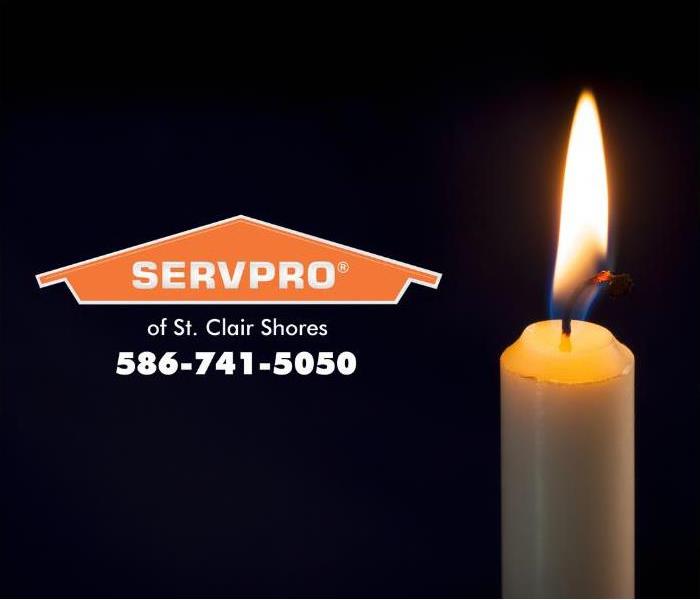 We respond to fire damage emergencies 24-hours a day in Macomb County.
We respond to fire damage emergencies 24-hours a day in Macomb County.
SERVPRO® of St. Clair Shores responds to many fire damage emergencies throughout the year in St. Clair Shores, often arriving as The City of St. Clair Shores Fire Department is rolling up their hoses and leaving the scene. Here are some candle fire safety tips from the St. Clair Shores Fire Department’s website:
- Place candles on stable furniture, in sturdy holders that will catch dripping wax
- Never leave a candle unattended
- If the power goes out, use flashlights for illumination; not candles
- Keep candles away from anything that can catch fire
- Place candles on higher furniture where they won’t be knocked over by children or pets
- Never place lit candles in windows where they could ignite curtains or blinds
- Don’t allow children or teens to have candles in their bedrooms
- Ask questions about the candles and candle-holders you buy. There are new standards that major manufacturers will follow to make sure the candles and candleholders won’t break, tip over, or otherwise malfunction in ordinary use.
- Extinguish candles carefully, using a long-handled candle snuffer or a soft, directed breath. Be careful not to splatter wax when extinguishing.
Call Us!
When your St. Clair Shores home or commercial business requires emergency fire damage restoration services, SERVPRO® of St. Clair Shores has a team of highly trained technicians on-call and ready to respond 24-hours a day. Call us today at 586-741-5050. We’ll restore your fire damage, “Like it never even happened.”
Franchises are Independently Owned and Operated.
House Fire Checklist: What to Do and What Not to Do After a House Fire
9/1/2021 (Permalink)
A house fire is a terrible event that can unsettle homeowners both physically and emotionally. It is one of the commonest disasters in the USA. There has been a lot of information on how to prevent house fires. That is because it is better not to experience it in the first place. But since house fires are rampant, there is a possibility that you may encounter one.
No matter the size of the house, fire outbreaks are possible. That is because several factors expose every home to a house fire. The common causes include:
- Electrical cables and equipment: It could occur following a malfunction from the wires deep inside the walls, an overloaded power point, faulty electrical appliances, frayed cords, inadequate wiring, and poor use of power point extension cords.
- Candles: Candles can cause fire outbreaks in the house if you use them poorly.
- Cooking equipment: Cooking equipment like pans and pots can lead to fire outbreaks if they overheat.
- Flammable liquids: Flammable liquids like methylated spirits, petrol, or kerosene can cause a house fire if they are close to heat sources.
- Heating: If you have a portable heater or furnace close to curtains, clothes, furniture, or laundry, they can lead to fire outbreaks.
- Children: Out of curiosity, children can set things on fire to see the effect.
- Smoking indoors: The butt of cigarettes can stay lit for a long time. If you do not put them off completely, they can ignite fire once they contact flammable materials.
Because of the emotional events that homeowners go through, they may tend to do things that will worsen the situation, warns Nelson PM. For that reason, this article aims to help you stay coordinated and prevent mistakes that can affect your insurance claims or expose your household to danger.
Below is a checklist of what to do and what not to do after a house fire.
What to do after a house fire
Ensure that your family is safe. Stay calm and reassure them. Check for signs of injuries on yourself, family members, and pets.
- Get a safe place to stay. Irrespective of the level of damage, you should not remain in that house.
- Contact your family and friends to inform them about the house fire. Also, reassure them of your safety.
- Contact your insurance company. Inform them about the fire outbreak and only give answers to the questions you know. Start the claim process to help address your needs. The insurance company will provide recommendations for restoring or cleaning up the property. They may also help to secure the house.
- Secure your home to protect it from unlawful entry and terrible weather even when it is damaged.
- Contact the local police department to inform them about the event. Doing this will help protect the house from looting since it is vacant.
- Contact utility providers to inform them about the fire so that they can temporarily shut off utility supplies to you.
- Get a copy of the fire report from your local fire department, read the summary, and file it. Your insurance company will find it valuable.
- Call a restoration company to assess the property. After a fire outbreak, the damages do not stop. For that reason, it is essential to get a restoration company early. Doing so will prevent further damage to the property.
- Get permission from the fire department to access the property. With that, you can take photographs and also note the level of damage. The restoration company should be present while you are doing this to prevent further damage.
- Create and keep a record of your belongings. Note the damaged and undamaged items. Do not dispose of damaged items yet.
- Retrieve all valuables such as passports, identity cards, certificates, licenses, financial records, medical records, and prescription drugs. Note that you are only retrieving the prescription drugs so that you can get a replacement.
- Keep up with financing your mortgage even after the house fire. Your insurance company will handle your losses.
- Notify your children’s school to let them know the situation your kids are going through.
- Notify the post office so that they will know whether to hold or forward your mail.
- Commence a replacement process for vital documents that were damaged by the fire.
What not to do after a house fire
- Do not gain access to the house without permission from the local fire department.
- Do not enter the house except you are fully kitted with personal protective equipment.
- Do not consume food items or drugs that were exposed to the fire.
- Do not use items that were damaged by the fire.
- Do not turn on any utilities until you are sure that they are safe.
- Do not attempt to wash or clean off the fire residue by yourself. Let professionals handle it.
- Do not attempt to start any vehicle that was damaged by the fire.
Fire Smoke Detector Safety Tips for Grosse Pointe Shores?
8/11/2021 (Permalink)
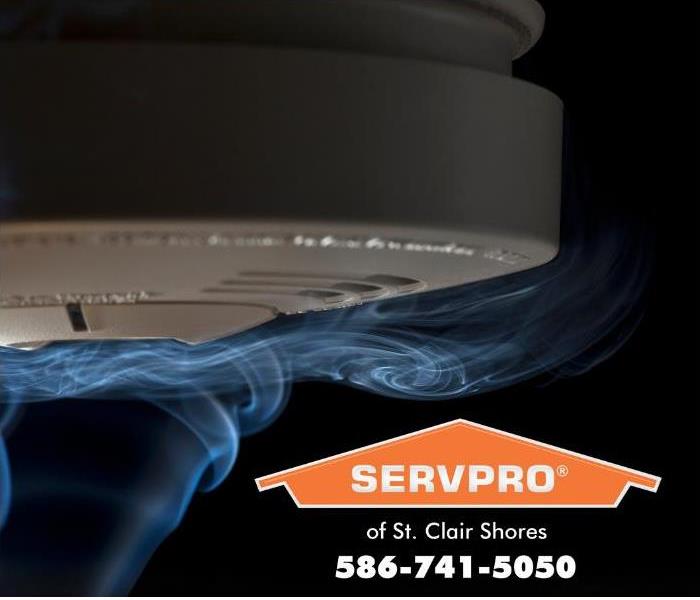 We respond to fire damage emergencies 24-hours a day in Wayne County.
We respond to fire damage emergencies 24-hours a day in Wayne County.
SERVPRO® of St. Clair Shores responds to fire damage emergencies in Grosse Pointe Shores 24-hours a day. Often, we arrive onsite as the Grosse Point Shores Fire Department’s firefighters are still working, and we will work alongside these first responders to clean up the damage. Smoke alarms are an effective way of getting out of a burning house safely when they are working properly.
Here is some helpful information from the National Fire Protection Association (NFPA), on smoke alarms:
- A closed-door may slow the spread of smoke, heat, and fire. Install smoke alarms in every sleeping room and outside each separate sleeping area. Install alarms on every level of the home.
- Smoke alarms should be interconnected. When one sounds, they all sound.
- Large homes may need extra smoke alarms
- Test your smoke alarms at least once a month. Press the test button to be sure the alarm is working.
- Today’s smoke alarms will be more technologically advanced to respond to a multitude of fire conditions, yet mitigate false alarms
- When a smoke alarm sounds, get outside and stay outside
- Replace all smoke alarms in your home every 10 years
Call Us Today!
When your home or commercial business needs fire restoration services, SERVPRO® of St. Clair Shores has a team of highly trained technicians on-call and ready to respond 24-hours a day. Call us today at 586-741-5050. We’ll restore your fire damage in Grosse Pointe Shores, “Like it never even happened.”
Franchises are Independently Owned and Operated.
Grilling Fire Damage in St. Clair Shores Home?
7/5/2021 (Permalink)
 We restore fire damage in Macomb County.
We restore fire damage in Macomb County.
It only took a minute for the tablecloth on the picnic table to catch fire. The wood-fire grill sent some sparks and wood embers up into the air, and they landed on the table, and whoosh – we had a fire. SERVPRO® of St. Clair Shores knows that under the right conditions, barbeque grills can start fires. Here are some grilling safety tips from the National Association of Fire Protection (NFPA) to keep you and your loved ones safe this grilling season:
Grilling Safety Tips
- Propane and charcoal BBQ grills should only be used outdoors
- The grill should be placed well away from the home, deck railings, and out from under eaves and overhanging branches
- Keep children and pets at least three feet away from the grill area
- Keep your grill clean by removing grease or fat buildup from the grills and in trays below the grill
- Never leave your grill unattended
- Always make sure your gas grill lid is open before lighting it
Call Us Today!
When your home or commercial business needs fire restoration services, SERVPRO® of St. Clair Shores has a team of highly trained technicians on-call and ready to respond 24-hours a day. Call us today at 586-741-5050. We’ll restore your fire damage in St. Clair Shores, “Like it never even happened.”
Franchises are Independently Owned and Operated.
Cooking Fire in Eastpointe Kitchen?
6/7/2021 (Permalink)
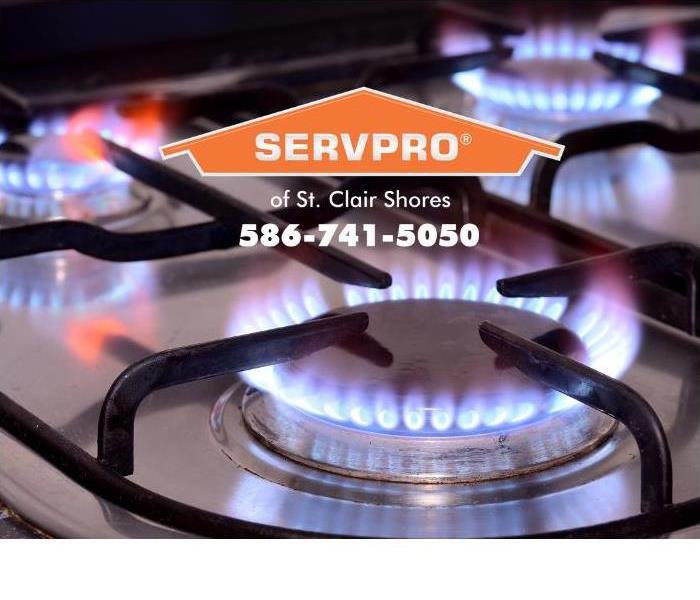 We respond to fire damage emergencies 24-hours a day in Macomb County.
We respond to fire damage emergencies 24-hours a day in Macomb County.
Fine Dining Fiasco
SERVPRO® of St. Clair Shores has been mitigating and restoring fire-damaged homes in Eastpointe for years and cooking fires continue to be the top reason for home fires. Here are some fire safety tips from the National Fire Protection Association to keep you safe while cooking:
“Cook with Caution”
- Be on alert! If you are sleepy or have consumed alcohol, don’t use the stove or stovetop.
- Stay in the kitchen while you are frying, boiling, grilling, or broiling food.
- If you leave the kitchen for even a short period of time, turn off the stove.
- If you are simmering, baking, or roasting food, check it regularly, remain in the home while food is cooking
- Use a timer to remind you that you are cooking
- Keep anything that can catch fire — oven mitts, wooden utensils, food packaging, towels, or curtains — away from your stovetop.
If you have a small (grease) cooking fire and decide to fight the fire...
- On the stovetop, smother the flames by sliding a lid over the pan and turning off the burner. Leave the pan covered until it is completely cooled.
- For an oven fire, turn off the heat and keep the door closed
Call Us Today!
When you need fire restoration services, SERVPRO® of St. Clair Shores has a team of highly trained technicians on-call and ready to respond 24-hours a day. Call us today at 586-741-5050. We’ll restore your fire damage in Eastpointe, “Like it never even happened.”
SERVPRO® of St. Clair Shores is Independently Owned and Operated.
Fire Safety Tips for St. Clair Shores Families?
4/14/2021 (Permalink)
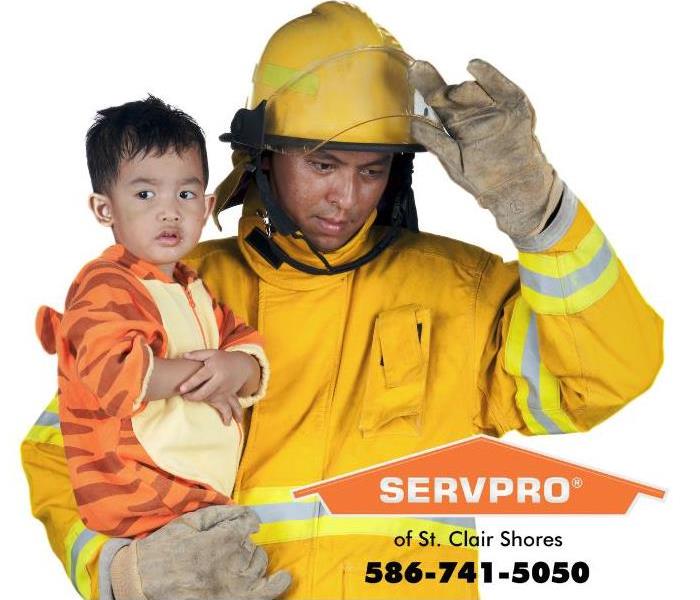 We respond to fire damage emergencies 24-hours a day in Macomb County!
We respond to fire damage emergencies 24-hours a day in Macomb County!
At SERVPRO® of St. Clair Shores, we have responded to many forms of fire damage in St. Clair Shores over the years and we know that it is never too early to teach children about fire safety. According to the National Fire Protection Association (NFPA), some children play with fire out of curiosity, boredom, or peer pressure and do not realize the danger fire poses. Each year children cause fires that result in hundreds of injuries and millions of dollars in damage. Here are some safety tips from the NFPA to keep your family safe:
- Keep matches and lighters out of the reach of children, up high, preferably in a locked cabinet
- Closely supervise children, making sure that they are kept away from other fire sources, including lit candles, cigarettes, bonfires, and stoves
- It is natural for young children to be curious and ask questions about fire, play with fire trucks, or pretend to cook. Use these opportunities to teach them about fire safety
- Explain that fire moves very fast and can hurt as soon as it touches them. Tell them that this is why matches and lighters are tools for adults only
- Establish clear rules and consequences about unsupervised and unauthorized uses of fire
Call Us Today!
SERVPRO® of St. Clair Shores has a team of restoration technicians on-call and ready to respond to fire damage emergencies 24-hours a day. Call us today at 586-741-5050. We’ll restore your fire damage in St. Clair Shores, “Like it never even happened.”
SERVPRO® of St. Clair Shores is Independently Owned and Operated.
Fire Extinguisher Safety Tips for Warren
3/10/2021 (Permalink)
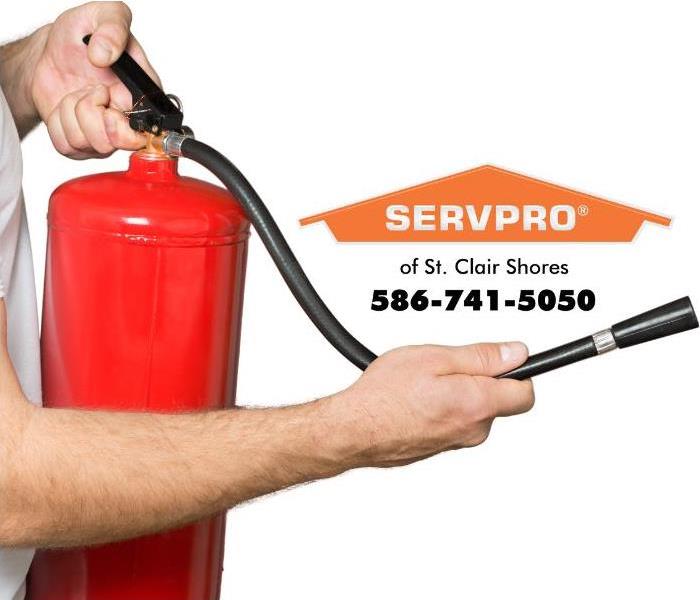 We mitigate fire damage in the St. Clair area 24-hours a day.
We mitigate fire damage in the St. Clair area 24-hours a day.
Tips for Choosing a Fire Extinguisher
Fire extinguishers are great to use when a fire breaks out in a small, contained area. The National Fire Protection Association (NFPA) encourages their use after everyone has left the building and the fire department has been called, and the room is not filled with smoke!
SERVPRO® of St. Clair Shores responds to fire damage emergencies 24-hours a day in Warren and the surrounding areas and offer some tips for choosing a fire extinguisher from the NFPA:
- For the home, select a multi-purpose extinguisher (can be used on all types of home fires) that is large enough to put out a small fire, but not so heavy as to be difficult to handle.
- Choose a fire extinguisher that carries the label of an independent testing laboratory.
- Read the instructions that come with the fire extinguisher and become familiar with its parts and operation before a fire breaks out. Local fire departments or fire equipment distributors often offer hands-on fire extinguisher training.
Call Us Today!
SERVPRO® of St. Clair Shores has a team of restoration technicians on-call and ready to respond to your emergency 24-hours a day. Call us today at 586-741-5050. We’ll clean and restore your fire damage in Warren, “Like it never even happened.”
SERVPRO® of St. Clair Shores is Independently Owned and Operated.
Fireworks Fire in The Villages of Grosse Pointe Shores?
1/5/2021 (Permalink)
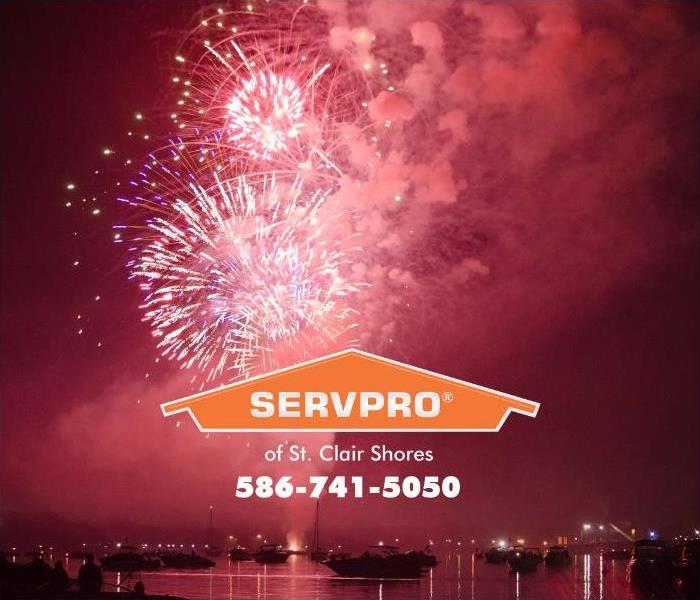 We respond to fire damage emergencies 24-hours a day in the St. Clair Shores area.
We respond to fire damage emergencies 24-hours a day in the St. Clair Shores area.
Holiday Fire Facts
According to the National Fire Protection Association (NFPA), the winter holiday season is one of the most active periods of the year for fire damage. Many of these fires occur during the weeks following the Christmas holiday. SERVPRO® of St. Clair Shores responds to many fire damage emergencies in the Villages of Grosse Pointe Shores and the Lake St. Clair area during this time of year. Our teams of highly trained fire and water restoration technicians are on call 24 hours a day and have the advanced training, experience, and equipment to safely mitigate fire damage of all kinds.
Here are some winter holiday fire facts from the NFPA:
- Ten percent of fireworks fires occur during the period from December 30 through January 3, with the peak on New Year's Day.
- U.S. fire departments responded to an estimated average of 770 home structure fires per year that began with decorations in 2014-2018. These fires caused $11 million in direct property damage.
- On average, 21 home candle fires were reported each day between 2014-2018.
Call Us Today!
When you need help with a fire damage emergency, SERVPRO® of St. Clair Shores is Here to Help. ® Call us today at 586-741-5050. We’ll clean and restore your property damage in The Villages of Grosse Pointe Shores, “Like it never even happened.”
SERVPRO® of St. Clair Shores is Independently Owned and Operated.
Electric Switch Plate Fire in The Villages of Grosse Pointe Shores?
12/7/2020 (Permalink)
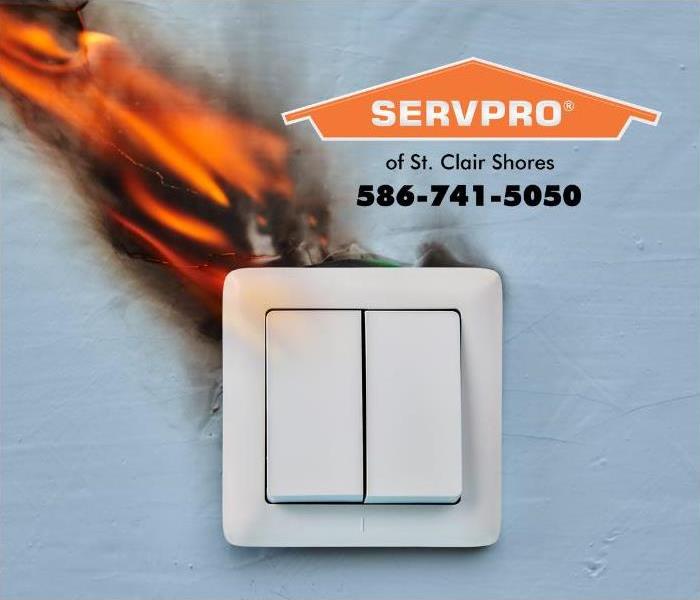 We restore fire, soot, and smoke damage in St. Clair Shores.
We restore fire, soot, and smoke damage in St. Clair Shores.
It could have been much worse.
I live in The Villages of Grosse Pointe Shores, and one day the switch plate in the hall felt warm, and I meant to tell my husband about it. But it slipped my mind, and the next day I smelled fire, and sure enough, that light switch was ablaze! Thankfully the St. Clair Shores Fire Department came out and extinguished the blaze. Although the fire damage was minimal, the smell of smoke permeated the entire house; I had soggy hall carpeting leftover from the firefighting efforts, a fire-damaged wall, and a switch plate that needed replacement.
I called SERVPRO® of St. Clair Shores, and they sent out a team of fire restoration technicians to mitigate the damage and conduct an assessment. They immediately extracted the water in the hallway and set up dehumidifiers and air blowers to get the rest of the excess moisture out of the walls and floors. They repaired the faulty switch plate, replaced the damaged drywall, and cleaned and deodorized everything compromised by the fire. Yay!
Call Us Today!
SERVPRO® of St. Clair Shores has a team of highly trained technicians on call 24 hours a day, ready to assist you whenever disaster strikes. Call us today at 586-741-5050. We will clean and restore your fire damage in The Villages of Grosse Pointe Shores, “Like it never even happened.”
SERVPRO® of St. Clair Shores is Independently Owned and Operated.
Thanksgiving Day Disaster in Eastpointe?
11/23/2020 (Permalink)
 We restore fire damage in St. Clair Shores.
We restore fire damage in St. Clair Shores.
Cooking Safety Tips
It’s that time of year again where families gather to celebrate Thanksgiving. There will be lots of people in the home, lots of food, and probably some afternoon naps as well! SERVPRO® of St. Clair Shores responds to many fire damage emergencies this time of year, and our team of highly trained technicians are on call 24 hours a day to assist Eastpointe residents around the clock.
Cooking fires are very common this time of year but by following a few safety tips, you can prevent fires from starting. Here are some of the tips from the National Fire Protection Association (NFPA), on things you can do to prevent a cooking fire on Thanksgiving Day:
- Stay in the kitchen when you are cooking on the stovetop so you can keep an eye on the food.
- Stay in the home when cooking your turkey and check on it frequently.
- Keep children away from the stove. The stove will be hot, and kids should stay three feet away.
- Make sure kids stay away from hot food and liquids. The steam or splash from vegetables, gravy, or coffee could cause serious burns.
Call Us Today!
When you have a fire damage emergency, SERVPRO® of St. Clair Shores is Here to Help.® Call us today at 586-741-5050. We will clean and restore your fire damage in Eastpointe, “Like it never even happened.”
SERVPRO® of St. Clair Shores is Independently Owned and Operated.
Smoke and Soot Damage in St. Clair Shores?
9/21/2020 (Permalink)
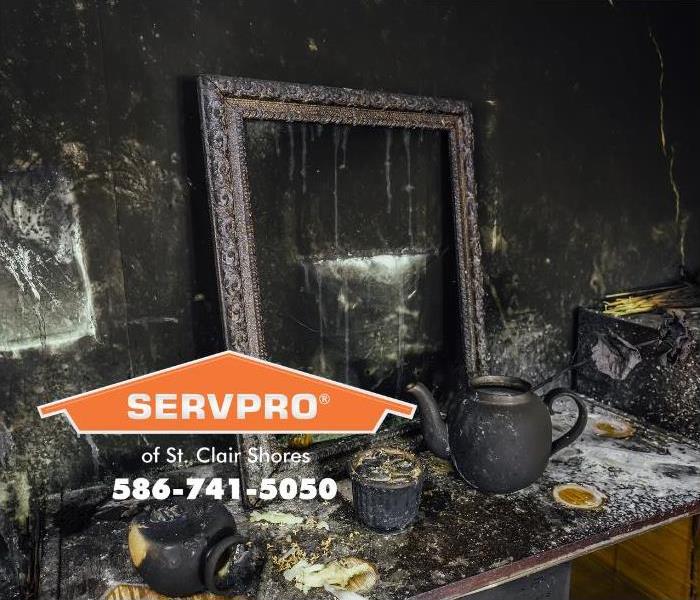 We are fire restoration experts in Roseville.
We are fire restoration experts in Roseville.
Home Fire Statistics
In a report published by the National Fire Protection Association over 25 percent of fires occurred in homes between 2013 and 2017. The leading causes of these fires from highest to lowest cause were:
- Cooking fires, 49 percent
- Heating fires, 14 percent
- Electrical distribution and lightning, 10 percent
- Intentional, 8 percent
- Smoking materials, 5 percent
SERVPRO® of St. Clair Shores has been serving the St. Clair Shores and Roseville communities for years and has restored all kinds of fire damage. Our technicians are required to undergo extensive initial and ongoing training and are certified by the Institute of Inspection, Cleaning and Restoration Certification. Each instance of fire damage may vary in scope and size, but we follow these steps for most fire restoration jobs:
Step 1: Emergency Contact
Step 2: Inspection and Fire Damage Assessment
Step 3: Immediate Board-Up and Roof-Tarp Service
Step 4: Water Removal and Drying (if water damage is present)
Step 5: Removal of Smoke and Soot from All Surfaces
Step 6: Cleaning and Sanitizing
Step 7: Restoration
Call Us Today
If your home or commercial business experiences fire damage, SERVPRO® of St. Clair Shores is Here to Help.® Call us today at 586-741-5050. We will clean and restore your fire damage in Roseville “Like it never even happened.”
SERVPRO® of St. Clair Shores is Independently Owned and Operated.
Thunderstorm Weather in Eastpointe?
8/10/2020 (Permalink)
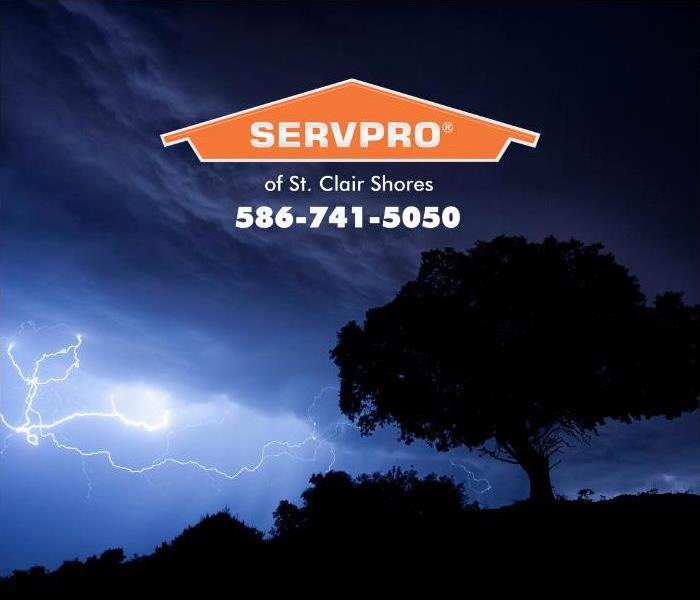 We are storm damage restoration specialists in St. Clair Shores.
We are storm damage restoration specialists in St. Clair Shores.
Thunderstorm Safety Tips
According to the National Oceanic and Atmospheric Administration, (NOAA), severe thunderstorms can produce hail that is an inch or larger or wind gusts over 58 miles per hour. In fact, severe thunderstorms have been known to cause hail the size of softballs or winds of over 100 miles per hour. They can also produce tornadoes, lightning strikes, and flash flooding. SERVPRO® of St. Clair Shores wants Eastpointe residents to know what to do before severe weather strikes and offers some safety tips from the NOAA:
- Check the forecast and listen to local news to see if you are at risk for severe weather
- Create a family communications plan and pick a safe room in your home on the lowest floor to gather with no windows
- Practice your emergency plan so everyone knows what to do and where to go when severe thunderstorm warnings are issued
- Have an emergency plan in place for your pets
- Prepare your home by keeping branches trimmed near your house and secure loose objects
Call Us Today
If you have a storm damage emergency, SERVPRO® of St. Clair Shores is available 24 hours a day and has a team of highly trained technicians ready to respond to your call. Call us today at 586-741-5050. We will clean and restore your storm damage in Eastpointe “Like it never even happened.”
SERVPRO® of St. Clair Shores is Independently Owned and Operated.
Lightning Strike Season in St. Clair Shores
7/30/2020 (Permalink)
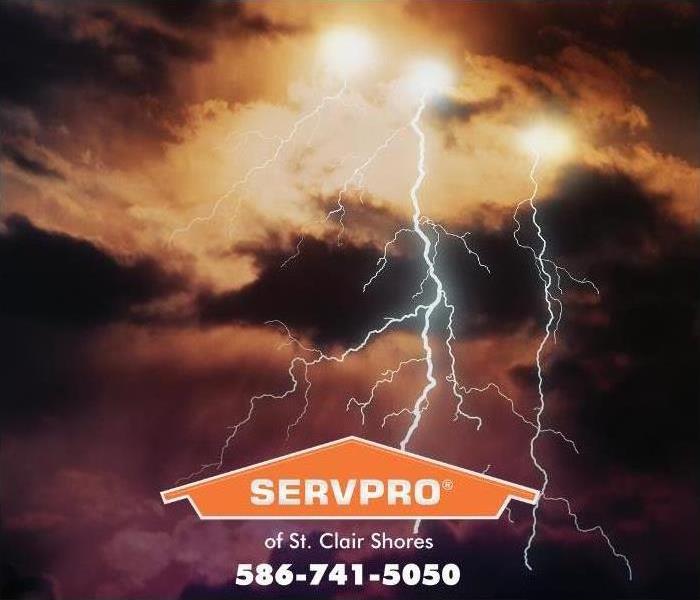 Fire Damage in Roseville.
Fire Damage in Roseville.
Did you know that the last week of June marks Lightning Safety Awareness Week? This event is organized annually by the National Oceanic and Atmospheric Administration, (NOAA), and other partners and covers many topics related to lightning. Summer sees the highest instances of lightning strikes each year, and between 2009 and 2018 Michigan averaged 220,635 cloud-to-ground lightning flashes. SERVPRO® of St. Clair Shores wants to assure the Roseville community that we have years of experience mitigating fire damage and are here for you in the event of a fire damage emergency. Here are some interesting lightning facts from the NOAA:
- There are three main ways lightning enters homes and buildings:
- A direct strike, through wires or pipes that extend outside the structure and into the ground
- Once in a structure, the lightning can travel through the electrical, phone, plumbing, and radio or television reception systems
- Lightning can also travel through any metal wires or bars in concrete walls or flooring
- Lightning detection systems in the United States monitor an average of 25 million strokes of lightning from clouds to the ground during some 100,000 thunderstorms every year
Call Us Today
If you have a fire damage emergency, SERVPRO® of St. Clair Shores is available 24 hours a day and can be onsite within four hours of your call to begin cleanup and restoration. Call us today at 586-741-5050. We will clean and restore your fire damage in Roseville “Like it never even happened.”
SERVPRO® of St. Clair Shores is Independently Owned and Operated.
We are storm damage restoration specialists in St. Clair Shores.
7/27/2020 (Permalink)
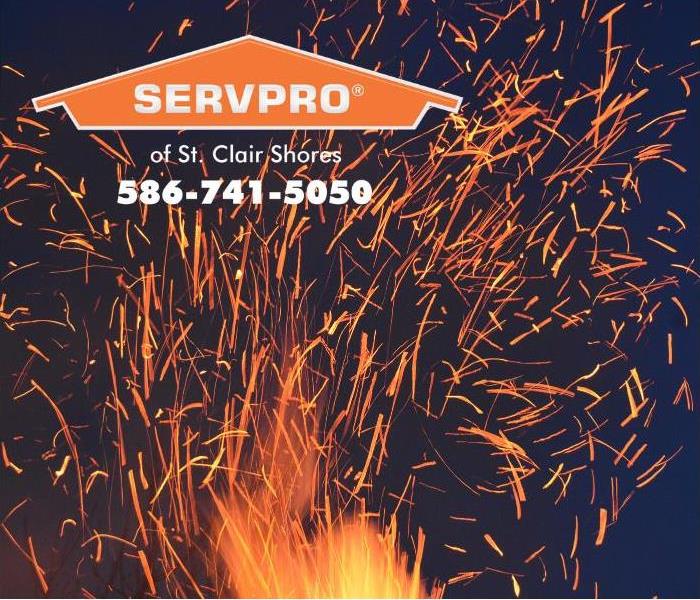 We are storm damage restoration specialists in St. Clair Shores.
We are storm damage restoration specialists in St. Clair Shores.
Firebrands
Did you know that burning embers or firebrands can travel anywhere from one-quarter of a mile up to one mile in the wind? Fire embers result from fireplaces or backyard fire pits, wildfires or structure fires, and even from fireworks in some cases. According to a report from the National Fire Protection Association, (NFPA), firebrands are thought to one of the main sources of fire ignition in wildland-urban interface areas. They can land on structures and ignite vegetation and other combustibles. SERVPRO® of St. Clair Shores wants residents and business owners of Warren to rest assured that we are fire damage restoration specialists and have highly trained technicians ready to respond to any size fire damage emergency. Here are some prevention safety tips from the NFPA:
- Remove flammable vegetation from the roof, roof gutters, and on and under decking
- Screen areas below decks and porches with one-eighth wire mesh to prevent materials from accumulating
- Cover exterior vents with one-eighth wire mesh to prevent sparks from entering your home
- Enclose eves and cover ends of tiles with bird stops to prevent ember entry
Call Us Today
If you have a fire damage emergency, SERVPRO® of St. Clair Shores is available 24 hours a day to assist you. Call us today at 586-741-5050. We will clean and restore your fire damage in Warren “Like it never even happened.”
SERVPRO® of St. Clair Shores is Independently Owned and Operated.
SERVPRO of St. Clair Shores Restores Kitchen-fire Disasters in Roseville
6/30/2020 (Permalink)
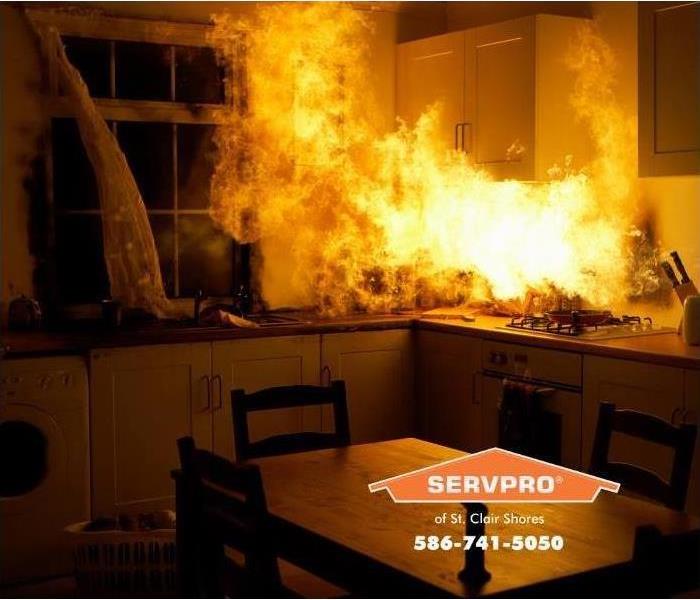 If trouble cooks up in Roseville, call SERVPRO of St. Clair Shores
If trouble cooks up in Roseville, call SERVPRO of St. Clair Shores
SERVPRO® of St. Clair Shores knows how easy it is to slip up in the kitchen. A distracted person can pour salt instead of sugar in the cookies, or forget to turn a burner on low. In the first case, the treat is ruined. In the second, there could be a kitchen fire in Roseville.
Whether the fire left soot on the ceiling, spread different types of damage throughout the house, or left a lingering odor of burned fries, SERVPRO of St. Clair Shores has everything necessary to bring the house back to preloss condition.
Once you know everyone is safe, call SERVPRO of St. Clair Shores at (586) 741-5050. Call us any time on any day; there is always someone available to take the call. Residential and commercial customers can also call with questions about remediating soot, smoke, or other damage, or can ask questions through the website.
We are Faster to any size disaster so we can assess damage and start to control and remediate it right away.
If the fire was severe, SERVPRO of St. Clair Shores will board up broken windows and provide a tarp for the roof, keeping the inside safe from further damage from the environment. If firefighters sprayed water, SERVPRO of St. Clair Shores dries the area with an array of vacuums, pumps, dehumidifiers, and dryers.
Kitchen fires can cause significant damage even without requiring the fire department. SERVPRO of St. Clair Shores removes smoke and soot from all surfaces, and repairs any damage they caused. Technicians have the training and equipment to remove even stubborn, lingering odors.
Businesses and homes in the Roseville area may not be able to avoid all kitchen fires, but SERVPRO of St. Clair Shores will work to restore all property to its pre-fire condition.
SERVPRO of St. Clair Shores is independently owned and operated.
Link:
https://www.SERVPROstclairshoresmi.com/
SERVPRO of St. Clair Shores Fights Smoke and Soot in Roseville.
5/14/2020 (Permalink)
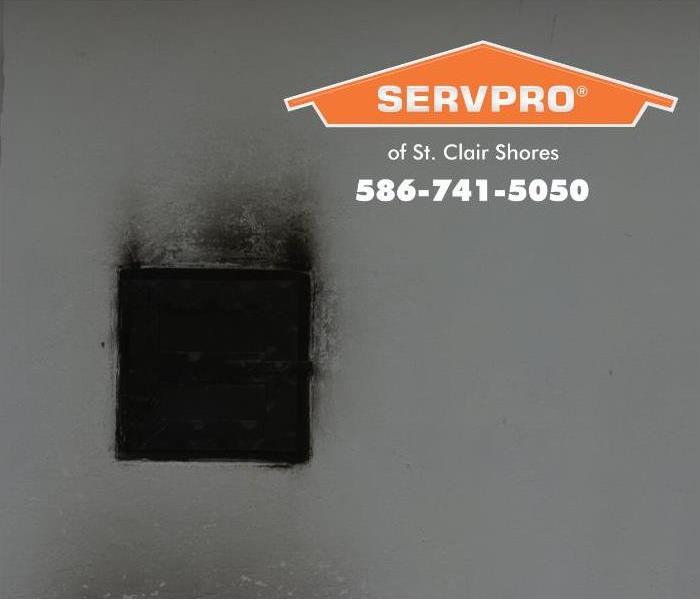 Soot happens. SERVPRO of St. Clair Shores Cleans it Up.
Soot happens. SERVPRO of St. Clair Shores Cleans it Up.
If a fire hits a home or business in Roseville, first make sure that everyone is safe. SERVPRO® of St. Clair Shores joins the Red Cross in urging people not to go into the building until the firefighters say that it is safe.
As soon as is practical, call SERVPRO of St. Clair Shores at (586) 741-5050 or reach out online. To minimize the damage, we are Faster to any size disaster; call any time, day or night (even on holidays) and trained technicians will be on-site within four hours. Our technicians have the training to handle fire damage and associated water damage.
Two products of fire, smoke and soot, continue to cause damage well after the fire is extinguished. Smoke damage may end up on ceilings, behind window coverings, or in enclosed spaces.
Soot is the fine particles (black or dark brown) left behind by incomplete burning. It may be oily or dry, and may be so well hidden that it doesn’t become noticeable until the damage is done. Soot can corrode even durable materials like steel and concrete.
SERVPRO of St. Clair Shores knows how to look for smoke and soot before they cause further damage. It has specialized equipment to remove stains and odors to remove stains and odors that regular cleaners can’t.
Whatever happens in Roseville, SERVPRO of St. Clair Shores is Here to Help®
SERVPRO of St. Clair Shores is independently owned and operated.
Links:
https://www.SERVPROstclairshoresmi.com/
https://www.redcross.org/get-help/how-to-prepare-for-emergencies/types-of-emergencies/fire/home-fire-recovery.html
We Clean and Restore Keepsakes and Precious Heirlooms Damaged by Fire in Warren
4/7/2020 (Permalink)
 We will restore as many of your irreplaceable items as we can after a fire.
We will restore as many of your irreplaceable items as we can after a fire.
One of the most devastating, life changing events a family can experience is a household fire. The fire trucks are gone, leaving you with smoke, soot and water damage from the aftermath of the firefighting efforts. Furniture can be replaced but family heirlooms and photos can never be replaced. That’s why SERVPRO® of St. Clair Shores wants the residents of Warren to know that we approach all fire damage cleanup and restoration jobs with a “restore first” mentality that helps lower costs and return you home or business to a preloss condition as soon as possible. When it comes to cleaning and restoring your valuable documents and photographs, we take extreme caution to prevent the fire damage from destroying the document. Although some documents may not be able to be restored to pre-fire condition, we will try to save what we can to minimize additional damage. Here are the five options we may use to restore your documents depending on the level of damage:
- Air Drying
- Dehumidification
- Freezer Drying
- Vacuum Freeze Drying
- Vacuum Thermal Drying
We hope you never experience a fire damage emergency, but if you do SERVPRO® of St. Clair Shores wants business owners and residents of Warren to know that our highly trained professionals are available 24 hours a day to respond. Call us today at 586-741-5050 to find out about our fire cleanup and restoration services. We’ll take care of your fire damage “Like it never even happened.”
SERVPRO® of St. Clair Shores is Independently Owned and Operated.
Fire Safety and Prevention Tips for Eastpointe
3/24/2020 (Permalink)
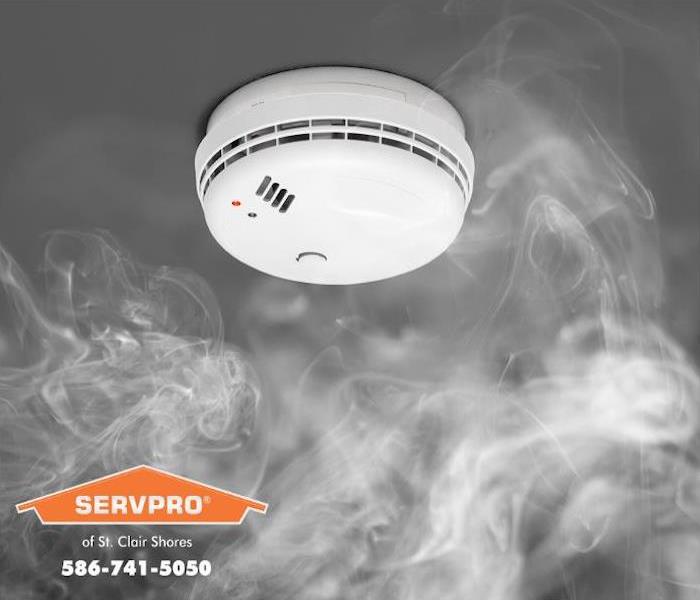 SERVPRO® technicians will respond to your fire damage emergency in St. Clair Shores 24 hours a day.
SERVPRO® technicians will respond to your fire damage emergency in St. Clair Shores 24 hours a day.
According to the National Fire Protection Association (NFPA), smoke alarms should be a key part of the home fire escape plan. A properly working smoke alarm provides early warning so you can escape quickly in the event of a fire. SERVPRO® of St. Clair Shores want commercial business and homeowners of Eastpointe to know that our specialty trained technicians can quickly respond to any fire damage emergency and immediately begin the cleanup and restoration process. Here are some safety messages about smoke alarms from the NFPA:
- Install smoke alarms in every sleeping room and outside each separate sleeping area. Install alarms on every level of the home and in the basement.
- It is best to use interconnected smoke alarms. When one smoke alarm sounds, they all sound.
- Test all smoke alarms at least once a month. Press the test button to be sure the alarm is working.
- Mount smoke alarms on the ceiling. Keep smoke alarms away from the kitchen to reduce false alarms. They should be at least ten feet from the stove.
- Replace all smoke alarms when they are ten years old.
SERVPRO® of St. Clair Shores wants business owners in Eastpointe to know that our highly trained professionals are available 24 hours a day to respond to any size fire damage emergency. Call us today at 586-741-5050 to find out about our fire cleanup and restoration services. We’ll take care of your fire damage “Like it never even happened.”
SERVPRO® of St. Clair Shores is Independently Owned and Operated.
Electric Blankets Can be a Fire Hazard
12/17/2019 (Permalink)
Electric Blankets Can be a Fire Hazard
In chilly weather electric blankets can keep you warm and cozy. But they must be used properly to avoid a fire hazard. The following tips will help keep you safe.
Check the blanket’s product label
Make sure your electric blanket has a UL label. That means it has been certified for safety.
Don’t use an old blanket
Most electric blanket fires are caused by blankets more than 10 years old.
Don’t lay on top of the blanket
The blanket’s coils could be damaged by too much weight.
Keep pets off
Dogs or cats could damage the wiring.
No electric cords under the mattress
Electric cords can heat up during use. Friction and excess heat under your mattress can be very dangerous.
Be safe on these cold winter nights! Keep our number handy in case of an emergency. SERVPRO of St. Clair Shores (586) 741-5050.
Be Safe with Your Christmas Tree
12/10/2019 (Permalink)
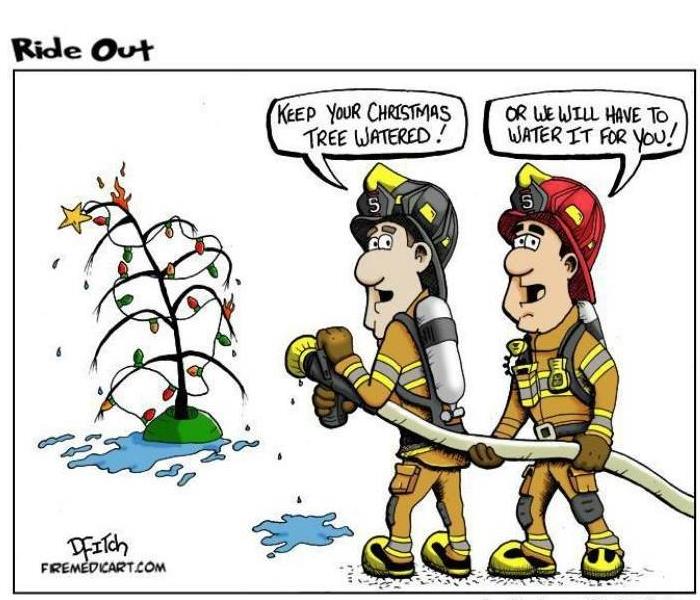 Be Safe with Your Christmas Tree
Be Safe with Your Christmas Tree
Christmas Tree Safety Tips
While you may be in the holiday spirit in Eastpointe, Christmas trees and decorations can be a huge fire hazard. Property damage costs due to Christmas tree fires are $13 million dollars annually.
- Choose a tree with fresh green needles. As soon as you get it home, cut 2 inches off the base before you put it in the stand.
- Make sure the tree is at least 3 feet away from any heat source – fireplace, heaters, radiators, heat vents, candles.
- Check water level daily. A tree needs fresh water added every day.
- Check light strings. Any strings of lights that have any frayed or cracked wires should be replaced.
- Do not overload your outlets. Use surge protector power strips to avoid an overload.
- Always turn off the tree lights when leaving your home and before you go to bed.
- Dispose of your tree right after Christmas. A dried-out tree increases the fire danger.
Be safe and enjoy a wonderful holiday!
Remember SERVPRO of St. Clair Shores is always Here to Help @ 586-741-5050. Save our phone number in your phone so that you can be Hero Ready if disaster strikes your home or business.
Avoid House Fires This Thanksgiving in St Clair Shores, MI
11/26/2019 (Permalink)
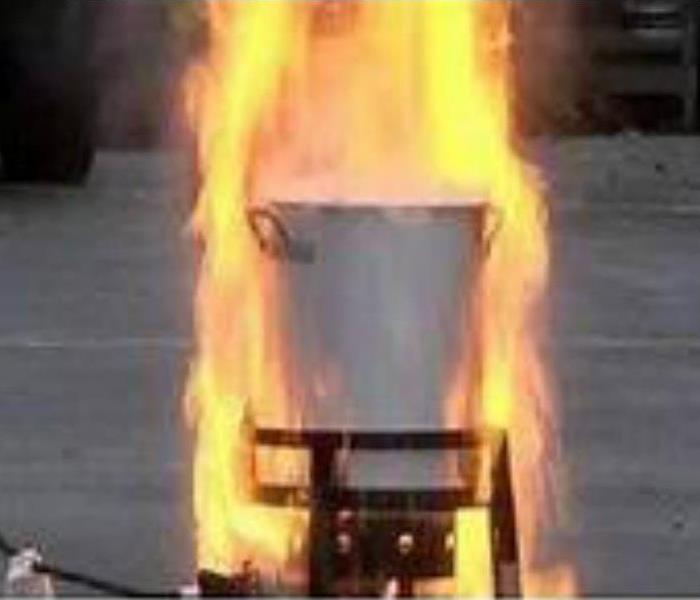 Avoid House Fires This Thanksgiving in St Clair Shores, MI
Avoid House Fires This Thanksgiving in St Clair Shores, MI
Deep Fryer Safety
Once again it is time to prepare for Thanksgiving. If you are planning to deep fry your turkey, you must take proper precautions to ensure the safety of your home and loved ones. The oil in a deep fryer can reach temperatures of over 400°. Extreme safety measures should be taken to avoid starting a fire or severely burning someone.
Select a safe location outdoors for deep frying your turkey – far enough away from your home. Cooking oil is highly flammable. Make sure the cooking oil does not come into contact with flames. Also, water must not come into contact with hot cooking oil. It will steam and splatter possibly causing severe burns or start a fire.
Follow your deep fryer’s manufacturer’s directions closely and have a Happy Thanksgiving!
Keep our number handy in case of an emergency. We are available 24/7. Call SERVPRO of St. Clair Shores (586) 741-5050
Fire Damage in Eastpointe, MI
11/16/2019 (Permalink)
Fire Damage Restoration Process
Emergency Contact
The restoration process begins when you call us. Our representative will ask questions regarding the fire damage event that will help us respond immediately with the appropriate equipment and resources.
Inspection and Fire Damage Assessment
We carefully inspect and test adjoining rooms of your property to determine the extent of the fire, smoke, and soot damage. This step is crucial to developing a plan of action.
Immediate Board-Up and Roof-Tarp Service
Fire damage can often compromise windows, walls, and roofs. To maintain security and to protect against further damage, we can board up missing windows and walls and place tarps on damaged roofs.
Removal of Smoke and Soot from All Surfaces
We use specialized equipment and techniques to remove smoke and soot from ceilings, walls, and other surfaces.
Cleaning and Sanitizing
We clean, sanitize, and disinfect all of the restorable items and structures that were damaged by the fire. We use a variety of cleaning techniques to restore your belongings to pre-fire condition. We’re also trained to remove odors using industrial air scrubbers and fogging equipment.
Have Questions About Fire, Smoke, or Soot Damage? Call Today – (586) 741-5050
Fire Safety for Kids
4/12/2019 (Permalink)
Keep children safe from danger!
Have and practice an escape plan
It is important to have a plan when there are children in the home. Children sometimes need help getting out of the house, and they may not know how to escape or what to do unless an adult shows them.
Have a plan for young children who cannot get outside by themselves
You will need to wake babies and very young children and help them get out. In your plan, talk about who will help each child get out safely.
Know 2 ways out of every room
It is important to find 2 ways out of every room in the house in case one exit is blocked or dangerous to use.
Practice your fire escape plan at least twice a year
If children are old enough, help them practice going to your outside meeting place. Teach them to never go back inside a building that is on fire.
Keep our number handy in case of an emergency. We are available 24/7. Call SERVPRO of St. Clair Shores (586) 741-5050
Fire Safety Tips
4/10/2019 (Permalink)
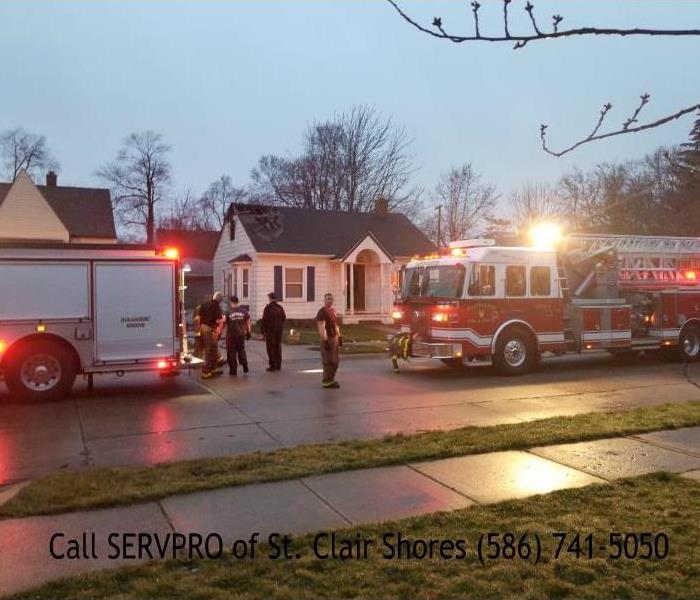 Fire Safety in Eastpointe, MI
Fire Safety in Eastpointe, MI
- Stay in the kitchen when you are using the stove. If you leave the room, turn off the stove.
- Keep anything that can burn at least three feet away from space heaters. Turn off heaters when you leave the room or go to sleep.
- Ask smokers to smoke outside. Have safe ashtrays for smokers and don’t dump the ashtray into a trash can until any embers are completely out.
- Keep matches and lighters safely out of the reach of children.
- Check electrical cords for any damage and replace them if necessary.
- Keep candles several feet away from anything that can burn. Blow candles out when you leave the room or go to sleep.
- Make a home fire escape plan and practice it at least twice a year.
- Test smoke alarms at least once a month and replace batteries at least once a year. Replace any smoke alarm that is more than 10 years old.
- If you are building or remodeling your home, install residential fire sprinklers. Sprinklers can contain and may even extinguish a fire in less time than it would take the fire department to arrive.
Remember SERVPRO of St. Clair Shores is always Here to Help @ 586-741-5050. Save our phone number in your phone so that you can be Hero Ready if disaster strikes your home or business
Space Heater Safety in Roseville, MI
12/18/2018 (Permalink)
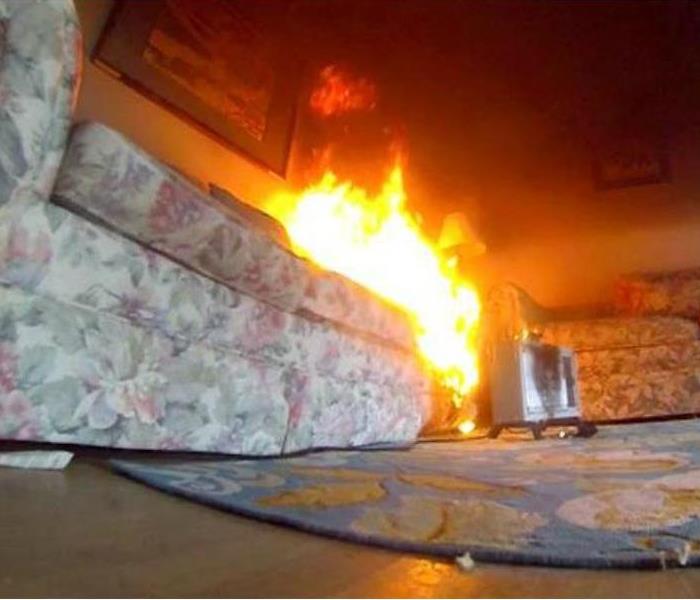 Space heater fire
Space heater fire
Space Heater Safety
About 25,000 house fires and 300 deaths are attributed to space heaters each year, mostly caused when a heater is placed too close to curtains, bedding, or upholstered furniture, according to the Consumer Product Safety Commission. In addition, 6,000 people end up in emergency rooms with burns from touching a heater’s hot surface.
Half of all home heating fires happen during the months of December, January, and February.
Safety Tips
- Place the heater on a hard, level, and nonflammable surface. They are intended to sit on the floor, not on a table.
- Establish a 3-foot kid- and pet-free zone around the heater, and never put a space heater in a child's room.
- Keep the space heater at least 3 feet away from combustible materials, such as furniture, bedding, and curtains.
- Don't use a heater in a workshop or garage near paint, gas cans, or matches.
- Turn it off when you leave the room or go to bed.
- Unplug the heater when it's not in use by pulling the plug straight from the outlet. Check the cord for damage periodically, and don’t use it if it’s frayed or worn.
- Don’t plug another electrical device or an extension cord into the same outlet as a heater—that can cause overheating.
- Install working smoke alarms on every level of your home, and in every bedroom, and test them monthly.
We are here for you 24/7. In case of an emergency call SERVPRO of St. Clair Shores (586) 741-5050.
The Dangers of Soot in your Eastpointe Home
12/12/2018 (Permalink)
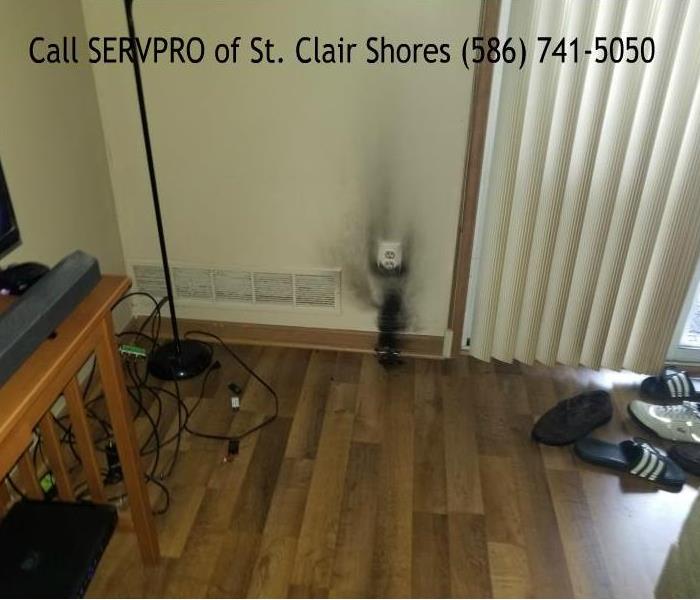 Soot is Dangerous!
Soot is Dangerous!
Soot From Even Small Fires Is Dangerous
Often people think flames are the most harmful part of fires, but this isn’t always the case. Smoke and soot can cause even more damage to your health. Even though soot can make you think of Mary Poppins it can be quite damaging to your health. Breathing in soot can cause respiratory distress and other medical issues. To avoid long-lasting damage, soot must be cleaned up as soon as possible.
SERVPRO of St. Clair Shores has the equipment and knowledge to fully rid your home of soot residue. We use specialized equipment and techniques to remove smoke and soot from ceilings, walls, and other surfaces We clean, sanitize, and disinfect all of the restorable items and structures that were damaged by the fire. We use a variety of cleaning techniques to restore your belongings to pre-fire condition. We’re also trained to remove odors using industrial air scrubbers and fogging equipment.
At SERVPRO of St. Clair Shores we have on call crews that are available 24/7 for your emergency needs. If disaster strikes, strike back by calling SERVPRO of St. Clair Shores, your Cleanup and Restoration Specialist at (586) 741-5050.
Be Safe With Your Holiday Decorations!
11/26/2018 (Permalink)
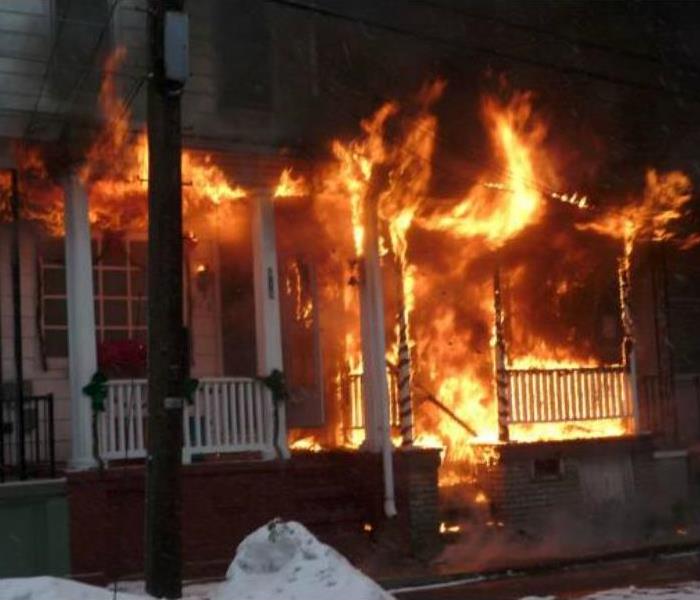 Holiday Lighting Fire
Holiday Lighting Fire
Holiday Lights and Electrical Decorations Safety Tips
by ESFi.org
Now that Thanksgiving is over, many of us will be decorating our homes for Christmas. While decorative lights and other electrical decorations add to the magic of the season, they can increase the risks of fire and electrical injuries if not used safely.
- Always purchase electrical decorations and lights from reputable retailers.
- Use lights approved for safe use by a nationally recognized testing laboratory.
- Never connect more than three strands of incandescent lights together.
- Consider purchasing LED lights, which use less energy and run cooler than traditional incandescent lights.
- Before decorating, determine how many outlets are available and where they are located. Plan your displays accordingly.
- Carefully inspect each electrical decoration. Cracked or damaged sockets, loose or bare wires, and loose connections may cause a serious shock or start a fire.
- Follow the manufacturer’s use and care instructions that accompany electrical decorations.
- Avoid overloading electrical outlets with too many decorations or electrical devices. They can overheat and cause a fire.
- Make sure that cords are not pinched in doors, windows, or under heavy furniture, which could damage the cord’s insulation.
- Do not mount or support light strings in a way that might damage the cord’s insulation.
- Always unplug electrical decorations before replacing bulbs or fuses.
- Turn off all indoor and outdoor electrical decorations before leaving home or going to sleep
Remember SERVPRO of St. Clair Shores is always Here to Help @ 586-741-5050. Save our phone number in your phone so that you can be Hero Ready if disaster strikes your home or business.
Thanksgiving Safety
11/19/2018 (Permalink)
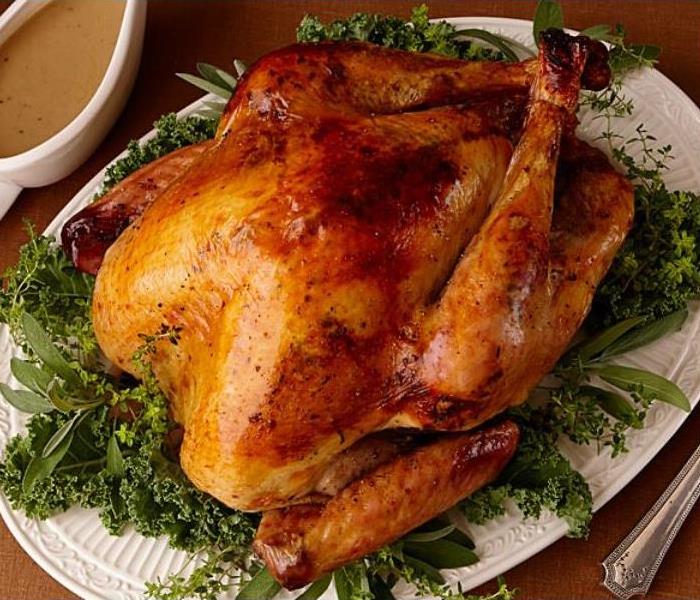 Happy Thanksgiving!!
Happy Thanksgiving!!
Be safe this Thanksgiving. Cooking is the leading cause of fires in the home and of fire injuries, so please follow these safety tips:
- Make sure your oven is empty before turning it on.
- Wear short or tight-fitting sleeves when cooking.
- Turn pot handles inward over the stove.
- Remember to “stand by your pan” and stay in the kitchen when boiling, frying or broiling.
- Use a timer when baking or roasting and never leave the house with the oven running.
- The best way to respond to a stovetop fire is to “put a lid on it” and turn off the heat.
- The best way to respond to an oven or broiler fire is to keep the doors closed and turn off the heat.
- If the fire is not quickly snuffed out, leave the house and call 911 from outside.
Remember SERVPRO of St. Clair Shores is always Here to Help @ 586-741-5050. Save our phone number in your phone so that you can be Hero Ready if disaster strikes your home or business
Kitchen Safety: How to Put Out a Grease Fire
4/13/2018 (Permalink)
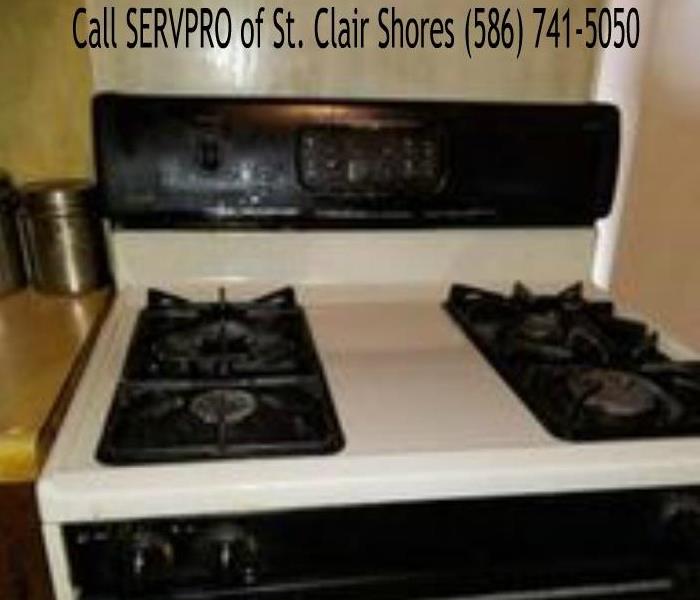 Grease Fire in Detroit, MI
Grease Fire in Detroit, MI
Kitchen Safety: How to Put Out a Grease Fire
by thekitchn.com
Cooking doesn't normally present a lot of danger. You might nick your finger while chopping vegetables or manage to burn a pan of roasting potatoes, but in terms of actual danger to ourselves or our homes, not so much. Except for grease fires. Do you know what to do if your cooking oil catches fire?
A grease fire happens when your cooking oil becomes too hot. When heating, oils first start to boil, then they'll start smoking, and then they'll catch on fire. Most vegetable oils have a smoking point around 450°F, while animal fats like lard or goose fat will start smoking around 375°F.
The very best safety is prevention. Whenever you're heating oil for pan-frying or deep-fat frying, stay in the kitchen. Use a heavy pot with a lid and clip a thermometer to the side so you know the temperature of the oil.
Keep an eye on the oil as it's heating. If you see wisps of smoke or smell something acrid, immediately turn down the heat or remove the pot from the burner completely. The oil won't immediately catch fire once it starts smoking, but smoke is a danger sign that it's well on its way to getting there.
If the worst happens and your oil does catch on fire, do the following:
- Turn the Heat Off - Don't try to move the pot. You might accidentally splash yourself or your kitchen with burning oil. And that would be bad.
- Cover the Pot with a Metal Lid - Fire cannot exist in the absence of oxygen. With the lid on (and the heat off), the fire should quickly consume all the oxygen and put itself out. Use a metal lid since glass will shatter.
- Pour on Baking Soda - Baking soda will extinguish grease fires, but only if they're small. It takes a lot of baking soda to do the job.
- Spray the Pot with a Class B Dry Chemical Fire Extinguisher - This is your last resort, as fire extinguishers will contaminate your kitchen. Still, it's better than the alternative if the fire is getting out of control.
- Get Out and Call 911 - If the fire does break out of control, don't try to be a hero. Get out and find a phone to call 911.
Whatever you do, DO NOT do the following:
- Do Not Use Water - Pouring water can cause the oil to splash and spread the fire. The vaporizing water can also carry grease particles in it, also spreading the fire.
- Do Not Move the Pot or Carry It Outside - Throwing the pot outside might seem logical in the frenzy of the moment. But trying to move the pot might splash burning oil on you, your home, and anything outside.
- Do Not Throw Any Other Baking Product On the Fire - Flour might look like baking soda, but it won't react the same. Only baking soda can help put out a grease fire.
Remember SERVPRO of St. Clair Shores is always Here to Help @ 586-741-5050. Save our phone number in your phone so that you can be Hero Ready if disaster strikes your home or business
Fire Safety Tips for Using Microwave Ovens
4/11/2018 (Permalink)
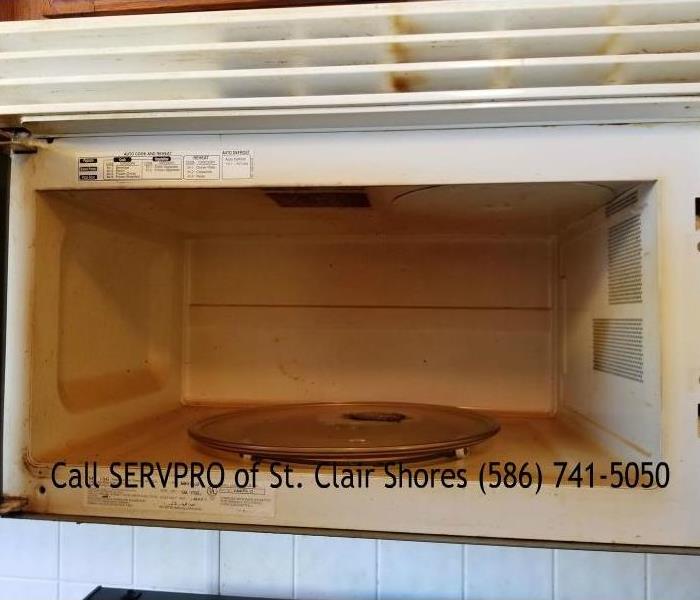 Fire in Microwave in Warren, MI
Fire in Microwave in Warren, MI
Fire Safety Tips for Using Microwave Ovens
By National Institutes of Health
Microwave ovens are used every day, both at home and in the workplace. When used properly, the microwave is safe and convenient for heating a variety of foods in a short time. When you become complacent about microwave safety, however, your appliance can cause painful burns and become a potential fire hazard.
The following tips will help make the use of your microwave oven a safe method of food preparation.
- Before using a new microwave oven, always read the manufacturers operating procedures and safety precautions first.
- To minimize risk of fire, never attempt to heat articles that are not approved for use in microwave ovens.
- Remove food from packaging before defrosting in a microwave oven. Do not use plastic storage containers, foam trays and plastic wraps in microwave ovens because they are not heat stable at high temperatures. Melting or warping can occur which may cause harmful chemicals to migrate into the food.
- Never use recycled paper products in microwave ovens unless they are specifically approved for microwave use. Some recycled products including paper towels and even waxed paper may contain minute metal flecks. When a microwave oven is operating, the interaction between microwaves and the metal can cause sparks and even flames.
- Do not leave a microwave oven unattended when microwaving popcorn, since the heat buildup can cause fires. Heat the popcorn according to the written instructions but begin with the minimum time specified because some microwaves can scorch popcorn in as little as two minutes.
- If you have a fire in your microwave oven, turn it off immediately. This will stop the fan so it won’t feed oxygen to the flames. Then simply wait until the fire suffocates. Never open the oven door until you are absolutely certain that the fire is out. If in doubt, call the fire department.
- Use only microwave-safe utensils. The instructions that come with each microwave oven specify what kinds of containers are safe to use and how to test the suitability of materials before use.
- Always use oven mitts to remove items from the microwave oven after cooking. Be careful when removing a wrapping or covering from a hot item. Hot steam escaping from the container, as the covering is lifted, can cause painful burns.
- Be careful when heating liquids in the microwave oven. Since the containers may only feel warm, rather than hot, they are sometimes handled with less caution. This can easily result in the splashing or spilling of a scalding liquid.
- Before allowing children to operate a microwave oven, make sure that they are instructed in the proper use, and that they are tall enough to reach the oven and handle foods safely. Over 500f those burned using microwave ovens are under 5 years of age.
- If you have any questions concerning microwave oven fire safety and burn prevention, please contact the Division of the Fire Marshal, Office of Research Services, at 301-496-0487.
- At SERVPRO of St. Clair Shores we have on call crews that are available 24/7 for your emergency needs. If disaster strikes, strike back by calling SERVPRO of St. Clair Shores. Your Cleanup and Restoration Specialist at (586) 741-5050.
Furnace and Boiler Puffbacks in Macomb County
1/8/2018 (Permalink)
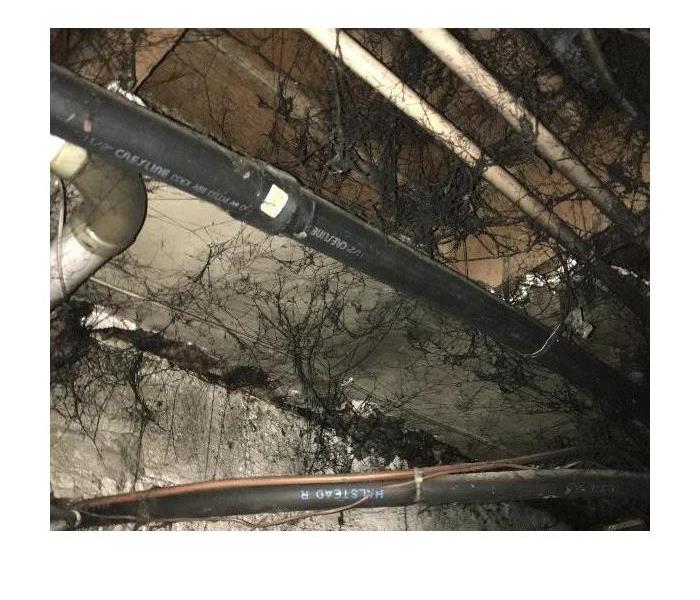 Furnace and Boiler Puffback in Macomb County.
Furnace and Boiler Puffback in Macomb County.
The following article on “Furnace and Boiler Puffbacks”, written by Matt Livingston of HVAC Investigators, originally appeared in the Technical Notebook Column of Claims Magazine and was also published on Property Casualty 360.
As the weather gets colder and homeowners start up their heating systems for the first time in months, insurance carriers see an influx of claims for the failure of furnaces and boilers. One frequent issue that can be both messy and potentially dangerous is a phenomenon known as a “puffback.”
A puffback is a release of smoke or soot that occurs when a boiler or furnace misfires. It is important that adjusters and insurance carriers understand what a puffback is and what causes one to occur. Not only are they expensive (and occasionally dangerous), but they are often caused by a non-covered cause of loss.
What is a puffback?
A puffback occurs when a furnace or boiler does not ignite properly and allows oil or gas vapors to build up within the ignition/combustion chamber. When it does finally ignite, the excess fuel in the chamber causes this puffback scenario. The result can be anywhere from a small amount of smoke to a minor explosion, depending on how much fuel has accumulated in the chamber.
Puffbacks can occur in both oil and gas furnaces and boilers, but are much more common in oil-fired equipment. Oil furnaces and boilers require more maintenance than their gas-fired counterparts, presenting more opportunities for the ignition process to be hindered if the system is not properly maintained. Additionally, oil is less likely than gas to dissipate, leading to larger average explosions. Forced air, oil-fired heating system puffbacks tend to be the messiest, as oil creates more soot than gas, and the ductwork for the forced air system can spread that soot to every room in the home.
What causes a puffback?
Regardless of fuel type, furnaces and boilers should have annual system maintenance. Puffbacks generally occur due to a lack of this routine maintenance or because of age-related wear and tear. Specific causes can include:
- A leak at or near the combustion chamber can allow the fuel to build up in the combustion chamber and can cause a puffback to occur upon ignition.
- A clogged exhaust or chimney that is obstructed by dirt, dust, fuel residue, rust or corrosion could prevent combustion gases from properly venting out of the furnace. This can cause an internal pressure irregularity that can eventually lead to a puffback, due to an incorrect ratio of fuel to air.
- A cracked heat exchanger (similar to a clogged exhaust or chimney) prevents the combustion gases from properly venting out the furnace and results in an internal pressure irregularity that can cause a flame roll out. The resulting improper combustion process allows excess fuel to enter the ignition chamber and potentially lead to a puffback when ignition occurs.
- Manually resetting the system too often when it fails to ignite may cause unburned fuel to accumulate in the chamber and can lead to a puffback once ignition finally occurs.
- A damaged oil fuel nozzle, such as one that is clogged or cracked, may cause the oil to spray unevenly and result in insufficient fuel for the burners to ignite. The nozzle will continue to attempt to spray and allow excess oil to enter the burner over time. When the oil eventually ignites, a puffback can occur.
- A clogged burner full of dirt, dust, fuel residue, rust or corrosion can cause a misfire and allow excess fuel to build up in the combustion chamber. This may eventually lead to a puffback when the fuel at last ignites.
How do you diagnose the cause of a puffback?
Following a puffback event, it is often not recommended to turn the system on and perform full diagnostic testing, as this can be both dangerous and messy. There are, however, other ways for HVAC professionals to detect if a puffback has occurred and what the chief contributor to the problem might have been. These diagnostic steps include:
- Check for fuel leaks in and around the combustion chamber. Visible signs of leaking oil are a strong sign that a puffback has occurred, and that the leak and/or air in the oil line were the primary culprits.
- Check the exhaust/flue for clogs. Blockage in the heating system exhaust could impact the fuel-to-air ratio and prevent fumes from safely venting. If observed during the post-puffback investigation, this blockage is a likely contributor to the problem.
- Perform a “candle check” of the heat exchanger. Holding a lit flame near the heat exchanger while the blower is on will provide a visual indication that a crack is present, and will thus provide a likely puffback cause.
- Inspect the oil nozzle and burner assembly for damage, checking to see if this condition caused the puffback. However, depending on the severity of the puffback incident, the fuel nozzle and burners themselves may have been damaged, limiting the ability to definitively diagnose the puffback cause using this method.
You should also follow up with a mitigation company that can test throughout your house to verify the extent of the damage and if an insurance claim needs to be filed. You can set up your free appointment with our professionals today at SERVPRO of St. Clair Shores at (586) 741-5050.
Space Heater Fire Damage in St. Clair Shores
1/8/2018 (Permalink)
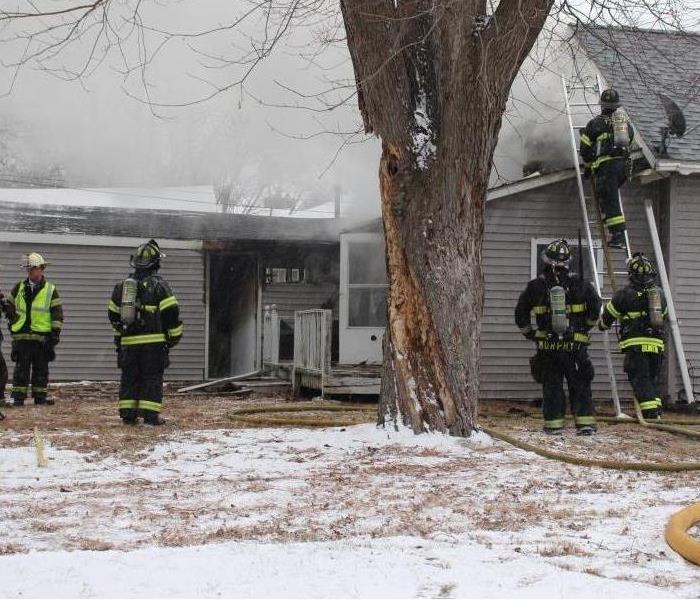 Fire damage in St. Clair Shores Cleanup
Fire damage in St. Clair Shores Cleanup
Space Heaters And Fire Damage
Most of the U.S. is experiencing much colder than normal temperatures right now. In Michigan, we are gearing up for outdoor winter activities, like ice skating, skiing, sledding and snow mobile rides with all of the snow we keep getting. To stay snuggly warm indoors, many homes will be investing in space heaters. Did you know that space heaters, if not properly used, is the leading cause of residential and commercial fires? The National Fire Protection Association reports that one-third of all house fires happen during the cold months between December and February.
Fires can occur by space heaters without the proper safety features. The devastating results of a fire damage in St. Clair Shores can make a family homeless and close down a commercial establishment. However, when used correctly, space heaters can be safe to use. The safety features and tips to stay safe in using electric space heaters, are:
• Space heater should be placed on a flat, solid surface
• Use a heater with an automatic shut-off features.
• Use a three-foot space zone around space heaters.
• Supervise children and pets around space heaters that are on.
• Never leave a space heater on when absent or asleep.
Space heaters help to give warmth during those cold, chilly days. Just play it safe and keep an eye on them, don't leave them alone. As comfortable as they are to use in the winter, they can easily destroy a home or an office building. If a fire breaks out, dial 911 first, then call SERVPRO for complete restoration treatments. Immediate action is crucial when dealing with water, fire and mold damage. We’re dedicated to responding quickly when you need help. A fast response helps lessen damages and quick action also limits any secondary damage, and reduces cost.
SERVPRO of St. Clair Shores does not apply blame to how a fire starts; we just do all we can to make you whole again. We specialize in fire and water restoration. Our advanced training, experience, and specialized equipment in restoration techniques, can quickly restore your property. Call us when you need the best in fire damage recovery, we are available 24-hours a day - (586) 741-5050.
Christmas Tree Safety Tips
11/29/2017 (Permalink)
 Be Safe This Christmas!
Be Safe This Christmas!
10 Christmas Tree Safety Tips by Robert Siciliano
We want you to have a safe holiday season. Did you know that Christmas trees can kill? Not by falling on you, but by burning down your house. Between 2006 and 2010, about 230 home fires per year were responded to by U.S. fire departments, killing an average of four people each year and injuring many more.
Though not common, Christmas tree fires usually cause serious and costly damage. Eighteen percent of these fires were caused by a heat source too close to the tree. Improper disposal of the tree is also implicated as a cause. Here are tips to prevent this very preventable type of residential fire.
- Choose fresh over cheap and dry. The fresher the tree, the less likely it will pose a fire hazard. Look for flexible needles that don’t break, and a trunk with sap.
- Keep the water coming. The tree stand should contain a continuous source of water and be sturdy enough to resist toppling by kids or pets.
- Don’t choke the cord. Attach only three maximum strings of lights to any one extension cord, then place cords along walls to prevent a tripping hazard. Never run them under rugs or carpets.
- Trees don’t need warmth. Keep the tree away from heat sources such as fireplaces, candles and even a TV.
- Not any lights will do. Use low energy, safe lighting that’s been certified by a safety testing lab. Don’t use damaged or frayed cords.
- Shut the lights. Never leave the lights on overnight. Same goes for any appliances not in use when you are home or away.
- Don’t keep a dry tree around. Dispose of it at this point properly. Don’t even keep it in the garage.
- Artificial tree safety awareness. Artificial trees should be flame resistant and have a seal for an approved safety testing laboratory if the tree contains a built-in lighting set.
- Death by artificial tree. If the tree is metal, never use electric lights, as they can charge the tree and lead to electrocution.
- Keep a fire extinguisher nearby. Make sure everyone knows its location and how to use it.
Remember SERVPRO of St. Clair Shores is always Here to Help @ 586-741-5050. Save our phone number in your phone so that you can be Hero Ready if disaster strikes your home or business.
Be Safe This Thanksgiving!
11/13/2017 (Permalink)
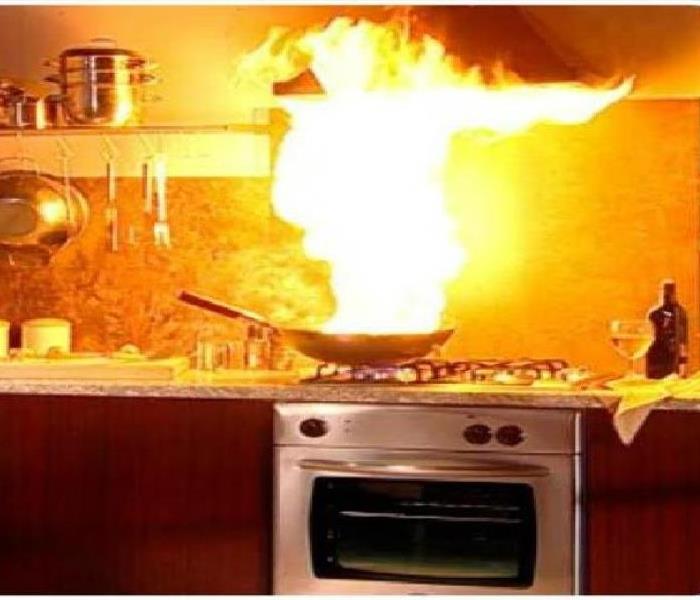 Kitchen Fire!
Kitchen Fire!
nfpa.org
For most, the kitchen is the heart of the home, especially during the holidays. From testing family recipes to decorating cakes and cookies, everyone enjoys being part of the preparations.
So, keeping fire safety top of mind in the kitchen during this joyous but hectic time is important, especially when there’s a lot of activity and people at home. As you start preparing your holiday schedule and organizing that large family feast, remember, by following a few simple safety tips you can enjoy time with your loved ones and keep yourself and your family safer from fire.
Thanksgiving by the numbers:
- Thanksgiving is the peak day for home cooking fires, followed by Christmas Day and Christmas Eve.
- In 2015, U.S. fire departments responded to an estimated 1,760 home cooking fires on Thanksgiving, the peak day for such fires.
- Unattended cooking was by far the leading contributing factor in cooking fires and fire deaths.
- Cooking equipment was involved in almost half (48%) of all reported home fires and civilian and tied with heating equipment for the second leading cause of home fire deaths.
Safety tips:
- Stay in the kitchen when you are cooking on the stovetop so you can keep an eye on the food.
- Stay in the home when cooking your turkey and check on it frequently.
- Keep children away from the stove. The stove will be hot and kids should stay 3 feet away.
- Make sure kids stay away from hot food and liquids. The steam or splash from vegetables, gravy or coffee could cause serious burns.
- Keep the floor clear so you don’t trip over kids, toys, pocketbooks or bags.
- Keep knives out of the reach of children.
- Be sure electric cords from an electric knife, coffee maker, plate warmer or mixer are not dangling off the counter within easy reach of a child.
- Keep matches and utility lighters out of the reach of children — up high in a locked cabinet.
- Never leave children alone in room with a lit candle.
- Make sure your smoke alarms are working. Test them by pushing the test button.
Remember SERVPRO of St. Clair Shores is always Here to Help @ 586-741-5050. Save our phone number in your phone so that you can be Hero Ready if disaster strikes your home or business.
8 Flammable Liquids Lying Around Your House
10/23/2017 (Permalink)
Did you know these common household items could cause a fire? David Arv Bragi
Look around your house, including under the kitchen and bathroom sinks and in your garage. Do you see hair spray, rubbing alcohol, paint thinner or linseed oil? Chances are, if you're an average homeowner (or renter), you have a wide variety of flammable liquids under your roof.
Flammable or combustible liquids cause more than 43,000 home fires each year, resulting in 200 deaths, 2,500 injuries and $469 million in property damage, according to estimates by the National Fire Protection Association. The chances that they'll set your house on fire are slim — if you take the right precautions. The Federal Hazardous Substances Act requires that all flammable or combustible household products carry a precautionary label alerting consumers about the danger of fire or explosion. “But consumers have a role to play as well,” says John Drengenberg, consumer safety director at UL, which develops product safety standards. “Make sure that you put on the cap and, if it spills, clean it up properly.”
Here are eight flammable liquids that may be lying around your home.
Nail polish remover. The liquid you rub over your fingernails is composed of acetone, which is highly flammable. Recently, in Cypress, Texas, a woman's body caught fire when a nearby candle ignited her nail polish remover.
Flammable and combustible liquids don't actually catch fire themselves. It's the vapors they give off that burn, according to Baton Rouge, Louisiana’s East Side Fire Department. In the Cypress case, vapors from the nail polish remover migrated to the candle flame, then ignited.
Fortunately, such incidents are rare. “It's in tiny bottles. It's a small amount,” says Drengenberg. “You're not generally doing your nails near a fire that can cause it to ignite.” Just be sure you aren't.
Rubbing alcohol. The rubbing alcohol you keep in your medicine cabinet is flammable and vaporizes quickly. The Environmental Protection Agency says numerous home fires have started when people poured it over fabrics to get rid of bedbugs (the agency calls this treatment method illegal).
Gasoline, paint thinner and turpentine. One of the most dangerous liquids in the home, gasoline starts approximately 8,000 home fires annually. One reason is that people often store it improperly in their garage. “I've heard many stories about glass jars filled with gasoline falling off a shelf and breaking,” says Drengenberg. “The metal lid, for instance, can create a spark." Store it in a UL-approved container at room temperature away from heat sources like your hot water heater or furnace. Also store flammable solvents like paint thinner and turpentine in tightly sealed containers away from heat sources.
Lighter fluid. Many backyard grill masters rely on charcoal lighter fluid to fire up the coals in a jiffy. But it's easy to create an out-of-control flame on the grill, burning a lot more than your pork chops.
Some tips from the New York State Office of Fire Prevention and Control: Douse the coals before, not after, lighting them (that is, only when the briquettes are cold). Never spray anything but recognized charcoal lighter fluid on the grill,
And don't go overboard. “Many people are hungry when they light the charcoal, and the temptation is to spray more fluid into the fire to speed up the cooking,” says Drengenberg.
Aerosol cans. Many aerosol spray cans use a flammable propellant, such as propane or butane, according to the Alabama Department of Environmental Management. “If you have a candle or a fireplace in a room, don't spray near it,” says Drengenberg. In addition, the pressurized cans themselves might explode when overheated, so keep them away from heat sources. An explosion also could occur if a pressurized can is accidentally punctured. Last year at Montana State University, two students were reportedly playing with a lighter and an aerosol can when the can exploded. One of the students was hospitalized with burns to half his body.
Linseed oil. Instead of evaporating vapors into the air, certain liquids used in staining or finishing work, such as linseed oil, dry up on exposure to air, according to the Bend, Oregon Fire Department. That drying process, called oxidation, generates heat that can cause cleaning rags soaked in linseed oil to spontaneously ignite. Regardless of the chemical processes involved, many products used to strip, stain or paint contain hazardous liquids. In Wheaton, Illinois, authorities suspect that a house fire started when stripping solvents ignited during a remodeling job. Furniture polish and other cleaning products are also potentially hazardous if they are oil-based.
Handling spills. If you spill a flammable liquid, open windows immediately. But don't use fans or other electrical devices, which can be a source of ignition, according to the Pasadena, California Fire Department.
After cleaning up a spill, “take the rag or towel out of the home and dispose of it,” says Drengenberg. “If it is really saturated with oil, it might be good to use a zip-lock bag. Otherwise, getting it out of your house and into a garbage can would be good.”
If you get liquids on your hands, don't wipe them on your clothes or your pants or shirt may become flammable, advises the Consumer Product Safety Commission. If your clothing does become contaminated, spot-wash it by hand, then dry it on a line. Avoid using a washer or dryer, which can sometimes ignite the clothing.
Fortunately, modern packaging has made most flammable products safer to use. “If you drop it, these days they are sold in plastic containers, so the chance of a spill is reduced,” says Drengenberg.
Remember SERVPRO of St. Clair Shores is always Here to Help @ 586-741-5050. Save our phone number in your phone so that you can be Hero Ready if disaster strikes your home or business.
Don't Get Trapped In Your Basement!
6/19/2017 (Permalink)
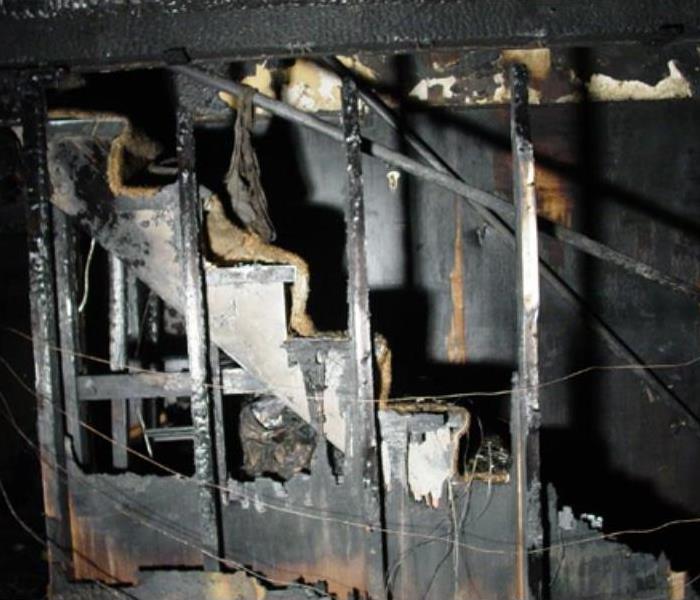 Don't let this be your only way out
Don't let this be your only way out
Don’t get trapped in your basement
By the DIY experts of The Family Handyman Magazine
The old saying “Always leave yourself an out” is especially true when it comes to home fires. When the basement stairs are blocked, or fire and thick, black smoke are racing down a hallway toward a dead-end bedroom, windows that are large enough for you to escape—and for firefighters to enter—become essential lifesaving equipment. These all-important escape hatches are called egress windows.
You may have installed smoke detectors, but if you haven't provided a way out once they blare, you've only done half the job. This is especially true for upstairs bedrooms and basements, where the stairway is often the sole escape route. If that stairway is blocked, you can be trapped.
According to the International Building Code, “Basements and sleeping rooms below the fourth story shall have at least one exterior emergency escape and rescue opening. Such opening shall open directly into a public street, alley, yard or court.”
Few of us think of windows as lifesaving equipment— but they are! When you need to escape a house fire or other disaster, or when rescue personnel need to enter—the right size egress window can make the difference between life and death.
Remember SERVPRO of St. Clair Shores is always Here to Help @ 586-741-5050. Save our phone number in your phone so that you can be Hero Ready if disaster strikes your home or business.
Don't Let Fireworks Spark a House Fire!
6/13/2017 (Permalink)
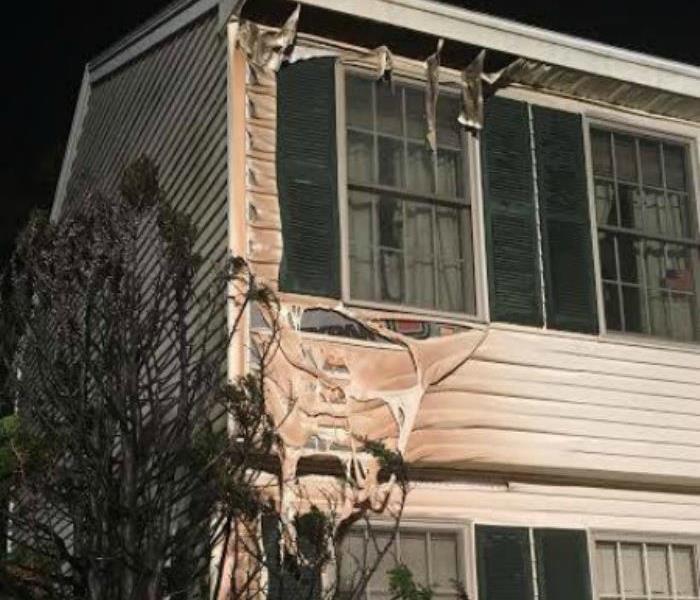 Fireworks Damage
Fireworks Damage
Recommended Firework Safety Tips
© The National Council on Fireworks Safety, Inc
- Obey all local laws regarding the use of fireworks.
- Know your fireworks; read the cautionary labels and performance descriptions before igniting.
- A responsible adult SHOULD supervise all firework activities. Never give fireworks to children.
- Alcohol and fireworks do not mix. Save your alcohol for after the show.
- Wear safety glasses when shooting fireworks.
- Light one firework at a time and then quickly move away.
- Use fireworks OUTDOORS in a clear area; away from buildings and vehicles.
- Never relight a “dud” firework. Wait 20 minutes and then soak it in a bucket of water.
- Always have a bucket of water and charged water hose nearby.
- Never carry fireworks in your POCKET or shoot them into METAL or GLASS containers.
- Do not experiment with homemade fireworks.
- Dispose of spent fireworks by wetting them down and place in a metal trash can away from any building or combustible materials until the next day.
- FAA regulations PROHIBIT the possession and transportation of fireworks in your checked baggage or carry-on luggage.
- Report illegal explosives, like M-80s and quarter sticks, to the fire or police department.
And let’s not forget the safety of our pets!
- Don’t bring your pets to a fireworks display, even a small one.
- If fireworks are being used near your home, put your pet in a safe, interior room to avoid exposure to the sound.
- Make sure your pet has an identification tag, in case it runs off during a fireworks display.
- Never shoot fireworks of any kind (consumer fireworks, sparklers, fountains, etc.) near pets.
Be safe this July 4th!! SERVPRO of St. Clair Shores is always Here to Help 24/7 (586) 741-5050.
Watch Professional Fireworks Instead of Risking a House Fire
6/13/2017 (Permalink)
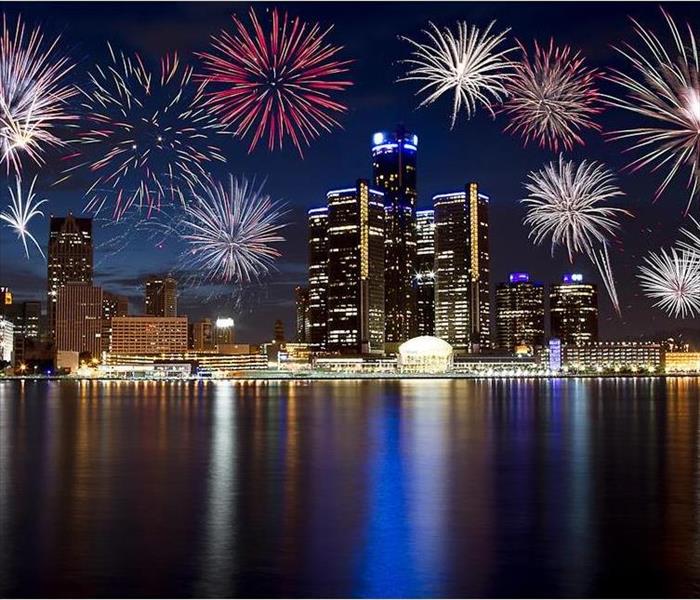 Detroit Fireworks
Detroit Fireworks
Be safe this July 4th!
The fireworks season is upon us. We are always preaching fire safety. The best way to enjoy fireworks is by going to a professional display instead of doing them yourself and taking a chance of a house fire. Here is a list of fireworks shows for select communities in Macomb, Oakland, St. Clair and Wayne counties as reported by michiganfireworks.com:
Macomb County
June 20
- Utica Riverwalk at the Clock tower next to City Hall, 9:45 p.m.
- RoseFest at Veterans Memorial Park, Roseville, dusk
June 25
- Bay-Rama Fishfly Festival at Waterfront Park in New Baltimore, 10 p.m.
June 26
- St. Clair Shores Fireworks Extravaganza at Veterans Memorial Park, dusk
- Stony Creek Metroparks Fireworks in Shelby Township, dusk
- Mount Clemens Independence Day Fireworks Presented by Wayne & Joan Webber Foundation, riverfront, dusk
June 28
- Stars & Stripes Festival at Freedom Hill Park in Sterling Heights, 10 p.m.
June 30
- Center Line Fireworks at Memorial Park, 10 p.m.
- Lake St. Clair Metropark Fireworks in Harrison Township, 10 p.m.
July 4
- MacRay Harbor over Lake St. Clair, Harrison Township, 10 p.m.
July 8
- Clinton Township Fireworks at Civic Center, dusk
July 26
- Fraser Picnic and Parade at City Hall, dusk
Aug.8
- Memphis Festival Days at City Park, 10 p.m.
- New Haven Rocket Fest at New Haven High School, 10 p.m.
Aug. 28
- City of Warren Birthday Bash at City Square, dusk
Sept. 12
- Richmond Good Old Days Festival over the festival grounds, 10 p.m.
Oakland County
June 20
- Ortonville CreekFest Fireworks at Brandon Middle School, dusk
- Walled Lake Let Freedom Ring Block Party on E. Walled Lake Road, dusk
June 24
- Rochester Festival of the Hills at Borden Park, 10:06 p.m.
June 25
- Red Run Golf Course in Royal Oak, dusk
- Wixom Independence Day Fireworks at Sibley Park, dusk
June 27
- Lake Orion 2015 Jubilee at Green’s Park, dusk
June 28
- Festival in the Park at Civic Center Park in Madison Heights, 10 p.m.
- Kensington Metropark Fireworks in Milford, dusk
July 3
- Addison Oaks County Park in Leonard, 9:30 p.m.
- Beverly Hills/Birmingham Fireworks at Lincoln Hills Golf Course, dusk
- Oakland County Boat Club Fireworks over Sylvan Lake, dusk
- Wolverine Lake Tiki Night and Fireworks, dusk
- Oakland County Fair at Springfield Oaks County Park in Davisburg, 10 p.m.
- Hazel Park Raceway, 10:30 p.m.
July 4
- Groveland Oaks Park in Holly, 9:30 p.m.
- Clawson Park, dusk
- Lake Orion Fourth of July Fireworks over Lake Orion, dusk
- White Lake Fireworks at south end of lake in Highland, dusk
- Clarkston Independence Fest at Clintonwood Park, dusk
- Big Bang Fireworks at Maceday Lake in Waterford, 10 p.m.
- Lake Sherwood Fourth of July at Higgins Island, dusk
- Huntington Woods Firework at Rackham Golf Course, 10:05 p.m.
July 10
- Elizabeth Lake Fireworks in Waterford, dusk
July 10/11
- Seymour Celebration in Oxford at Seymour Lake Township Park, dusk
Sept. 19
- Troy Family Daze at Troy Civic Center, 9 p.m.
Nov. 6
- Macy’s Fireworks Spectacular at Oakland Mall in Troy, 7 p.m
St. Clair County
June 13
- Marysville Days, over St. Clair River, 10 p.m.
July 3
- Algonac Lions Pickerel Tournament, Riverfront Park, 10 p.m.
July 4
- St. Clair Fireworks at Palmer Park in downtown St. Clair, dusk
- Port Huron Fireworks at Desmond Landing / Vantage Point 51 Water Street
July17
- Blue Water Fest in Port Huron, dusk
July 24
- Yale Bologna Festival, 10 p.m.
July 31
- Marine City Maritime Days over the St. Clair River, dusk
Wayne County
June 22
- Detroit Ford Fireworks, Hart Plaza, 10:06 p.m.
July 4
- Grosse Pointe Farms Regatta and Fireworks, Lake Shore Drive waterfront, 10 p.m.
July 10-11
- Detroit Symphony at Ford House on Lake Shore Road, 9:30 p.m.
July 10
- Woodhaven Uncle Sam Jam at Civic Center Park, dusk
Aug. 8-9
- Dearborn Homecoming Festival Ford Field Park in Dearborn, 10 p.m.
Sept. 5
- Detroit International Jazz Festival at Hart Plaza, 11 p.m.
Sept. 12
- Old Car Festival at Henry Ford Museum in Dearborn, 9 p.m.
Nov. 19
- Wayne County Lightfest at Hines Park, Westland, dusk
As always, keep SERVPRO of St. Clair Shores in mind. We are Here to Help @ (586) 741-5050.
Fire Safety
4/5/2017 (Permalink)
Fire Safety: Five Steps to a Safer Home
Fire Extinguisher Sales & Service, Inc
Thousands of fires occur every year and sometimes they are fatal. Fires are serious whether they are major or minor. When a fire occurs, a lot of damage can take place. Read on for five simple safety tips you can follow to keep you, your family, and pets safe.
1. Install Smoke Detectors
Install smoke detectors and make sure the batteries are always charged or changed on a regular schedule. Many deaths in fire occur due to smoke detectors not be installed or missing batteries. When it is time to change the batteries in a smoke detector, you will hear a few beeps every few minutes. Instead of removing the batteries because the low battery alert is annoying, change the batteries right then. Do not wait.
2. Do Not Attempt to Hide
A lot of people, even adults attempt to hide when a fire occurs. Hiding is one of the worst things you can do when a fire occurs. Some people freeze because they are afraid and are not able to collect their thoughts. Fire and smoke can reach every part of a residence, business or other establishment, so hiding is not a good idea. Instead of hiding, go outside immediately.
3. Escaping a Fire
You may not be able to escape a fire by simply walking out of the front, back or side door. In some situations, you will need to crawl on your hands and knees to get out of the home or business. When a fire occurs, it is easier to breathe when you are low to the ground.
4. Stop, Drop, and Roll
In the event your clothes catch fire, immediately stop, drop, and roll until the fire is completely out. Scream out for help and go to a fire extinguisher if you have one. When your clothes are on fire, never run because it causes the fire to burn faster.
5. Choose a Meeting Place
Before a fire ever occurs, you need to pick a place to meet. Everyone in the family needs to be aware of the meeting place and the place you choose to meet needs to be out of the way of the burning home or facility. You may want to have accessories such as flashlights and whistles to help you find one another.
Remember SERVPRO of St. Clair Shores is always Here to Help @ 586-741-5050. Save our phone number in your phone so that you can be Hero Ready if disaster strikes your home or business.
Thanksgiving Day Safety Tips
11/18/2016 (Permalink)
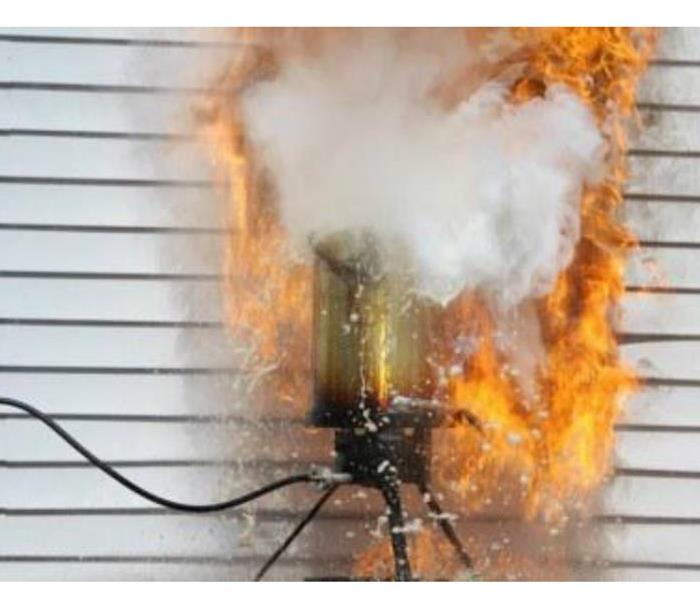 Thanksgiving Day Safety Tips
Thanksgiving Day Safety Tips
Thanksgiving Day Safety Tips
We hope everyone has a very happy and safe Thanksgiving. With that in mind, below are tips on staying safe this holiday season. Avoid Turkey Frying Dangers With Thanksgiving fast approaching, thoughts turn to turkey, dressing and pumpkin pie. Delicious deep-fried turkey, historically prevalent in the southern states, is growing in popularity around the country thanks to celebrity chefs such as Emeril Lagasse. The only problem is that the turkey fryers used to create this succulent dish can be unsafe.
Turkey fryers are devices, resembling a large commercial coffee pot, that are filled with oil heated to 350 degrees Fahrenheit. Turkeys are placed in this hot oil to fry the birds. The big problem, though, is that people often fill the fryers too full of oil, and it overflows when the bird is placed inside. This cascading oil hits the heating flames below, causing an instant fire. In addition, the turkey fryers are often quite unstable and easy to tip over. Lastly, many of these fryers lack adequate thermostat controls. Thus, the units have the potential to overheat the oil to the point of combustion.
But for those people who insist on using their turkey fryers, the following tips are offered:
- Always use turkey fryers outdoors a safe distance from buildings and any other burnable materials.
- Never use turkey fryers on wooden decks or in garages.
- Make sure the fryers are used on a flat surface to reduce the chance of accidental tipping.
- Never leave the fryer unattended since most units lack proper thermostat controls. If people do not watch the fryer carefully, the oil will continue to heat until it catches fire.
- Never let children or pets near the fryer when in use. Even after use, never allow children or pets close to the turkey fryer. The oil inside the cooking pot can remain dangerously hot for hours after use.
- To avoid oil spillover, do not overfill the fryer. Test it beforehand with water.
- Use well-insulated potholders or oven mitts when touching pot or lid handles. If possible, wear safety goggles to protect eyes from oil splatter.
- Keep an all-purpose fire extinguisher nearby.
Copyright 2010 International Risk Management Institute, Inc.
Top 10 dangers of Fireplaces
10/26/2016 (Permalink)
The Top 10 Dangers of Fireplaces:
What Every Fireplace User Should Know
by www.SixWise.com
Most people love the warmth and coziness of having a fireplace in their home, so much so that fireplace sales rose to 3.2 million units in 2005, up 50 percent since 1998, according to the Hearth, Patio and Barbecue Association.
About 55 percent of U.S. households have at least one fireplace.
Over half of all U.S. homes (55 percent) have at least one fireplace, and they're ranked as the third most desirable feature that people look for when buying a new home, says the National Association of Home Builders (outdoor porches and upscale kitchens rank first and second).
But as you get ready to crank up your fireplace this winter season, it's important to know that fireplaces can be dangerous -- accounting for a large number of home fires and emergency room visits every year. You can enjoy your fireplace while keeping your family and your home safe by avoiding these 10 common fireplace dangers.
Not having your flue and chimney inspected each heating season. If your flue or chimney are blocked by debris or contain cracks or leaks, inadequate venting can occur, and toxic fumes may seep into your home. Further, creosote, a byproduct of burning wood, can build up on the chimney flue and lead to a chimney fire. An inspection lets you know that everything is in safe working order.
Forgetting to open the damper, or closing it too soon. The fireplace damper should be opened before lighting the fire, and kept open until all ashes are cool. Closing a damper too soon, even if just the ashes are warm, can allow poisonous gasses like carbon monoxide to build up in your home.
Using charcoal in a fireplace. Charcoal should never be used in a fireplace because it can lead to carbon monoxide poisoning.
Not using a screen or glass enclosure. These barriers are necessary to keep sparks, rolling logs and embers from jumping out of the fireplace and starting a fire.
Never burn charcoal in a fireplace -- it can release poisonous carbon monoxide.
Allowing children or pets to get too close to the fireplace (or carelessly getting too close yourself). The glass barrier doors of a fireplace can reach over 400°F in only six minutes, and it takes 45 minutes for the doors to cool down to a safe temperature after the fire has been put out. Children may reach out to touch the doors out of curiosity and suffer a serious burn.
"We urge the industry that makes and sells gas fireplaces to warn consumers of this burn risk and to investigate design changes to help protect children," says says Amy Zierler, information specialist at Safe Kids Canada, the national injury prevention program at The Hospital for Sick Children.
An excellent option to consider when the fireplace is in use is The HearthGate™, a fireplace protection gate that keeps kids and pets clear of dangerously hot indoor fireplaces.
Using gasoline, charcoal lighter fluid or other fuel to light the fire. These substances release vapors that could cause an explosion.
Enjoy Your Fireplace While
Keeping Your Kids and Pets Safe
Fireplaces are great for families, but they also present an added risk of serious burns to your children and pets. But with HearthGate Fireplace Protection Gate, the risk is eliminated!
- Base set fits a 6-feet wide by 2-feet deep hearth
- Five 24-inch wide and 28-inch high interlocking sections (extensions available)
- Includes a single one-hand open gate that swings in both directions
- Constructed of non-toxic strong tubular steel ... heat-resistant and easy to clean!
- Black finish blends beautifully with most home interiors
Burning plastic or other garbage in the fireplace. Burning plastic materials like cups, wraps or plates, or other trash, can release toxic gases into your home's air.
Not cleaning your chimney regularly. This is necessary to avoid the buildup of creosote that could cause a fire. You should not use your fireplace if your chimney is in need of a cleaning.
Using too much paper to build the fire. It's OK to use paper to get your fire started, but using an excessive amount can over-build the fire and ignite soot in the chimney, causing a fire.
Hanging decorations from your mantel. If you have decorations that hang down from your mantel over your fireplace, it's possible for a spark to ignite them and cause a fire. Make sure any decorations (i.e. Christmas stockings, garland, etc.) have been removed before lighting the fire.
Have you experienced a Puff Back in your home?
10/26/2016 (Permalink)
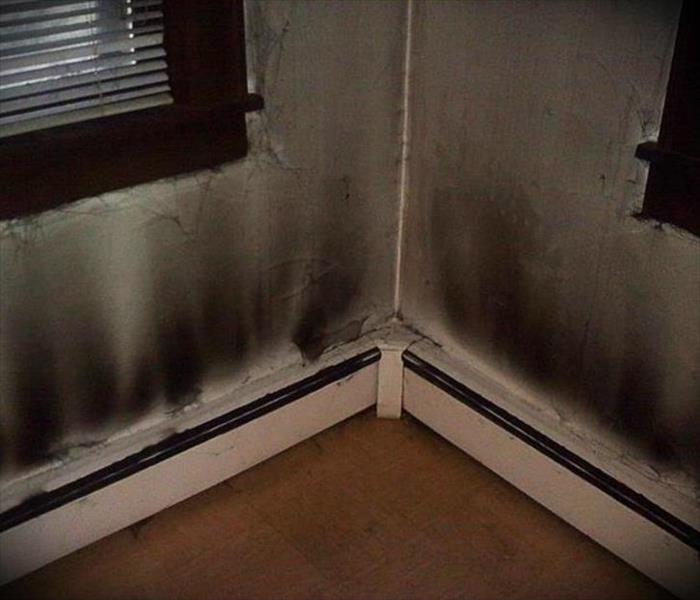 Puff Back Damage
Puff Back Damage
FURNACE PUFFBACKS LEAVE SOOTY MESS
By BERNARD GLADSTONE
Published: February 13, 1986
MODERN heating systems are quite dependable, with very little attention needed from the homeowner. When a breakdown occurs, a professional can usually solve the problem quickly.
However, the malfunction known as a puffback is not so easily dealt with. A puffback is an explosion inside the burner chamber of the furnace or boiler (hot-air systems use furnaces, and steam or hot-water systems use boilers).
Although such explosions are usually small and confined to the burner chamber, they can do considerable harm to the heating system. Sometimes the burner will start easily and need only minor repairs and adjustments. But puffbacks usually do more damage, sending soot and smoke throughout the house.
Most puffbacks occur in oil-fired heating systems. In a furnace or boiler fueled with gas, the explosion is usually bigger and more damaging.
A puffback can have many causes but can almost always be traced to a lack of maintenance or a failure to make needed repairs. All heating systems, especially the oil-fired, should be inspected, cleaned and adjusted at least once a year by a qualified professional.
One point of inspection in an oil burner, for example, are the two electrodes that create a spark when the burner starts. This ignites oil sprayed into the chamber through a nozzle.
If these electrodes become coated with carbon or soot or are not adjusted properly, the oil may fail to ignite. In such cases, a control is supposed to shut off the oil in about 30 seconds, but if the control malfunctions the oil will form a small puddle on the bottom of the burner chamber.
The next time the burner tries to start, the excess fuel in the chamber will cause a small uncontrolled explosion - a puffback - and a sudden dis-persion of black smoke and soot throughout the house.
Puffback can also be caused by a partly clogged or cracked nozzle, improper nozzle angle, cracked electrodes, poor adjustment of the air-fuel mixture, a defective spark transformer, shorted ignition cables or dirty or low-grade fuel.
The aftermath is usually the main problem. Walls, ceilings, carpets, furniture and curtains are coated with a fine film of soot and smoky streaks. As a rule, the damage is worse with a forced-air heating system or central air-conditioning, because the duct work provides a path through the house, even into closets.
Cleaning up the mess is not a job for the amateur, but rather a professional cleaning company (many are listed in the Yellow Pages under ''house cleaning''). These concerns use special techniques and materials. For example, attempts to wash soot off a flat-painted wall or ceiling usually leave greasy smears. Professional cleaners use waterless rubber sponges that work like an eraser and absorb the soot without spreading it.
Cleaning carpets, upholstery or draperies can be trickier. They must be washed or chemically cleaned, depending on the material and how dense the absorbed soot is. In extreme cases it may be impossible to remove stains or odors completely.
''White carpeting that gets badly smoke-stained may never get fully restored to its original whiteness,'' said Ron Marchand, head of the Interstate Fire Restoration Corporation in Bayside, Queens. ''But in most cases we can get everything looking like new again - but not if someone has made amateurish attempts at trying to do the job themselves first.''
Costs for cleanup vary greatly. ''The least a small home can get by with is about $800 to $1,000 on the average,'' Mr. Marchand said. ''But where there is clothing, carpeting and upholstery involved, the cleanup cost can run up as high as $5,000 or even $10,000 after a serious puffback.''
For those with adequate homeowners' insurance, the bulk of the cost is usually covered. Most insurance companies are reluctant to pay for jobs by the homeowner; they usually cover labor costs by a professional.
As with most insurance claims, an adjuster must first examine the damage and establish a fair price for the job. To keep a lid on the total cost, most insurance companies have certain maximums for each part of the job. These may be based on such things as the square footage of walls or carpeting, or may be specific amounts allowed for each upholstered piece.
Candle safety for a safe Halloween/Thanksgiving Season
10/26/2016 (Permalink)
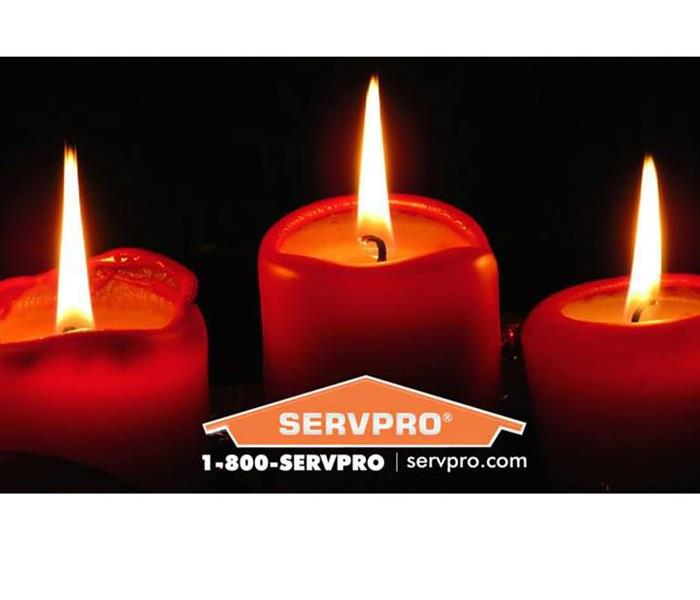 Candle safety from your friends at SERVPRO.
Candle safety from your friends at SERVPRO.
Do you know someone who loves to burn candles during the colder months? Test you candle safety by freshening up on some Candle Safety Tips below. We are always Here to Help at SERVPRO of St. Clair Shores.
Candle Safety Rules from the National Candle Association.
- Always keep a burning candle within sight. Extinguish all candles when leaving a room or before going to sleep. Be sure the wick ember is no longer glowing.
- Never burn a candle on or near anything that can catch fire. Keep burning candles away from furniture, drapes, bedding, carpets, books, paper, flammable decorations, etc.
- Keep burning candles out of the reach of children and pets.
- Trim candlewicks to ¼ inch each time before burning. Long or crooked wicks can cause uneven burning and dripping.
- Always use a candle-holder specifically designed for candle use. The holder should be heat resistant, sturdy, and large enough to contain any drips or melted wax.
- Be sure the candle-holder is placed on a stable, heat-resistant surface. This can help prevent heat damage to underlying surfaces and prevent glass containers from breaking.
- Keep the wax pool free of wick trimmings, matches and debris at all times.
- Always read and follow the manufacturer’s use and safety instructions carefully. Don’t burn a candle longer than the manufacturer recommends.
- Keep burning candles away from drafts, vents, ceiling fans and air currents. This will help prevent rapid, uneven burning, and avoid flame flare-ups and sooting. Drafts can also blow nearby lightweight items into the flame where they could catch fire.
- Always burn candles in a well-ventilated room. Don’t burn too many candles in a small room or in a “tight” home where air exchange is limited.
- Don’t burn a candle all the way down. Extinguish the flame if it comes too close to the holder or container. For a margin of safety, discontinue burning a candle when 2 inches of wax remains or ½ inch if in a container.
- Never touch or move a burning candle or container candle when the wax is liquid.
- Never use a knife or sharp object to remove wax drippings from a glass holder. It might scratch, weaken, or cause the glass to break upon subsequent use.
- Place burning candles at least three inches apart from one another. This helps ensure they don’t melt one another, or create their own drafts to cause improper burning.
- Use a snuffer to extinguish a candle. It’s the safest way to prevent hot wax splatters.
- Never extinguish candles with water. The water can cause the hot wax to splatter and might cause a glass container to break.
- Be very careful if using candles during a power outage. Flashlights and other battery-powered lights are safer sources of light during a power failure.
- Extinguish a candle if it repeatedly smokes, flickers, or the flame becomes too high. The candle isn’t burning properly. Cool, trim the wick, then check for drafts before relighting.
- Never use a candle as a night light.
9 Ways to Prepare Your House for a Safe Halloween
10/11/2016 (Permalink)
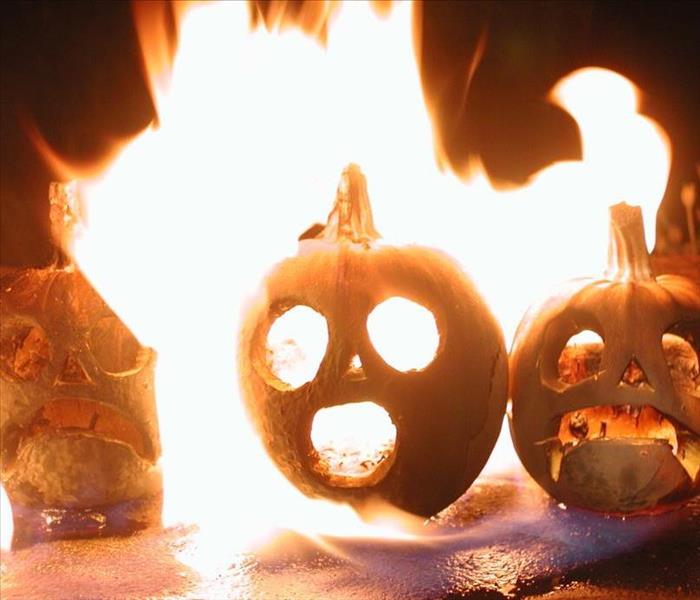 Don't have Pumpkin Fire!
Don't have Pumpkin Fire!
9 Ways to Prepare Your House for a Safe Halloween
The SafeWise Report
It won’t be long before you’ll be greeted by little ghosts and goblins shouting “Happy Halloween!”
Now is the time to make your home safe for trick-or-treaters. We’ve gathered nine ideas to get you started.
- Secure railings.
Young children, and the adults who often accompany them, will need the security and support of railings while climbing steps to get to your front door. If you’ve been putting off fixing that rickety railing, it’s time to get out the toolbox and make it secure.
- Clear walkways.
Trick-or-treaters are too busy counting candy to pay close attention to where they’re walking, so it’s critical to survey your yard for potential trip and slip hazards. Be sure your yard is free of tripping hazards like hoses and sprinklers, clear walkways of loose gravel, and be sure to clean moss off steps. If your home has an irrigation system, turn the system off well in advance of the big night so your lawn and walkways have a chance to dry.
- Avoid using candles.
A glowing jack-o’-lantern makes your home warm and welcoming to candy seekers, but using a candle to illuminate a pumpkin can be dangerous. Costumes, paper decorations and ornamental straw can easily catch on fire. Instead of a traditional candle, use one powered by batteries.
- Consider candy choices.
No doubt buying Halloween candy is fun, but keep in mind that not all candy is appropriate for every child. Avoid candy that poses a choking hazard for toddlers, and keep in mind that a number of children have peanut allergies. Even if the candy doesn’t contain peanuts, it could be made in a facility that handles peanuts. Check the candy bag’s label for a peanut allergy warning.
- Use lots of lights.
A dimly lit entryway helps set the spooky mood of Halloween, but it’s also increases the chance of an accident. Make sure the exterior lights of your home are working, and consider turning on flood lights to illuminate the darkest areas of your yard. Even if you’re not going to be home, leave on lights for safety reasons and to dissuade unsavory characters from vandalizing your home. And, if you won’t be there, make sure you set your security system, just to be safe.
- Contain your pets.
Barking dogs not only scare trick-or-treaters of every age away, they also present a danger. A dog that breaks away from your home might not bite, but he could knock down a toddler or scare a teen right into the street, causing even more danger. Keep all pets securely confined inside your home until the hustle and bustle of the night has passed.
- Don’t put out candy.
Maybe you won’t be home on Halloween or perhaps it’s difficult for you to answer the door, so you’ve put out a bowl of candy for kids to help themselves. While this seems like the right thing to do, someone could taint the candy. It’s probably unlikely, but it’s definitely not worth taking the chance.
- Make room in the garage.
If you’re headed out on Halloween, clean out the garage and store your car securely in it. From teen antics to serious vehicle vandalism and theft, your car is best kept in the garage on Halloween.
- Use discretion when opening the door.
While nearly all trick-or-treaters are innocent kids out to collect as much candy as they can possibly carry, you must still be cautious of whom you open the door for. If you have an uneasy feeling about the person approaching your door, don’t open it. And as the barrage of trick-or-treaters fades to just a few here and there, it’s a good idea to stop opening the door for the night.
Halloween has a reputation as a frightening holiday, but that doesn’t mean it should be dangerous. Use these tips to keep trick-or-treaters and your family safe and enjoy a spooktacular Halloween night.
SERVPRO of St. Clair Shores 586-741-5050. We are Here to Help 24/7.
Autumn Safety Tips: Protect What Matters this Fall
10/11/2016 (Permalink)
Autumn Safety Tips: Protect What Matters this Fall
by Victoria Araj 10-4-11
- Every month should be fire prevention month, but we tend to plug in a lot more devices in the fall and winter. It’s important to test all smoke alarms and have a family fire drill. Remember to replace used and expired fire extinguishers as well.
- Turn your heater on before the temperatures really plummet so you can ensure it works. Contact a technician to inspect that it’s operating properly if you suspect it needs servicing.
- Keep all flammable materials away from your furnace. This includes, clothing, paint products, toxic materials, cardboard and more.
- If you use a portable or space heater, keep it away from clothing, bedding, drapery and furniture. Remember to shut them off if you leave the house and don’t leave them unattended if you have children or pets.
- Do not use your space heater as a dryer for hats, gloves and other articles of clothing.
- If you have a fireplace, inspect the chimney to confirm it is free of debris, creosote buildup, and is unobstructed so combustibles can vent. Make sure the bricks, mortar and liner are in good condition.
- Do not warm your kitchen with a gas range or an open oven door, as this can lead to toxic air that is not safe to breathe.
- Keep matches, lighters and candles out of the reach of children and pets.
- When burning a candle, don’t leave them unattended, burning near other flammable items or on an unsteady surface.
- Doing laundry? Avoid fires by cleaning filters after each load of wash and removing lint that collects in dryer vents.
- Do a quick check for areas that may need repair before extreme weather hits: unsteady roof shingles, warped windowsills and concrete that might be sloping toward the house.
- Check all outdoor lighting fixtures to make sure they are working properly. This can safeguard you against falls and neighborhood crime.
- Before burning leaves, check your city’s regulations, as it may be illegal where you live. If you burn them, do so away from the house and use proper containers.
Remember SERVPRO of St. Clair Shores is always Here to Help at 586-741-5050. Save our phone number in your phone so that you can be Hero Ready if disaster strikes your home or business.
What you can do until help arrives.
7/21/2016 (Permalink)
Below is a list of things you can do until help arrives after you experience a fire.
*Limit movement in the home to prevent soot particles from spreading and additional damage from occuring.
*Place clean towels or old linens on rugs and high traffice areas and upholestry.
*Coat chrome faucets, trim and appliances with petroleum jelly or oil.
*Place aluminum foil or wood blocks between furniture legs and wet carpet.
*Do not wash any walls or painted surfaces.
*Do not shampoo carpet or upholestry.
*Do not clean any electrical equipment.
*Do not send clothing to a dry cleaner since improper cleaning may set smoke odor.
If you have any questions or concerns, please call our office at (586) 741-5050. We would be happy to come out and do an inspection and help point you in the right direction. We are always Here to Help at SERVPRO of St. Clair Shores at (586)741-5050
Preventing a Fire
7/6/2016 (Permalink)
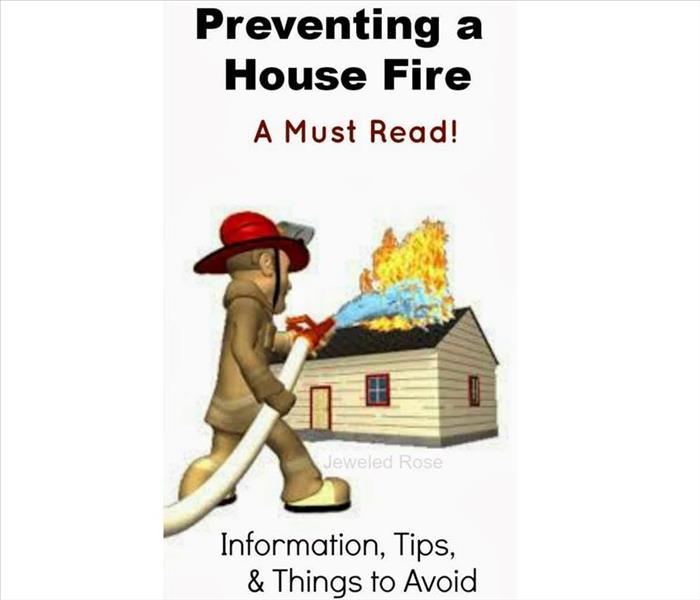 Preventing a Fire
Preventing a Fire
At SERVPRO of St. Clair Shores we are always Here to Help, before, during and after an emergency. Below are a few helpful things you can do to prevent a house fire happening to you. If you need further assistance, call SERVPRO of St. Clair Shores at (586)741-5050.
Most home fires occur in the kitchen while cooking and are the leading cause of injuries from fire. Common causes of fires at night are carelessly discarded cigarettes, sparks from fireplaces without spark screens or glass doors, and heating appliances left too close to furniture or other combustibles. These fires can be particularly dangerous because they may smolder for a long period before being discovered by sleeping residents.
Home fires are preventable! The following are simple steps that each of us can take to prevent a tragedy.
Cooking
- Stay in the kitchen when you are frying, grilling, or broiling food. If you leave the kitchen for even a short period of time, turn off the stove.
- Wear short, close-fitting or tightly rolled sleeves when cooking.
- Do not cook if you are sleepy, have been drinking alcohol, or have taken medicine that makes you drowsy.
- Keep children away from cooking areas by enforcing a "kid-free zone" of 3 feet around the stove.
- Position barbecue grills at least 10 feet away from siding and deck railings, and out from under eaves and overhanging branches.
Smoking
- If you smoke, smoke outside. Most home fires caused by smoking materials start inside the home. Put your cigarettes out in a can filled with sand.
- Make sure cigarettes and ashes are out. The cigarette really needs to be completely stubbed out in an ashtray. Soak cigarette butts and ashes in water before throwing them away. Never toss hot cigarette butts or ashes in the trash can.
- Check for cigarette butts. Chairs and sofas catch on fire fast and burn fast. Don't put ashtrays on them. If people have been smoking in the home, check for cigarettes under cushions.
- Never smoke in a home where oxygen is used, even if it is turned off. Oxygen can be explosive and makes fire burn hotter and faster.
- Be alert - don’t smoke in bed! If you are sleepy, have been drinking, or have taken medicine that makes you drowsy, put your cigarette out first.
Electrical and Appliance Safety
- Frayed wires can cause fires. Replace all worn, old or damaged appliance cords immediately and do not run cords under rugs or furniture.
- Buy electrical products evaluated by a nationally recognized laboratory, such as Underwriters Laboratories (UL).
- If an appliance has a three-prong plug, use it only in a three-slot outlet. Never force it to fit into a two-slot outlet or extension cord.
- Use electrical extension cords wisely; never overload extension cords or wall sockets.
- Immediately shut off, then professionally replace, light switches that are hot to the touch and lights that flicker.
Portable Space Heaters
- Keep combustible objects at least three feet away from portable heating devices.
- Buy only heaters evaluated by a nationally recognized laboratory, such as Underwriters Laboratories (UL).
- Check to make the portable heater has a thermostat control mechanism, and will switch off automatically if the heater falls over.
- Check with your local fire department on the legality of kerosene heater use in your community.
- Only use crystal clear K-1 kerosene in kerosene heaters. Never overfill it. Use the heater in a well-ventilated room.
Fireplaces and Woodstoves
- Inspect and clean woodstove pipes and chimneys annually and check monthly for damage or obstructions.
- Never burn trash, paper, or green wood.
- Use a fireplace screen heavy enough to stop rolling logs and big enough to cover the entire opening of the fireplace to catch flying sparks.
- Make sure the fire is completely out before leaving the house or going to bed.
- Store cooled ashes in a tightly sealed metal container outside the home.
Children
- Take the mystery out of fire play by teaching children that fire is a tool, not a toy.
- Store matches and lighters out of children's reach and sight, preferably in a locked cabinet.
- Teach children not to pick up matches or lighters they may find. Instead, they should tell an adult immediately.
- Never leave children unattended near operating stoves or burning candles, even for a short time.
- Check under beds and in closets for burned matches, evidence your child may be playing with fire.
More Prevention Tips
- Avoid using lighted candles.
- Never use the range or oven to heat your home.
- Replace mattresses made before the 2007 Federal Mattress Flammability Standard. Mattresses made since then are required by law to be safer.
- Keep combustible and flammable liquids away from heat sources.
- Portable generators should NEVER be used indoors and should only be refueled outdoors or in well ventilated areas.
How to Create and Practice a Fire Escape Plan
7/6/2016 (Permalink)
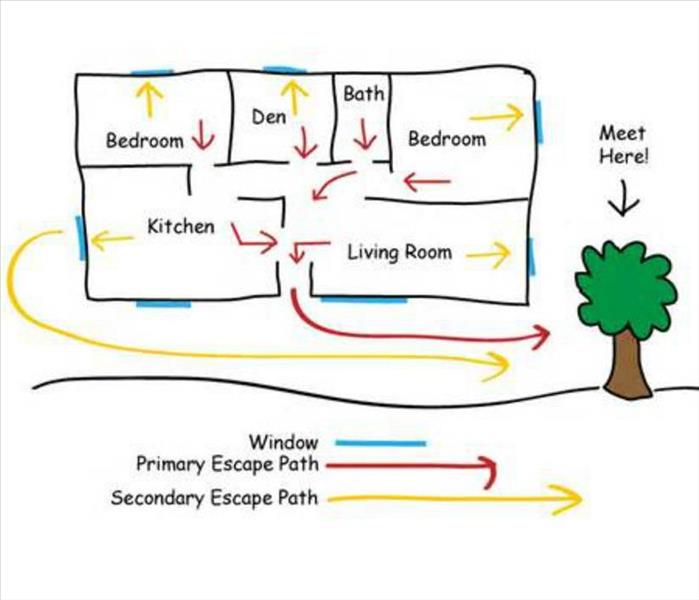 Create and Practice a Fire Escape Plan
Create and Practice a Fire Escape Plan
Create and Practice a Fire Escape Plan
In the event of a fire, remember that every second counts, so you and your family must always be prepared. Escape plans help you get out of your home quickly.
Twice each year, practice your home fire escape plan. Some tips to consider when preparing this plan include:
- Find two ways to get out of each room.
- If the primary way is blocked by fire or smoke, you will need a second way out. A secondary route might be a window onto a neighboring roof or a collapsible ladder for escape from upper story windows.
- Only purchase collapsible ladders evaluated by a nationally recognized laboratory, such as Underwriters Laboratory (UL).
- Make sure that windows are not stuck, screens can be taken out quickly, and that security bars can be properly opened.
- Practice feeling your way out of the house in the dark or with your eyes closed.
- Windows and doors with security bars must have quick release devices to allow them to be opened immediately in an emergency. Make sure everyone in the family understands and practices how to properly operate and open locked or barred doors and windows.
- Teach children not to hide from firefighters.
Smoke Alarms
A properly installed and maintained smoke alarm is the only thing in your home that can alert you and your family to a fire 24 hours a day, seven days a week. A working smoke alarm significantly increases your chances of surviving a deadly home fire.
- Install both ionization AND photoelectric smoke alarms, OR dual sensor smoke alarms, which contain both ionization and photoelectric smoke sensors
- Test batteries monthly.
- Replace batteries in battery-powered and hard-wired smoke alarms at least once a year (except non-replaceable 10-year lithium batteries)
- Install smoke alarms on every level of your home, including the basement. The U.S. Fire Administration recommends installing smoke alarms both inside and outside of sleeping areas.
- Always follow the manufacturer’s installation instructions when installing smoke alarms.
- Replace the entire smoke alarm unit every 8-10 years or according to manufacturer’s instructions.
- Never disable a smoke alarm while cooking – it can be a deadly mistake. Open a window or door and press the “hush” button, wave a towel at the alarm to clear the air, or move the entire alarm several feet away from the location.
Smoke Alarm Safety People with Access or Functional Needs
- Caregivers are encouraged to check the smoke alarms of those who are unable to do it themselves.
- Audible alarms for people who are blind or have low vision should pause with a small window of silence between each successive cycle so that they can listen to instructions or voices of others.
- Smoke alarms with a vibrating pad or flashing light are available for people who are deaf or hard of hearing. Contact your local fire department for information about obtaining a flashing or vibrating smoke alarm.
- Smoke alarms with a strobe light outside the home to catch the attention of neighbors, and emergency call systems for summoning help, are also available.
More Fire Safety Tips
- Sleep with your door closed.
- Only those trained in the proper use and maintenance of fire extinguishers should consider using them when appropriate. Contact your local fire department for information on training in your area and what kind to buy for your home.
- Consider installing an automatic fire sprinkler system in your residence.
- Ask your local fire department to inspect your residence for fire safety and prevention.
Call SERVPRO of St. Clair Shores in case of an emergency at (586) 741-5050. We are always Here to Help and Ready for Whatever happens.
Home Fires Stats in US
7/6/2016 (Permalink)
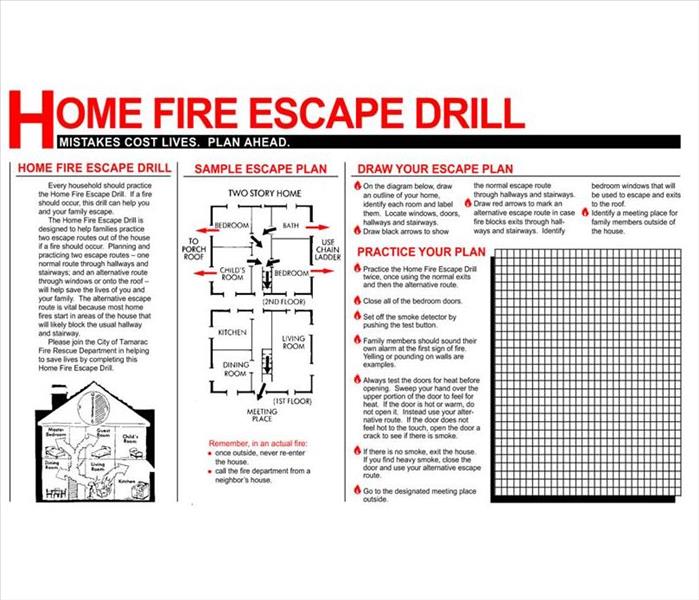 Home Fire Escape Drill
Home Fire Escape Drill
Home Fires
Each year more than 2,500 people die and 12,600 are injured in home fires in the United States, with direct property loss due to home fires estimated at $7.3 billion annually. Home fires can be prevented!
To protect yourself, it is important to understand the basic characteristics of fire. Fire spreads quickly; there is no time to gather valuables or make a phone call. In just two minutes, a fire can become life-threatening. In five minutes, a residence can be engulfed in flames.
Heat and smoke from fire can be more dangerous than the flames. Inhaling the super-hot air can sear your lungs. Fire produces poisonous gases that make you disoriented and drowsy. Instead of being awakened by a fire, you may fall into a deeper sleep. Asphyxiation is the leading cause of fire deaths, exceeding burns by a three-to-one ratio.
Does your family have an Emergency plan in place? What would you do and who would you call? For help planning, call SERVPRO of St. Clair Shores at (586) 741-5050. We are always Here to Help!






 24/7 Emergency Service
24/7 Emergency Service















































